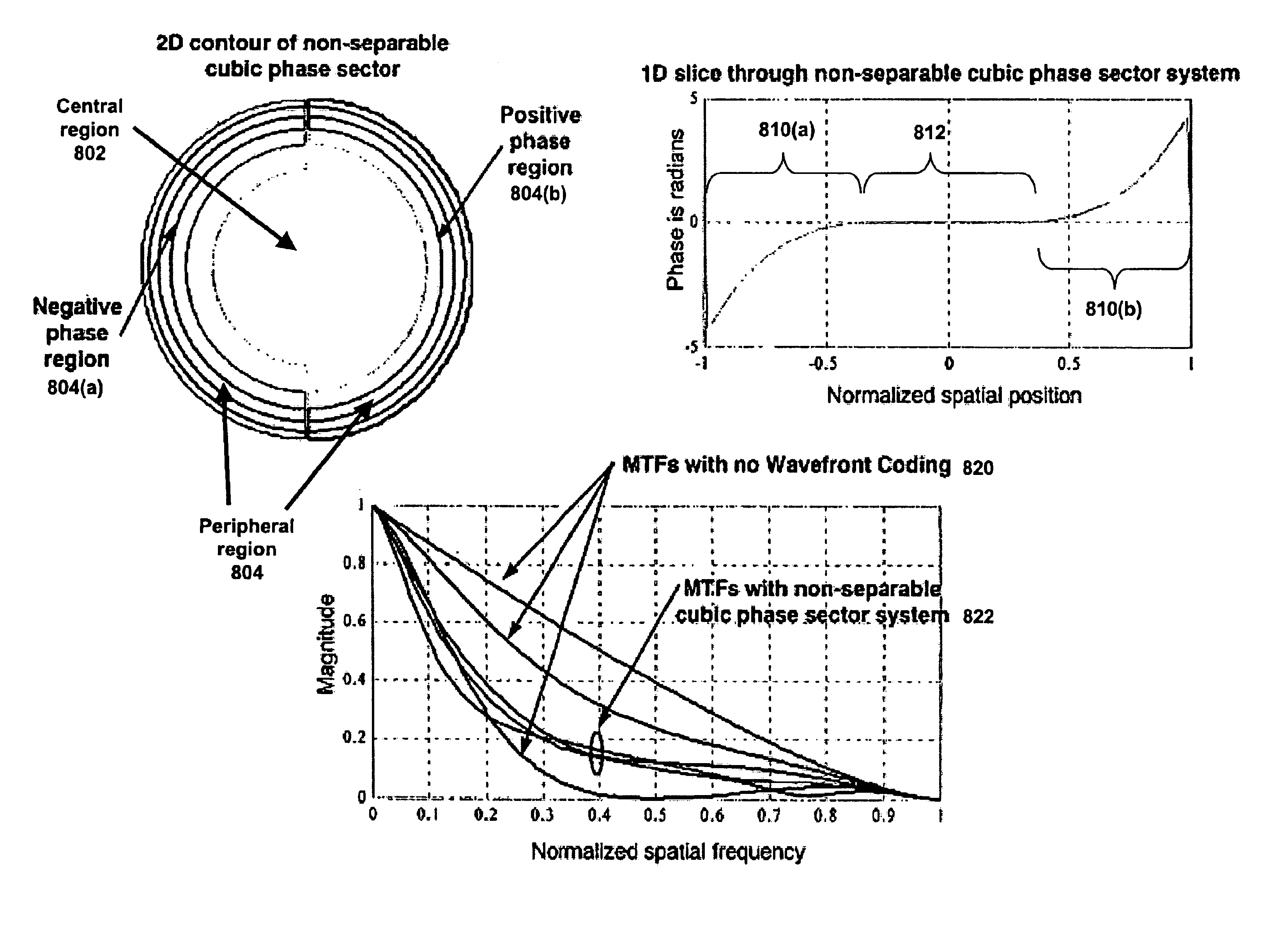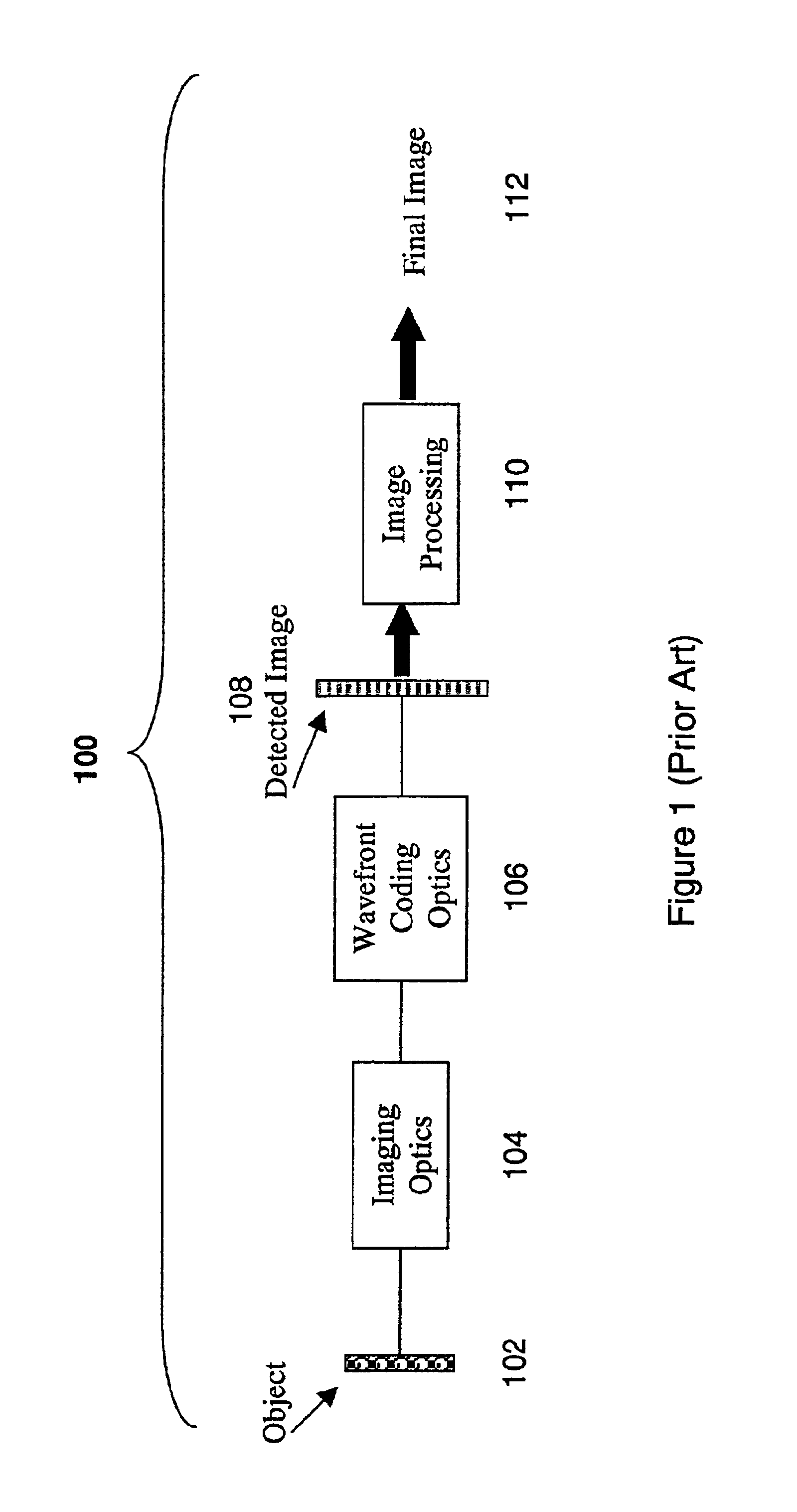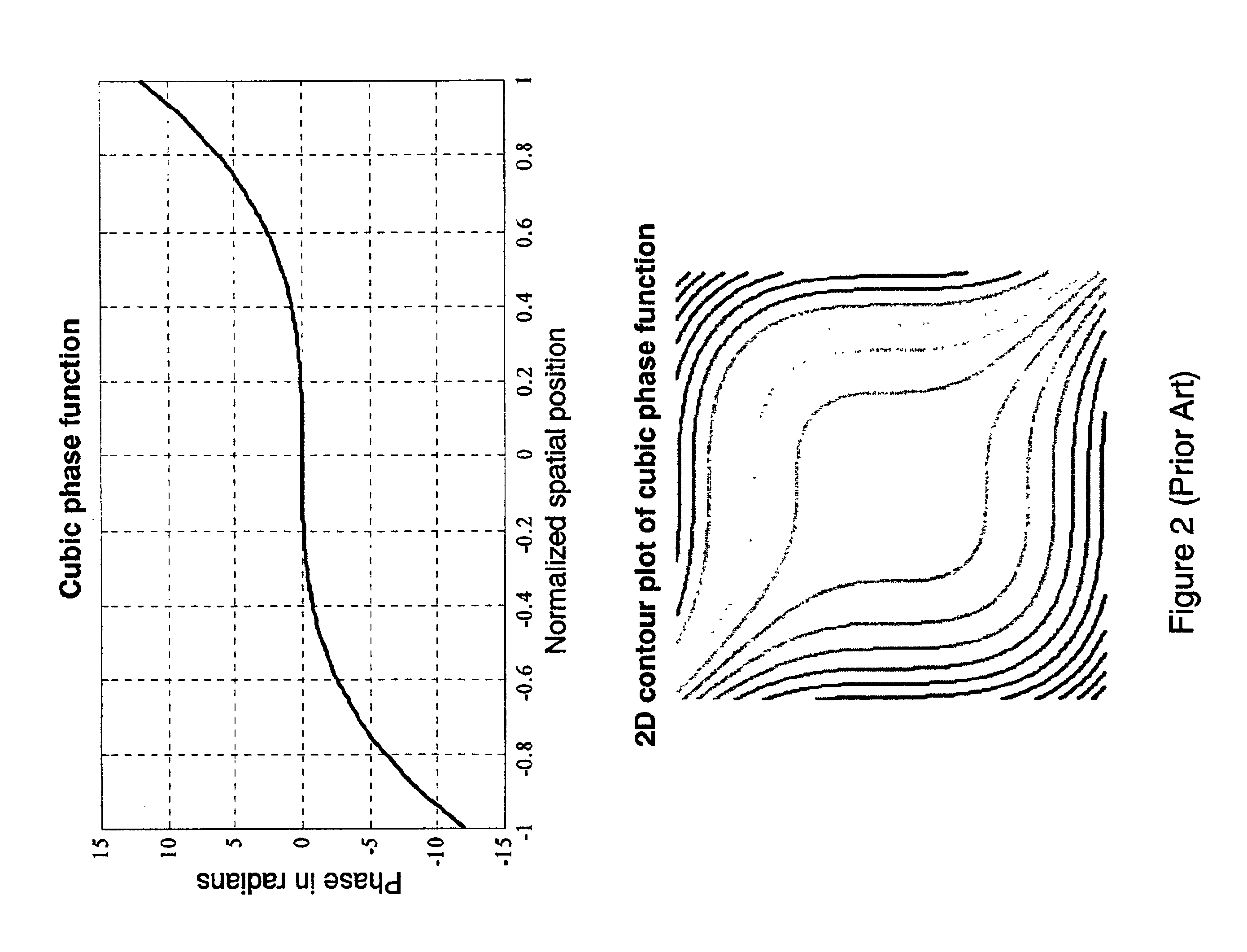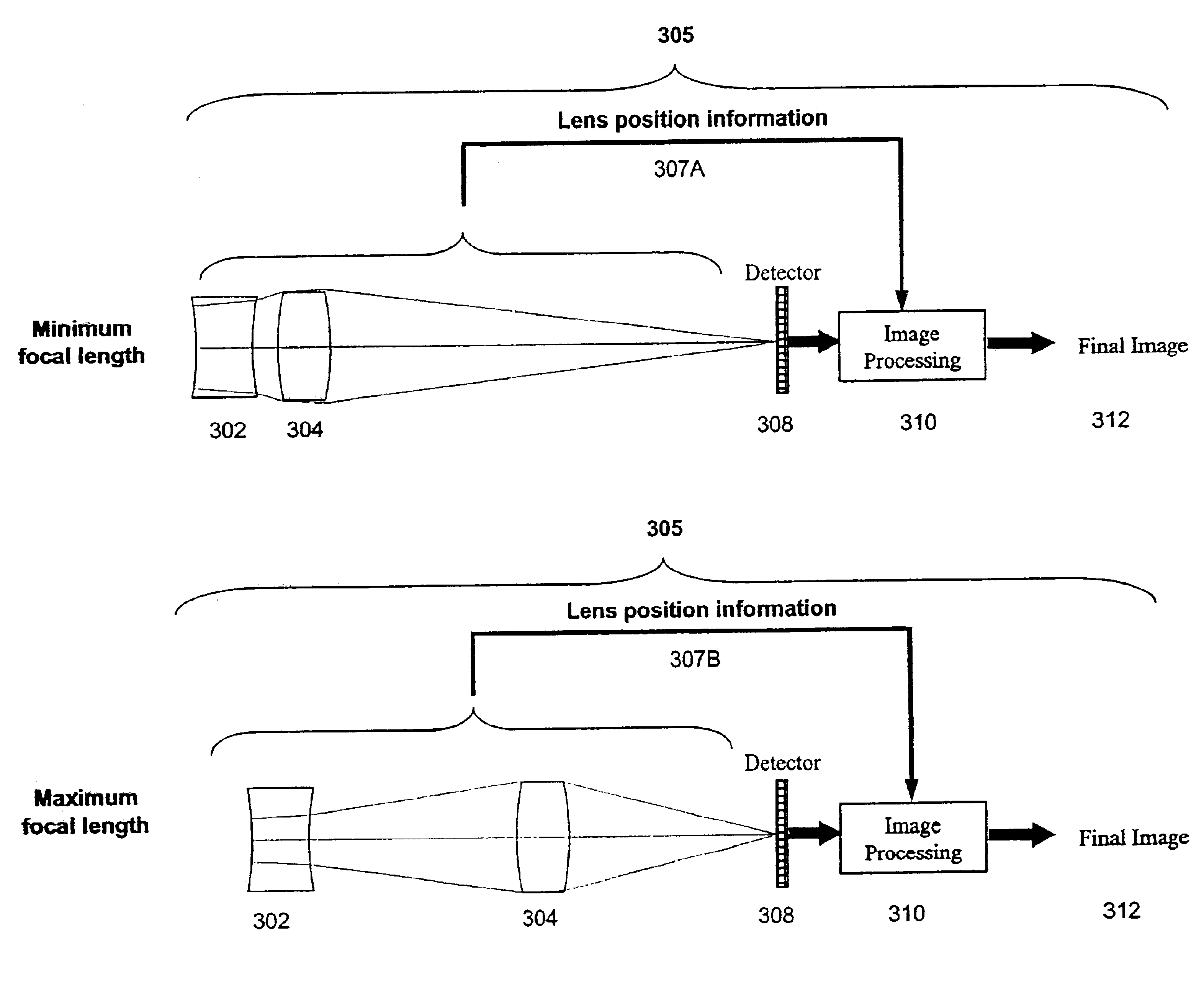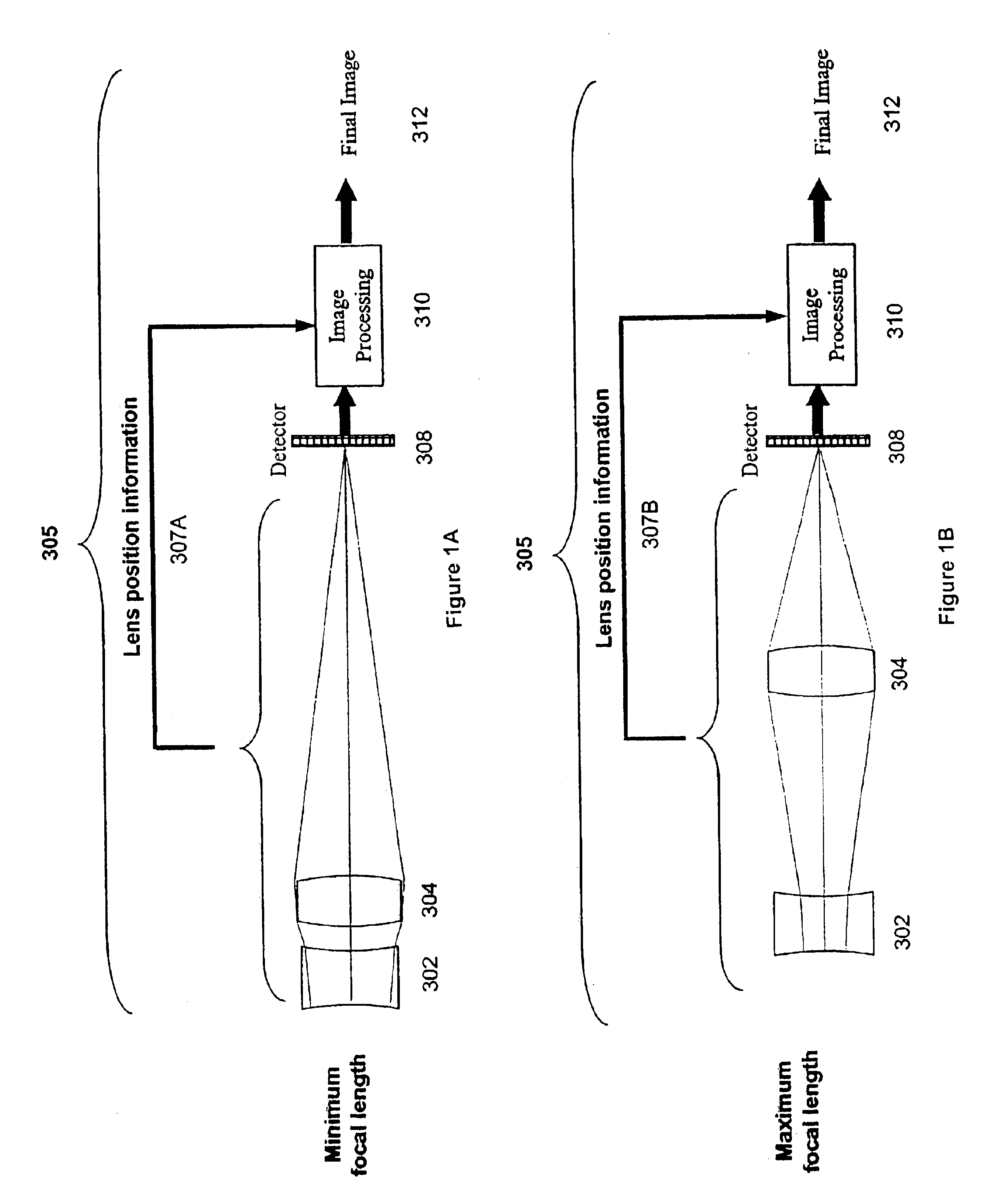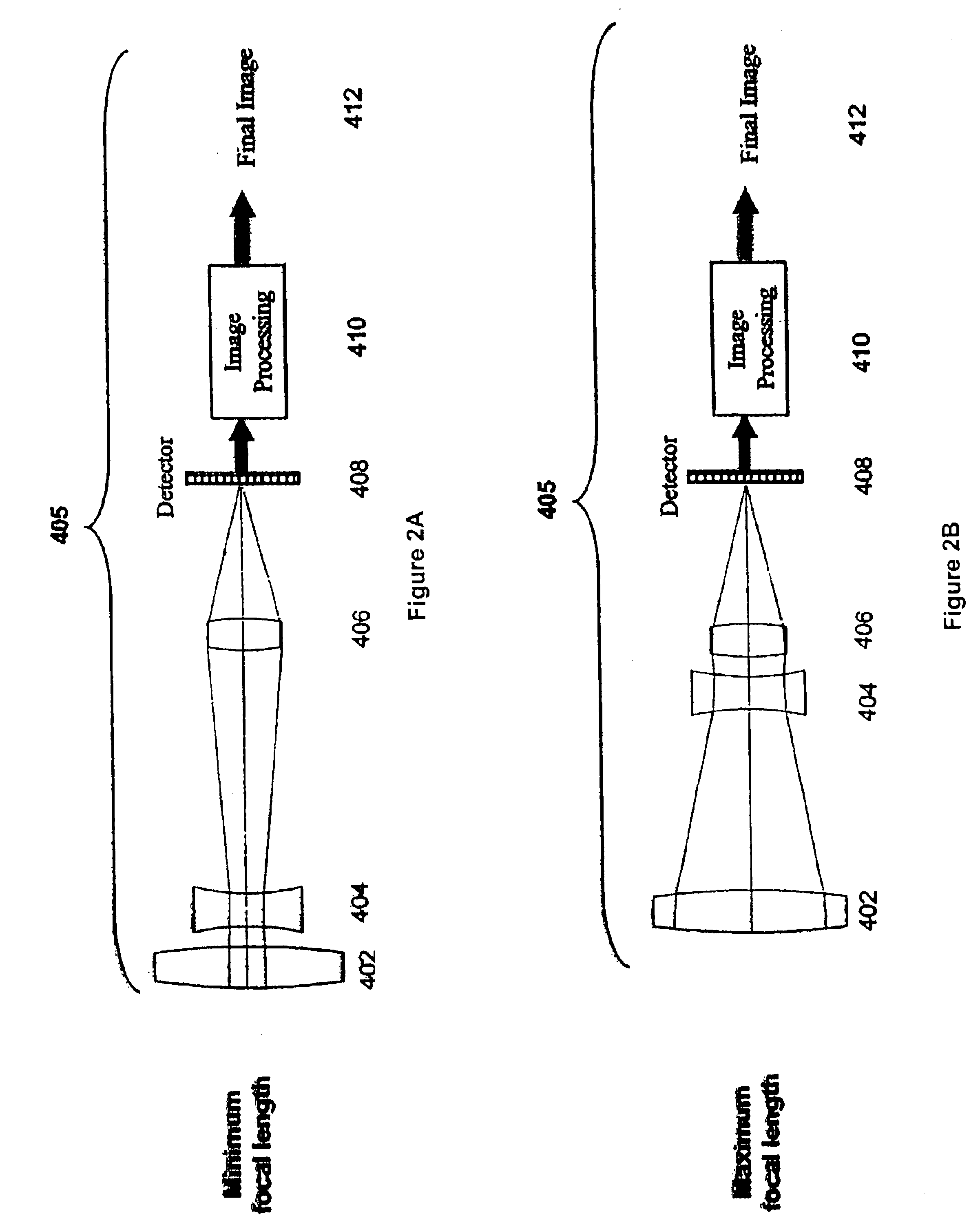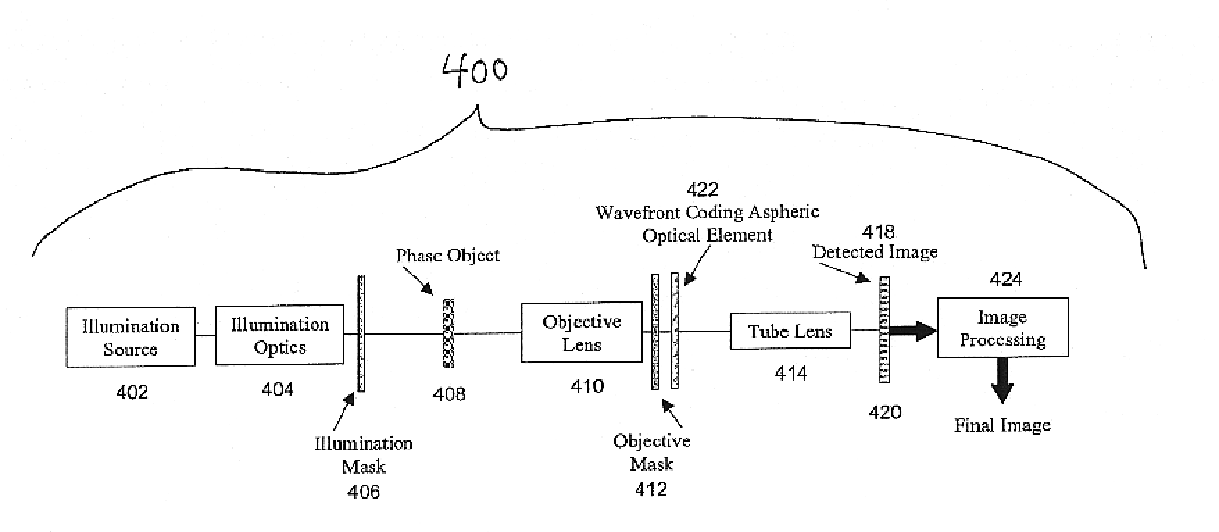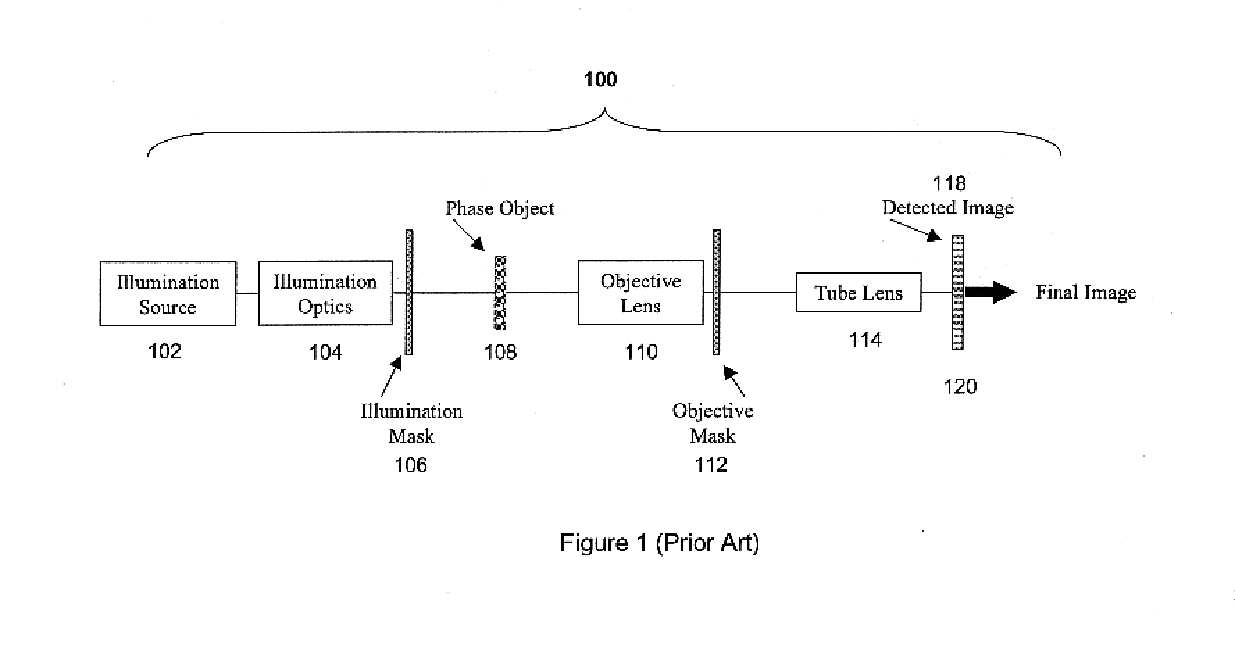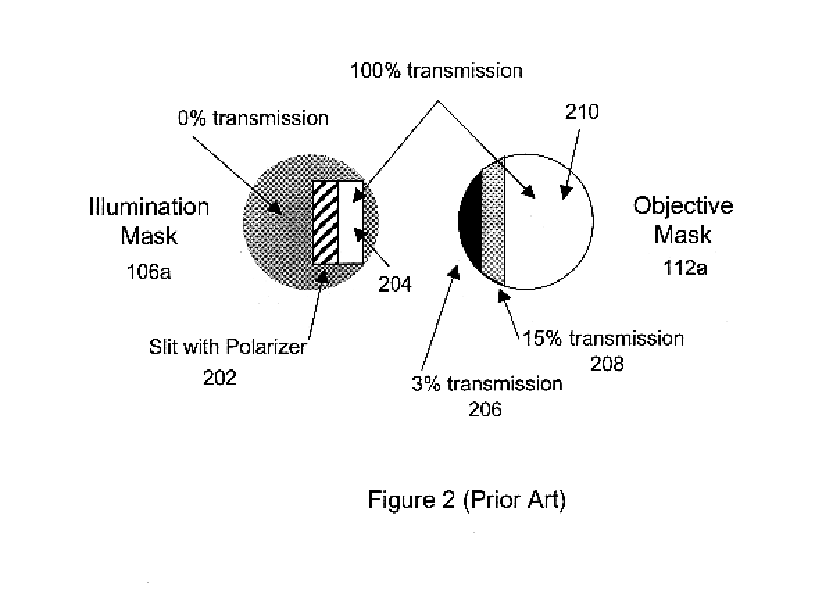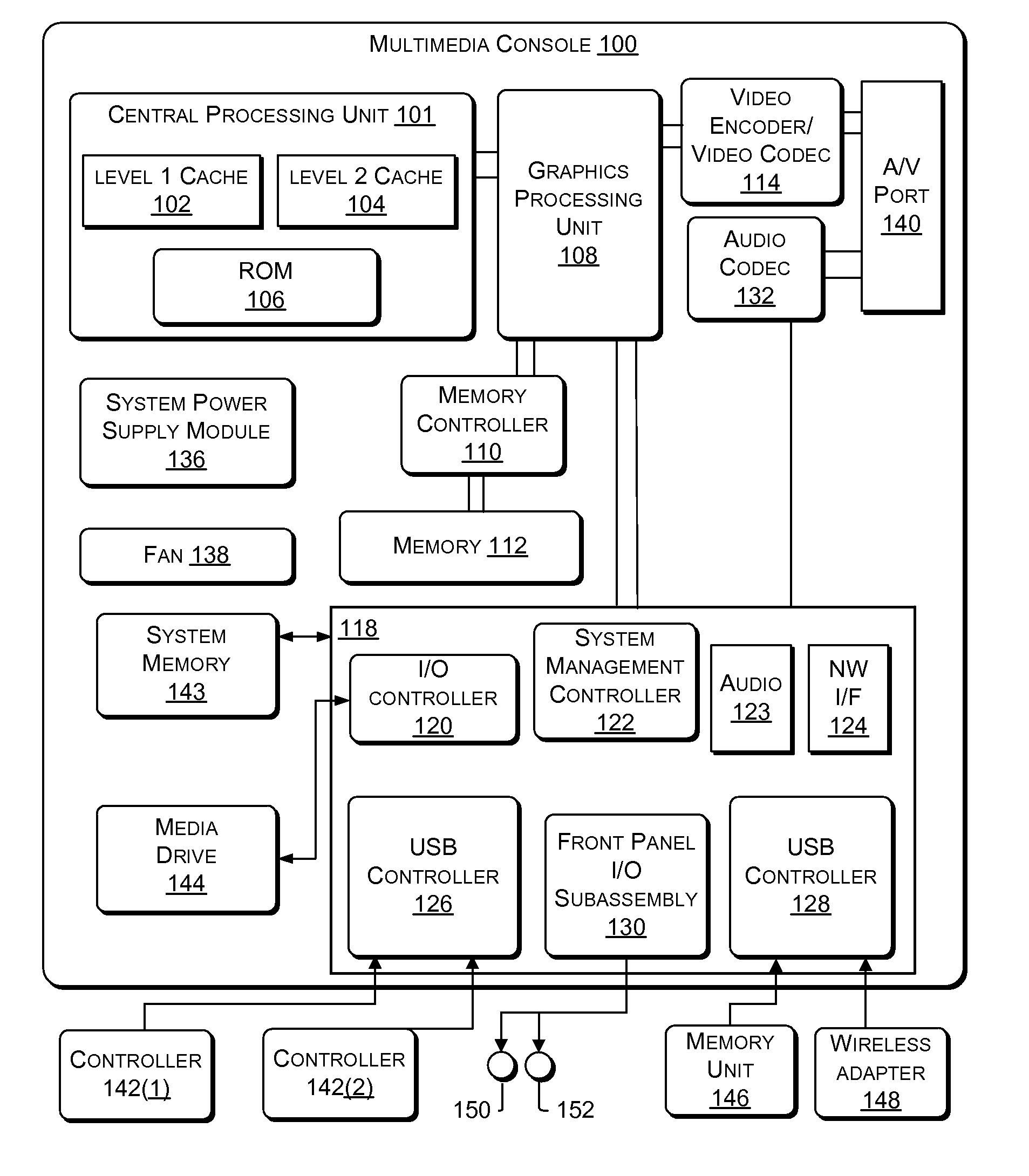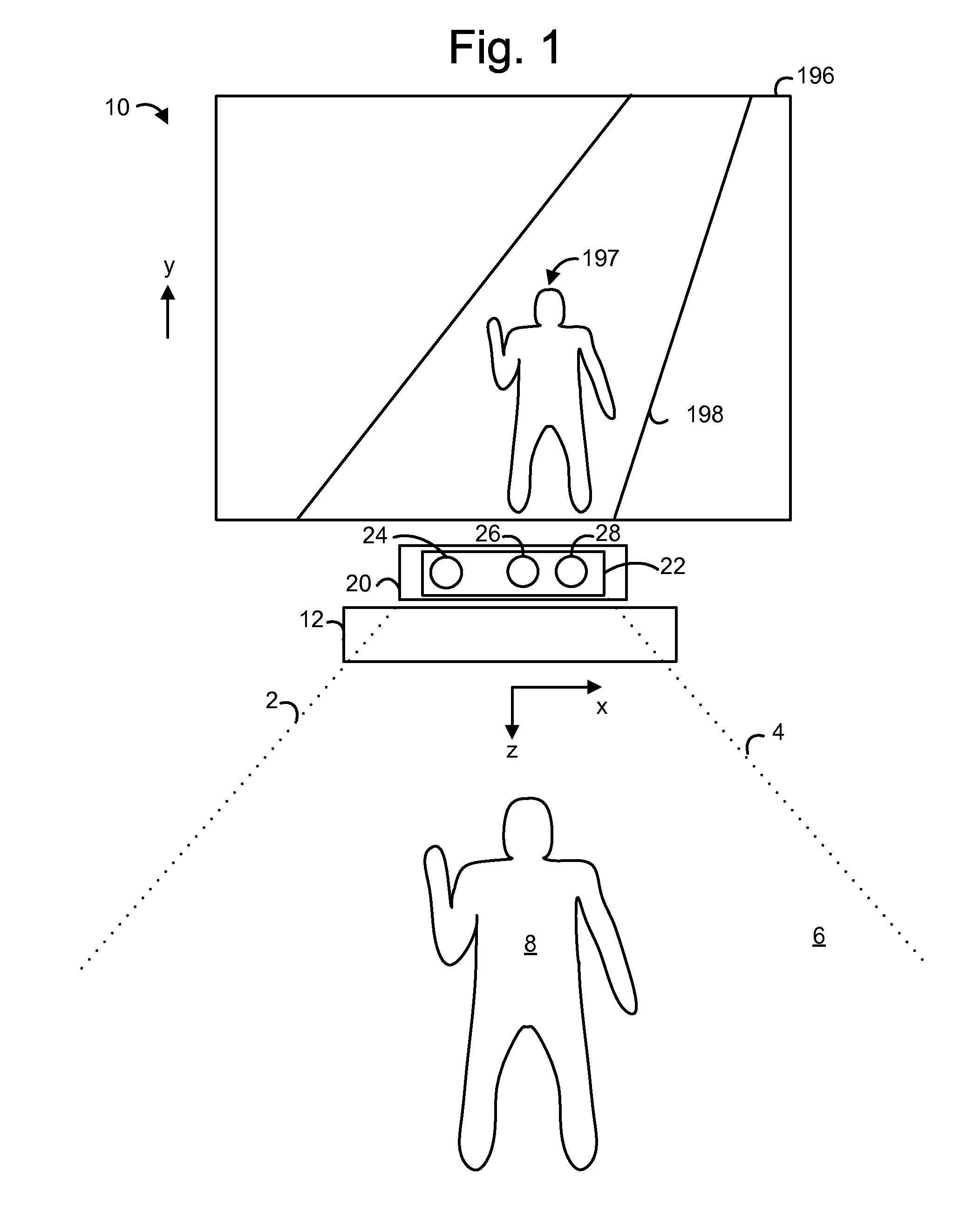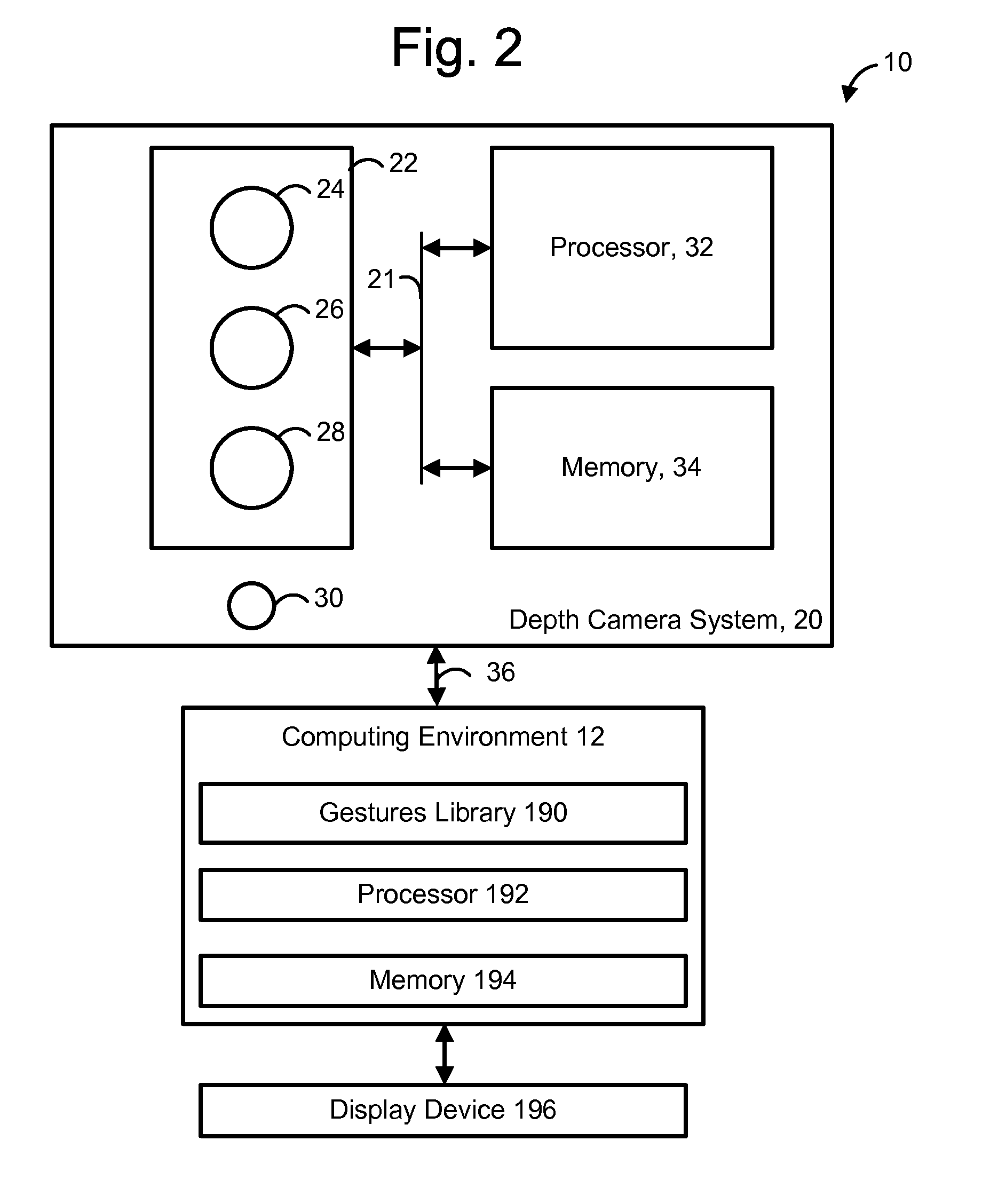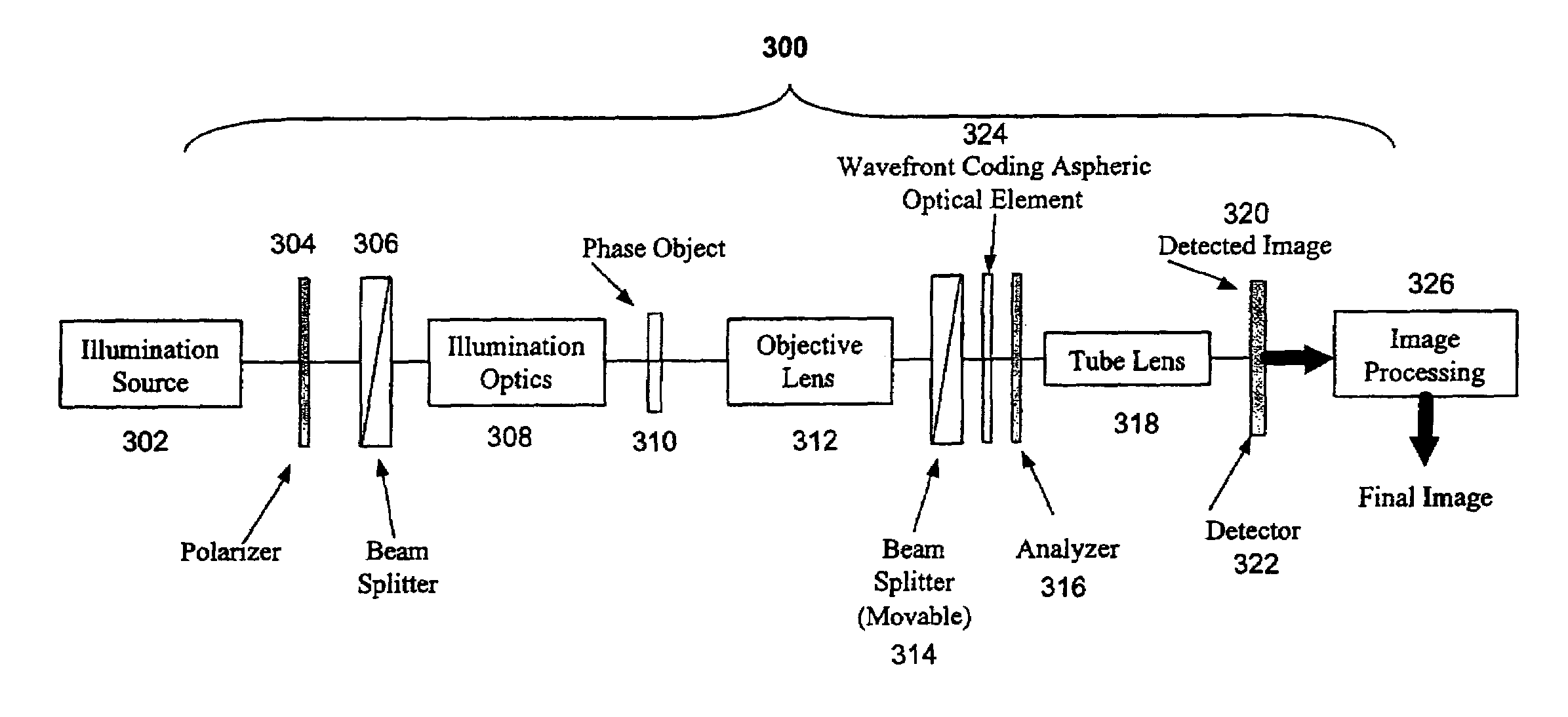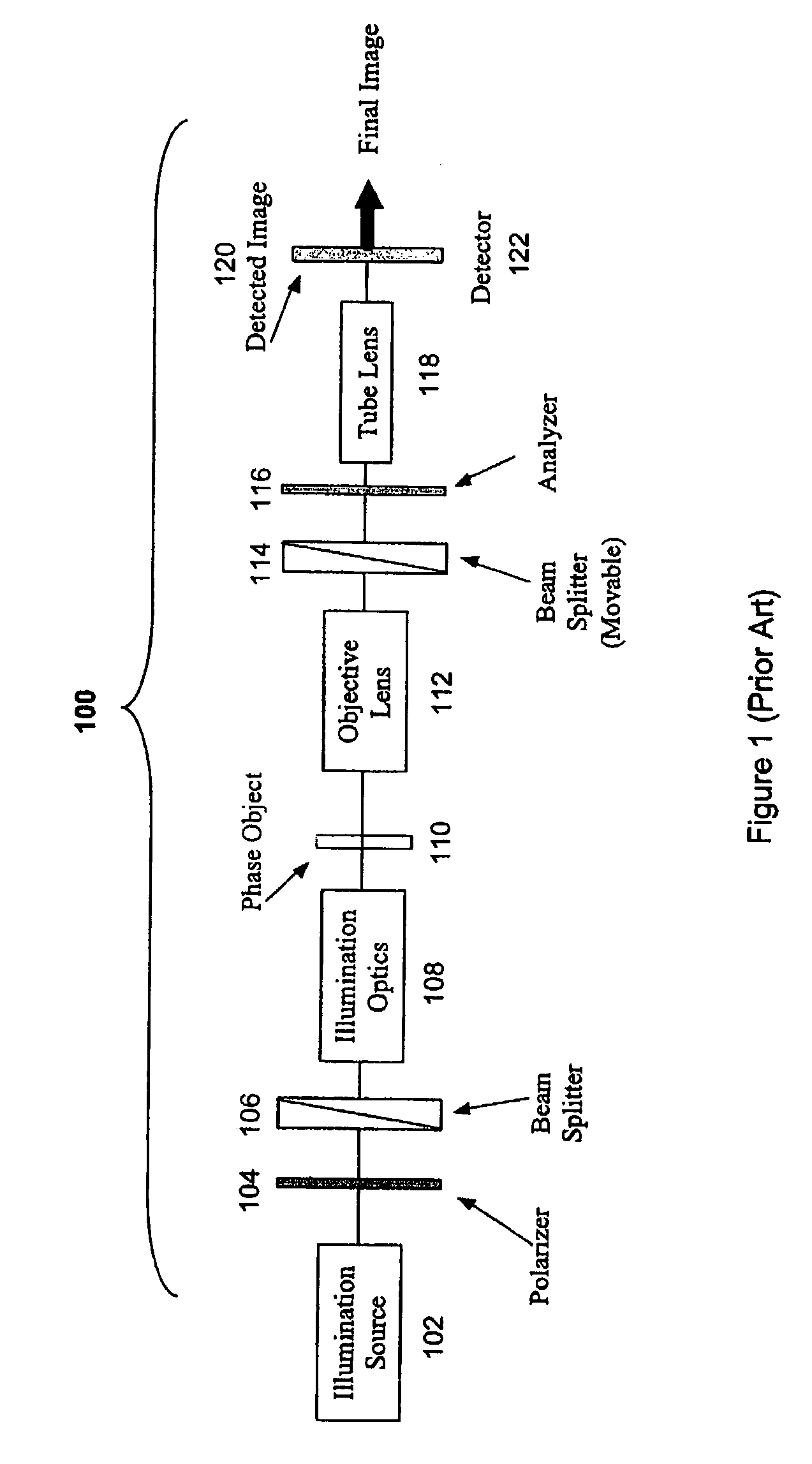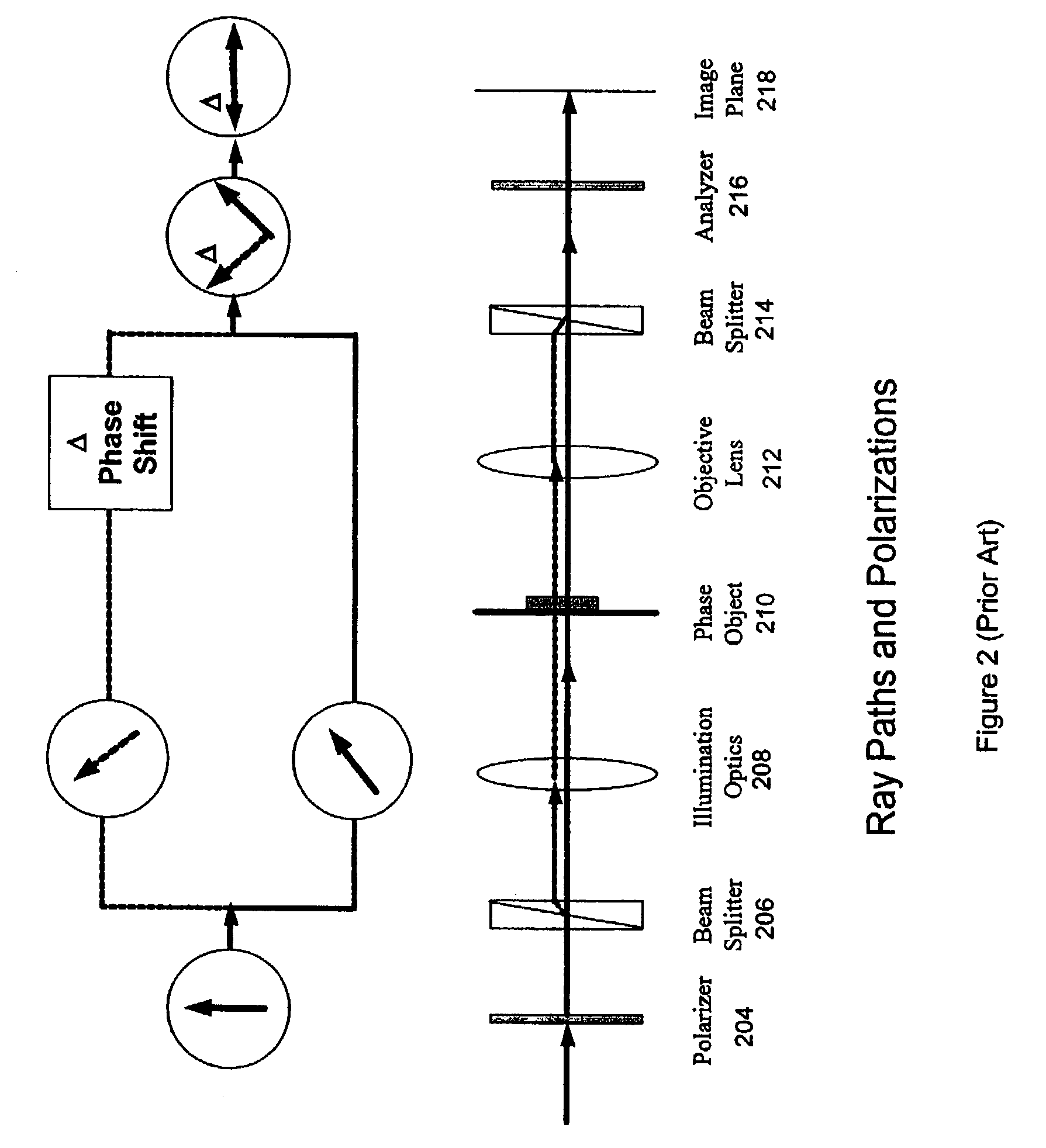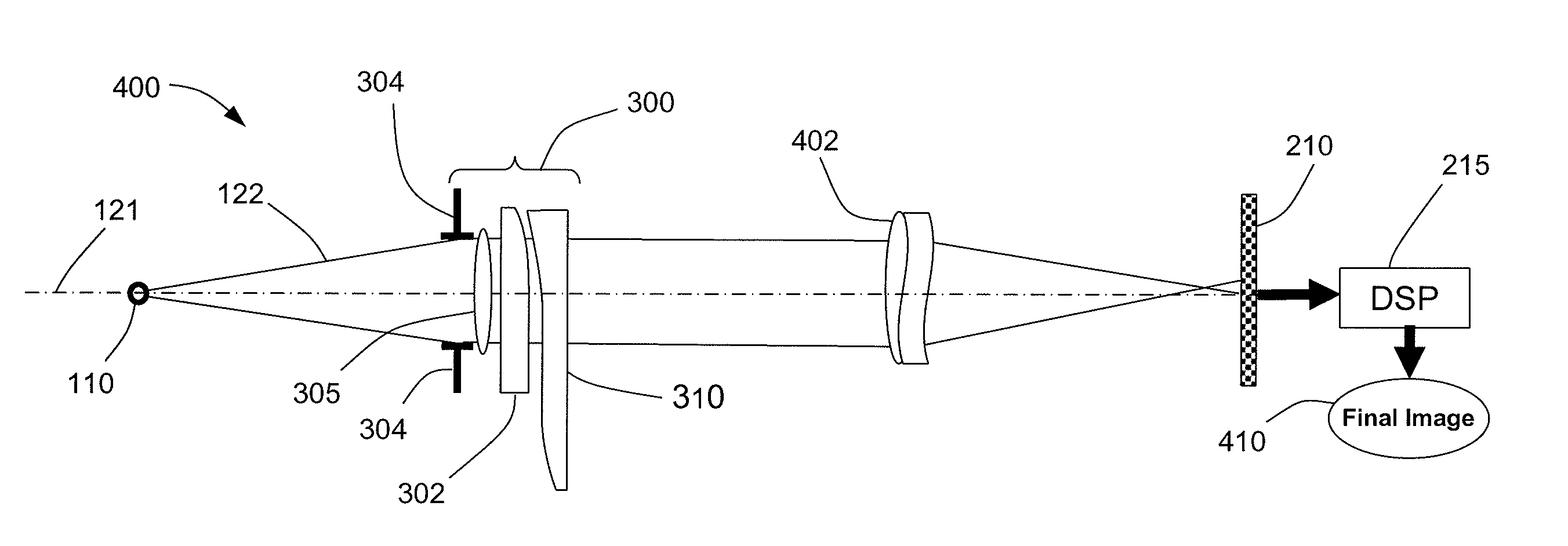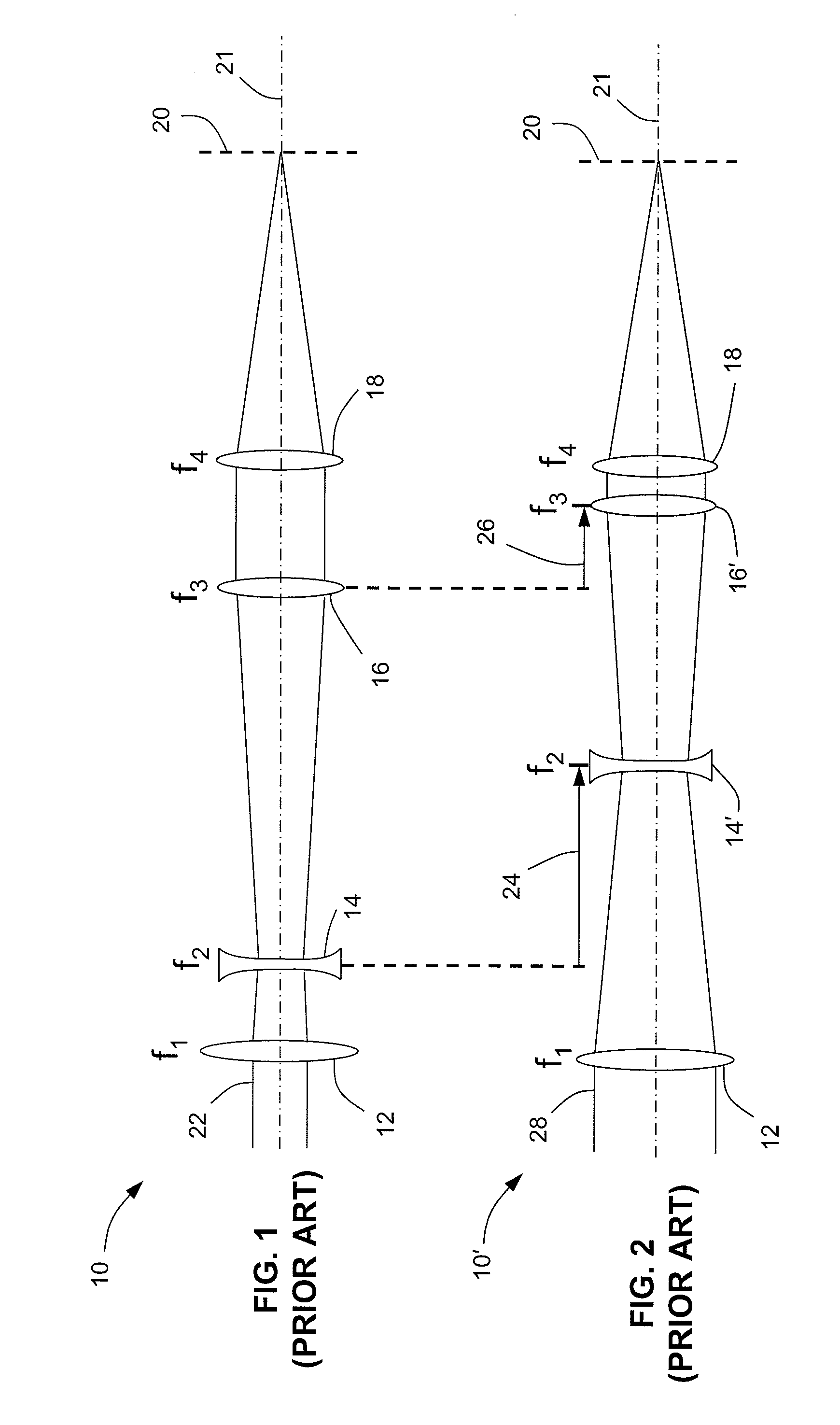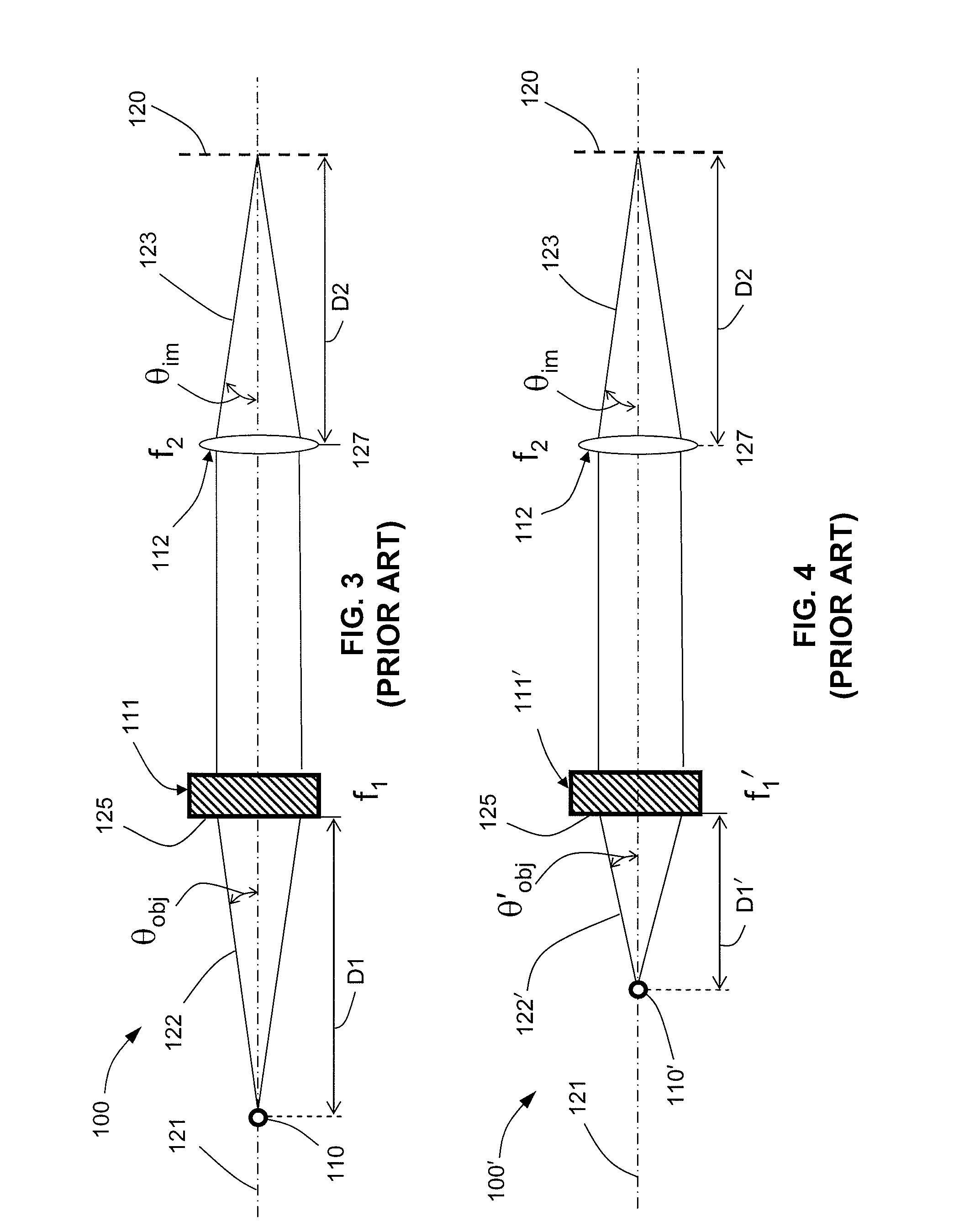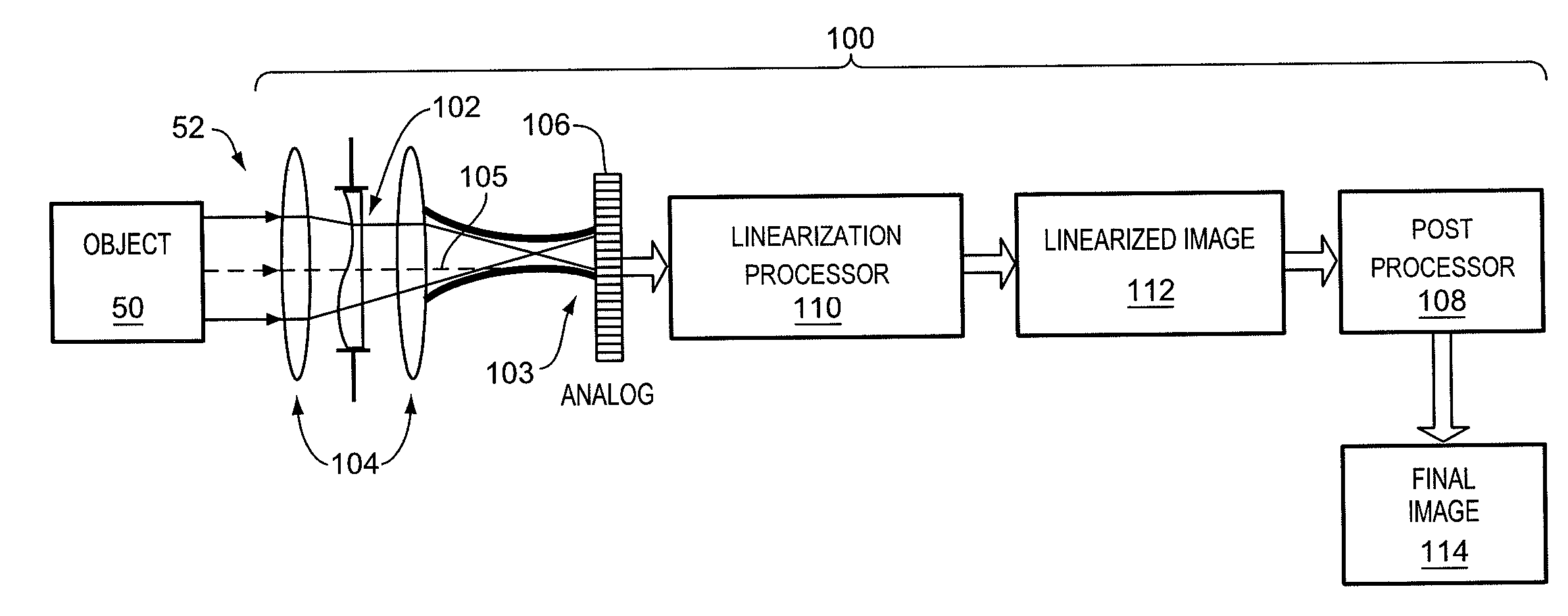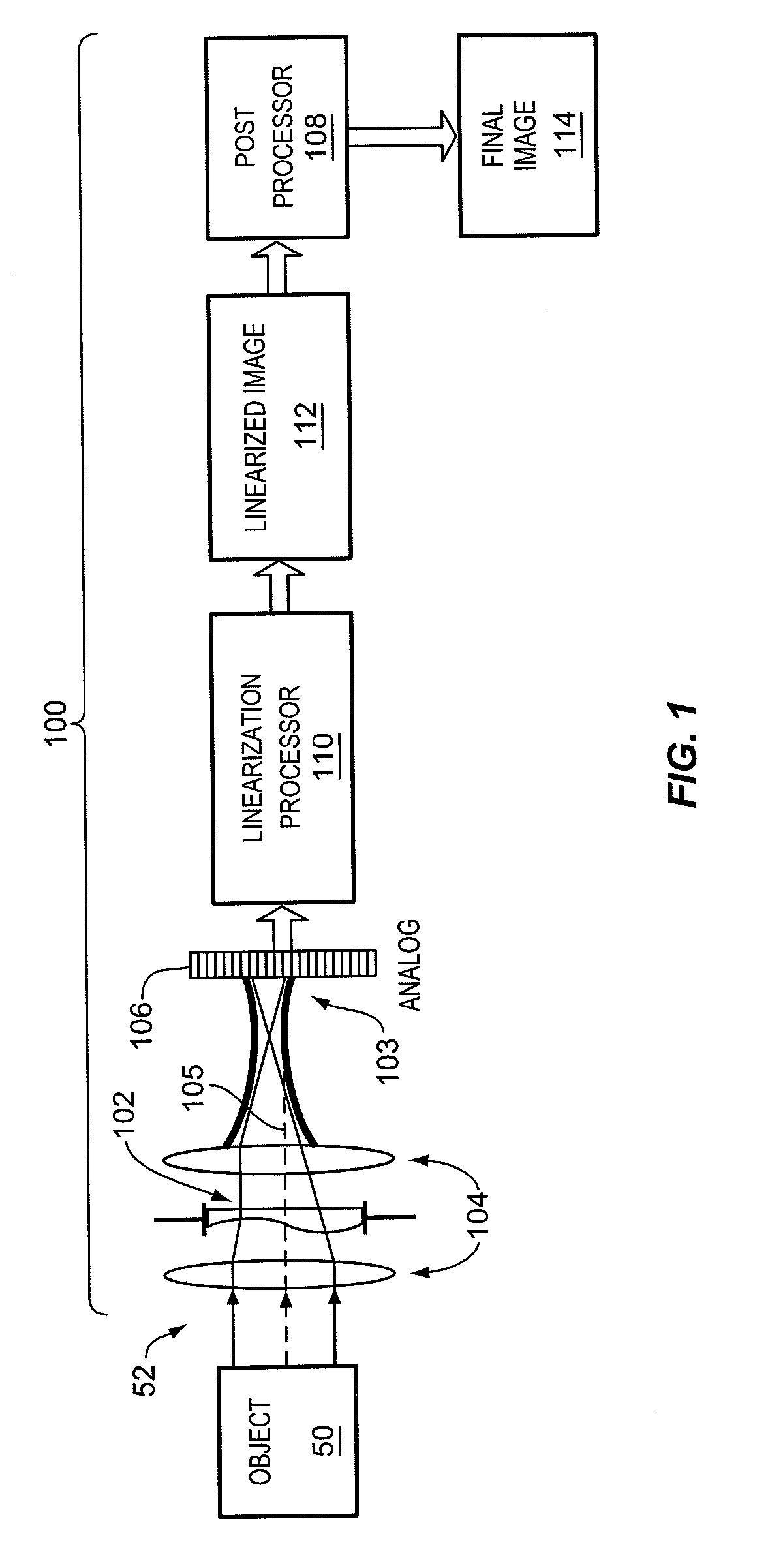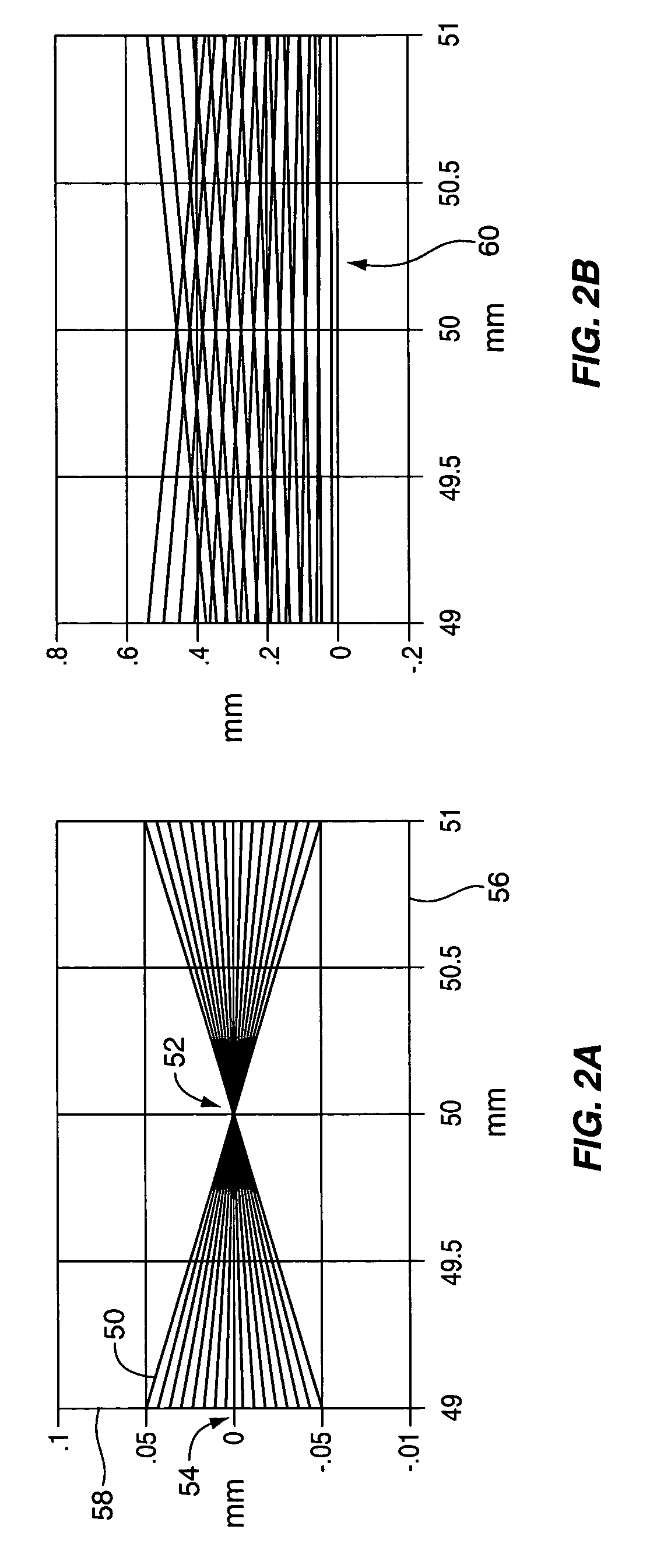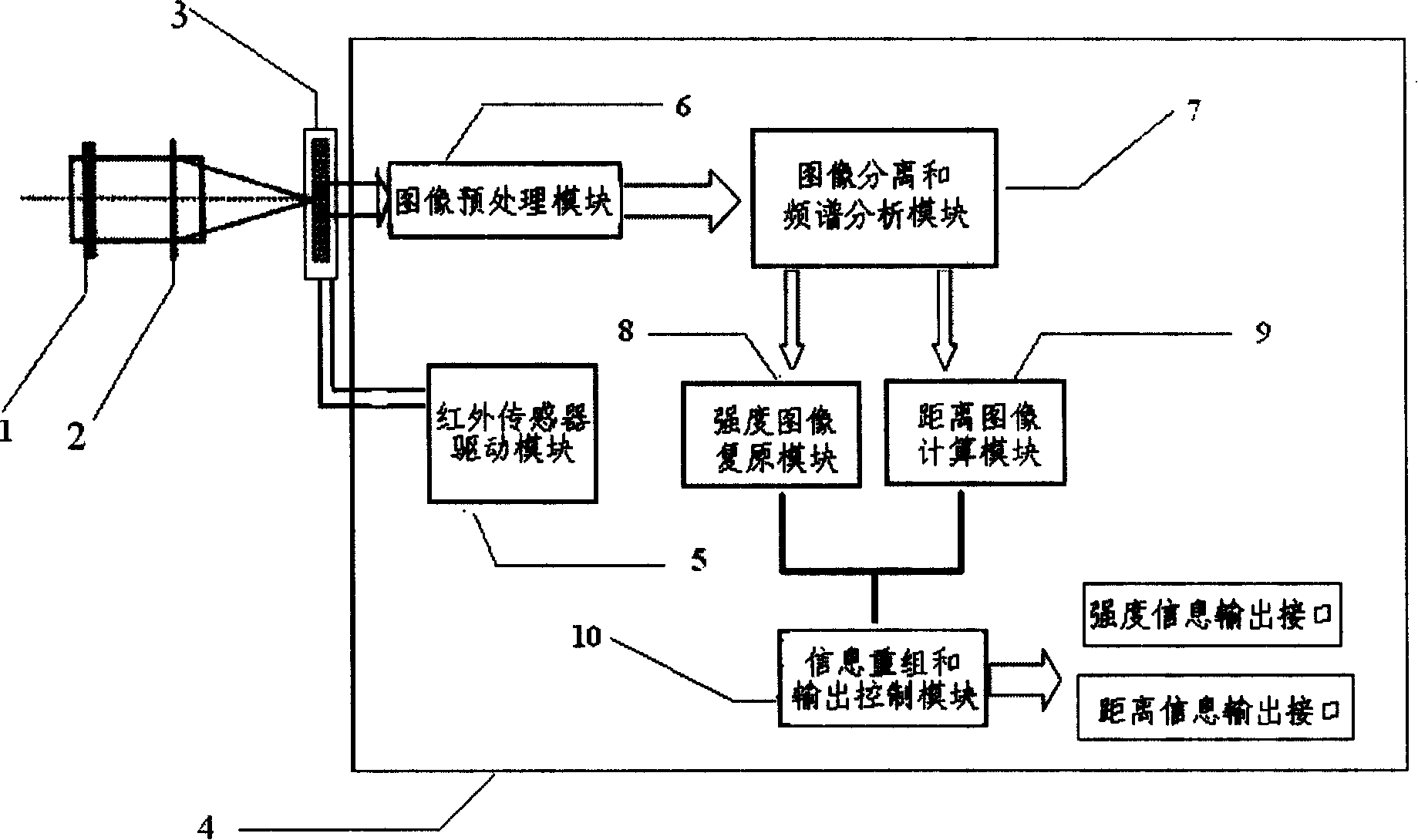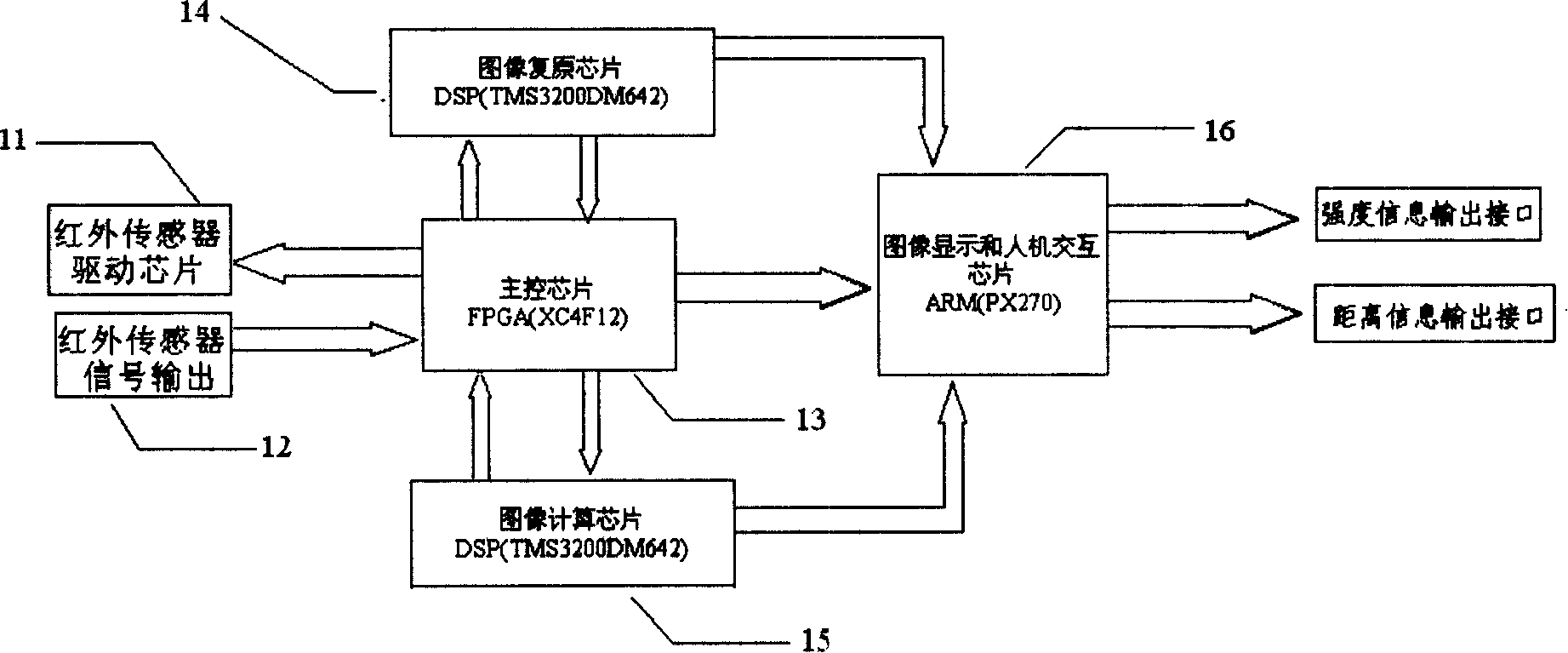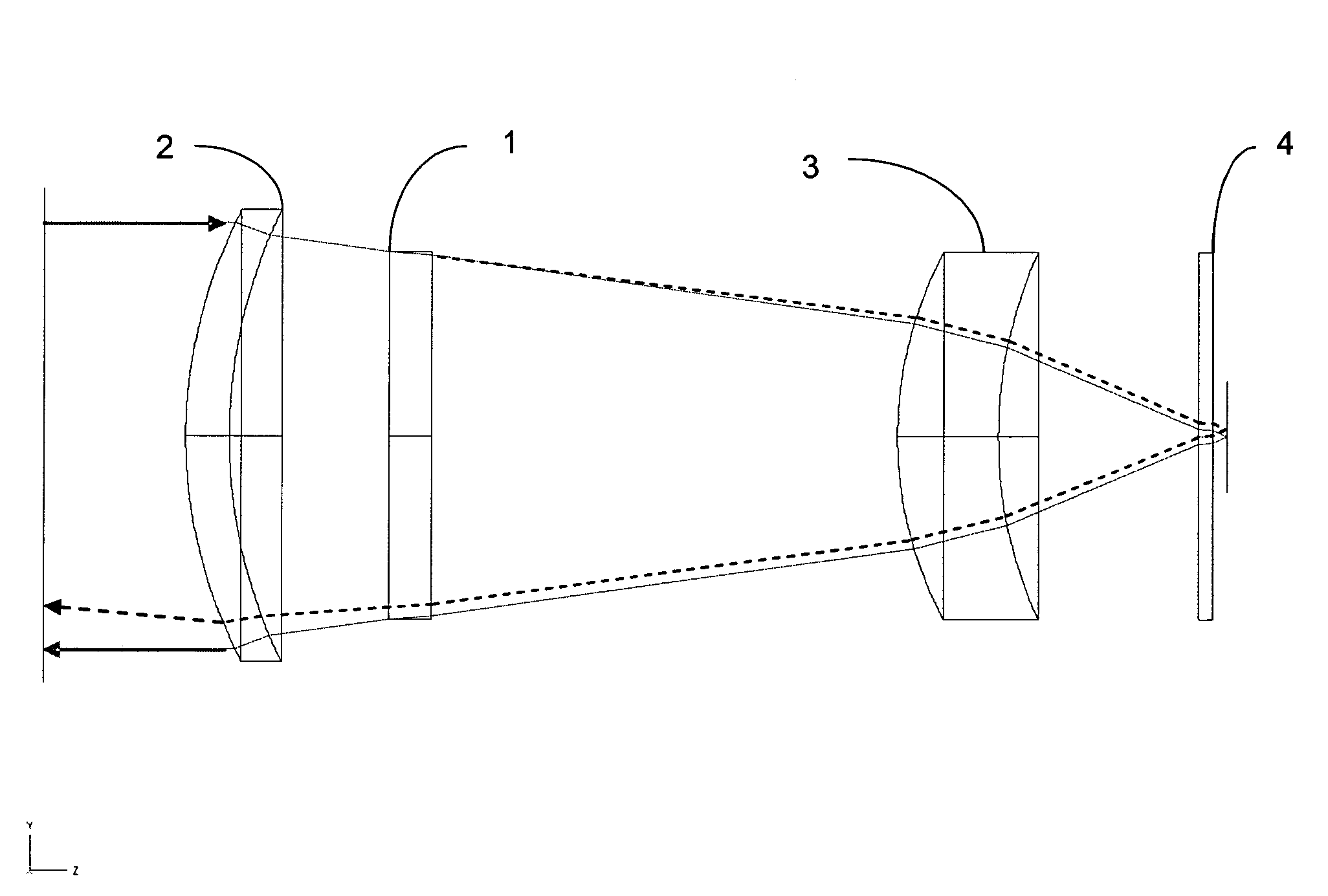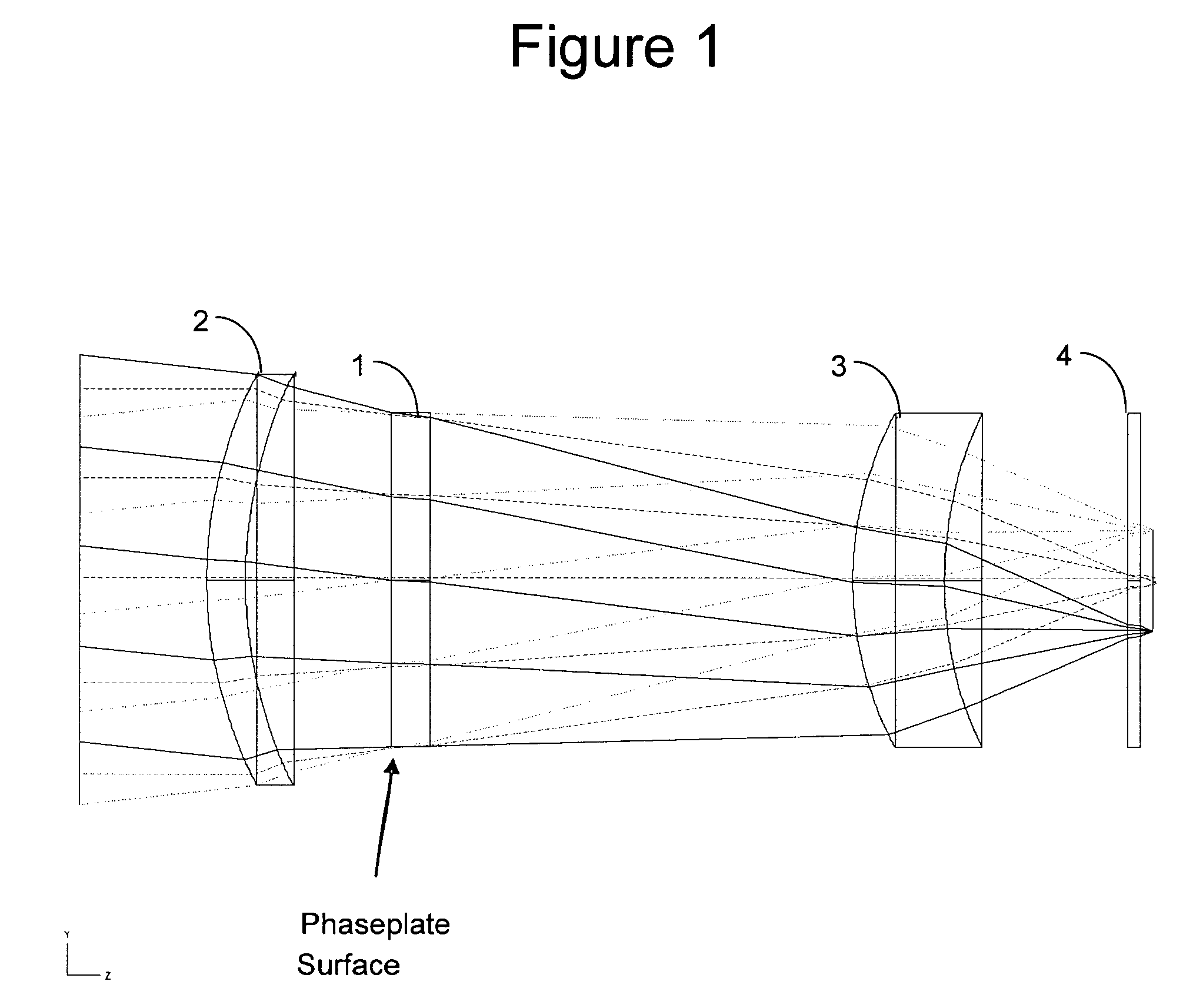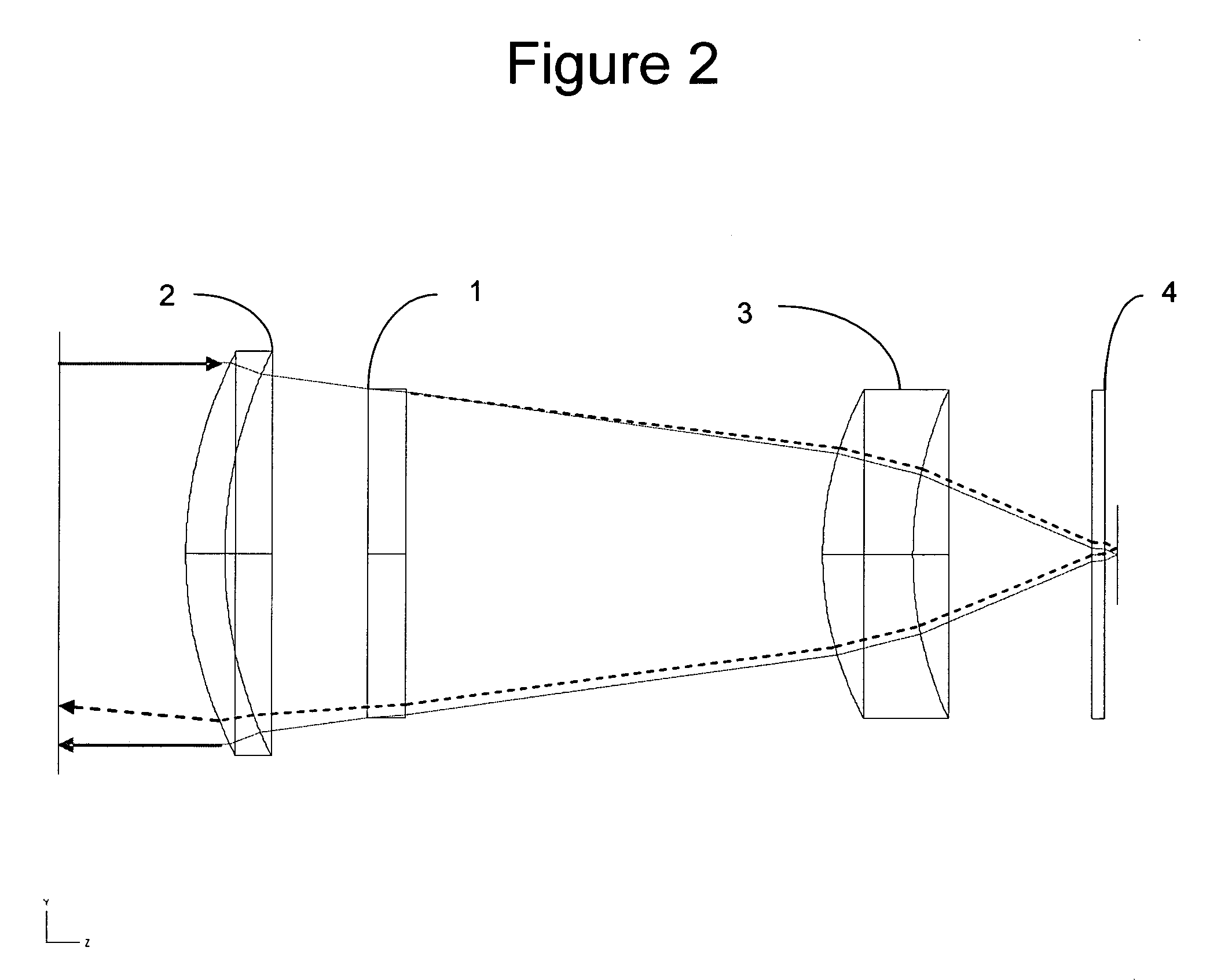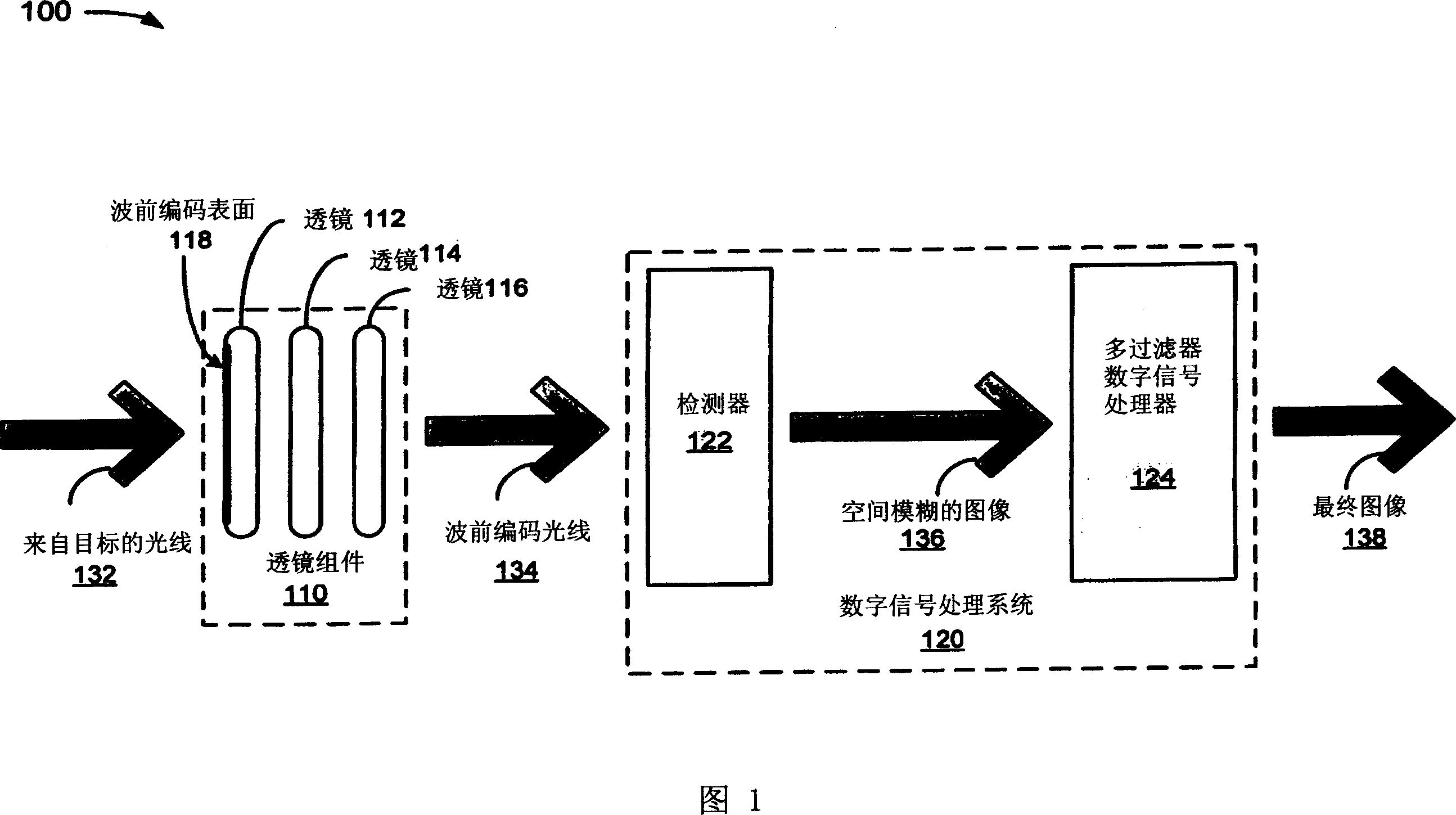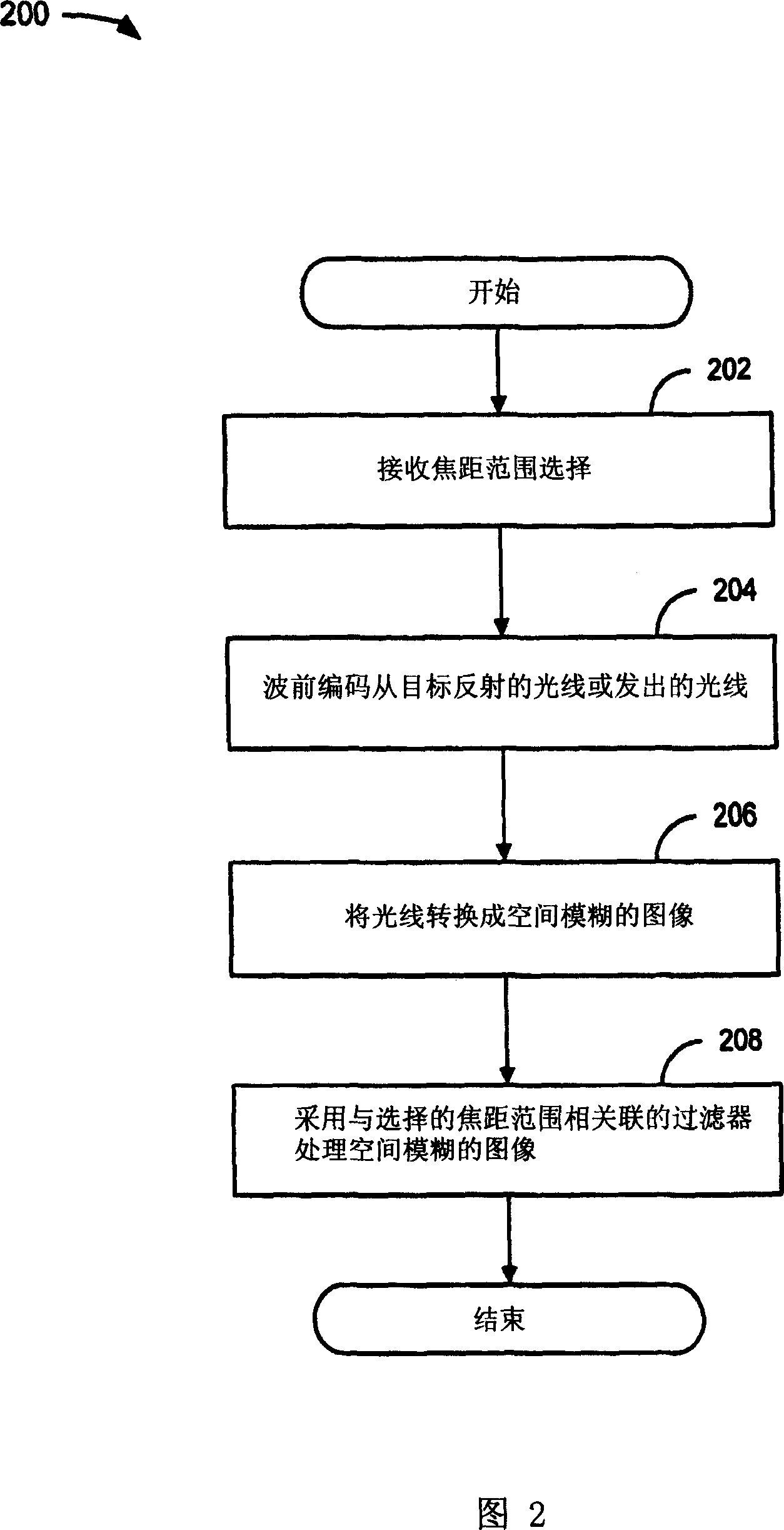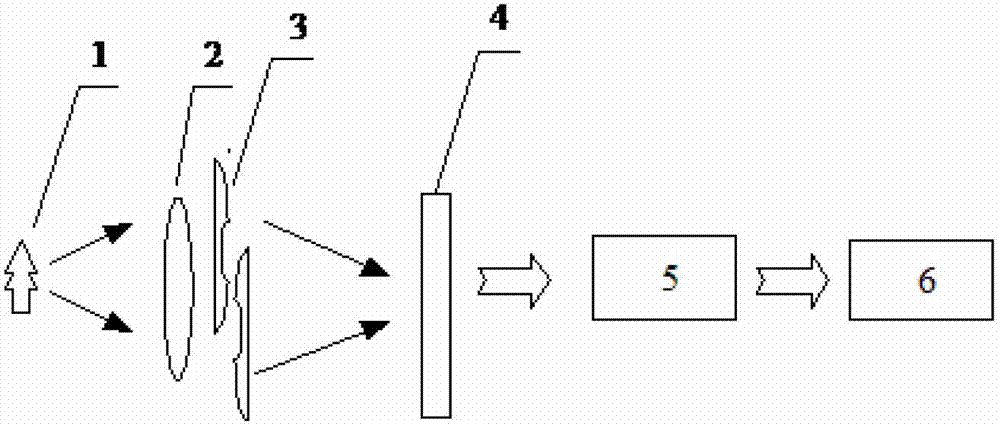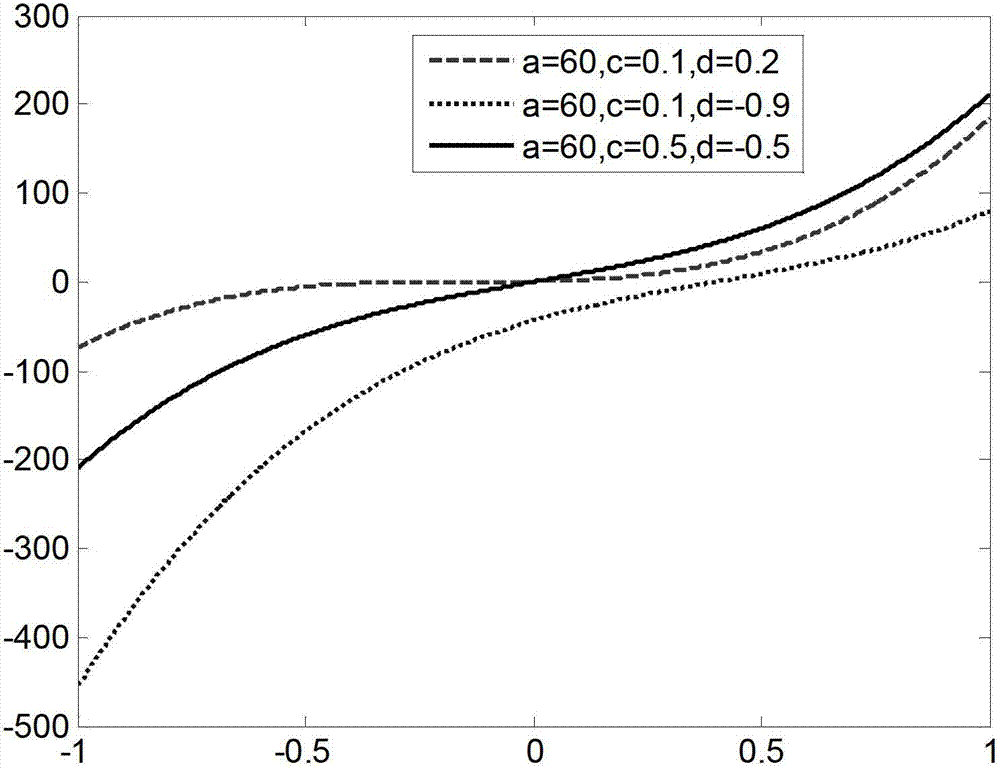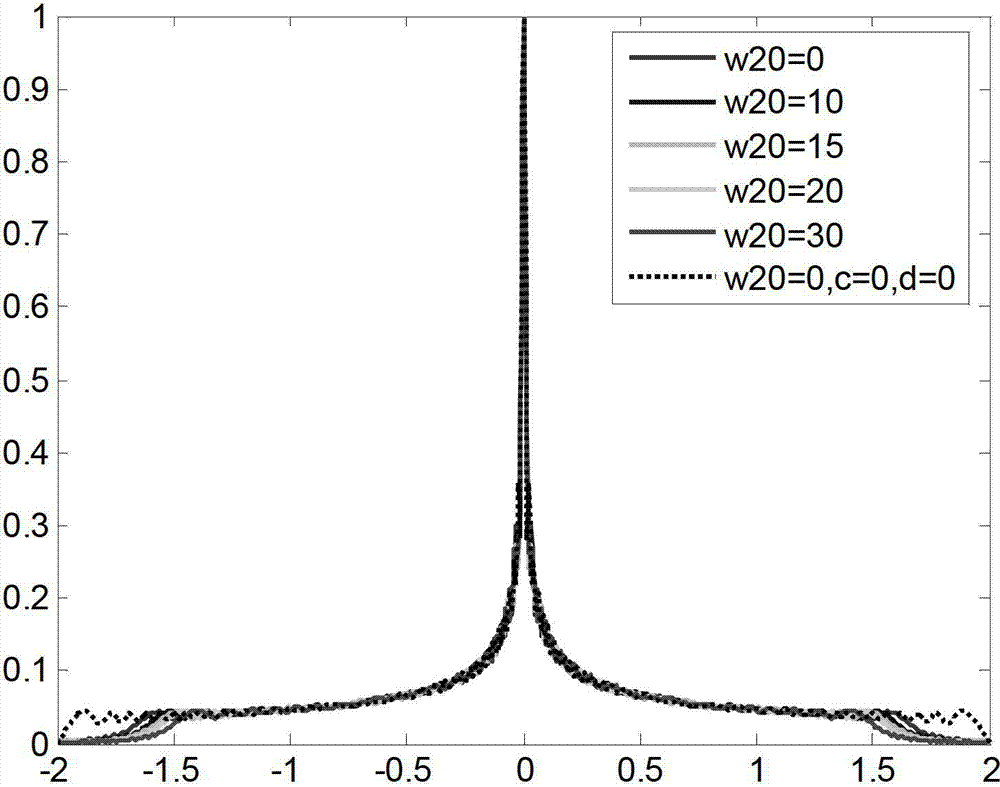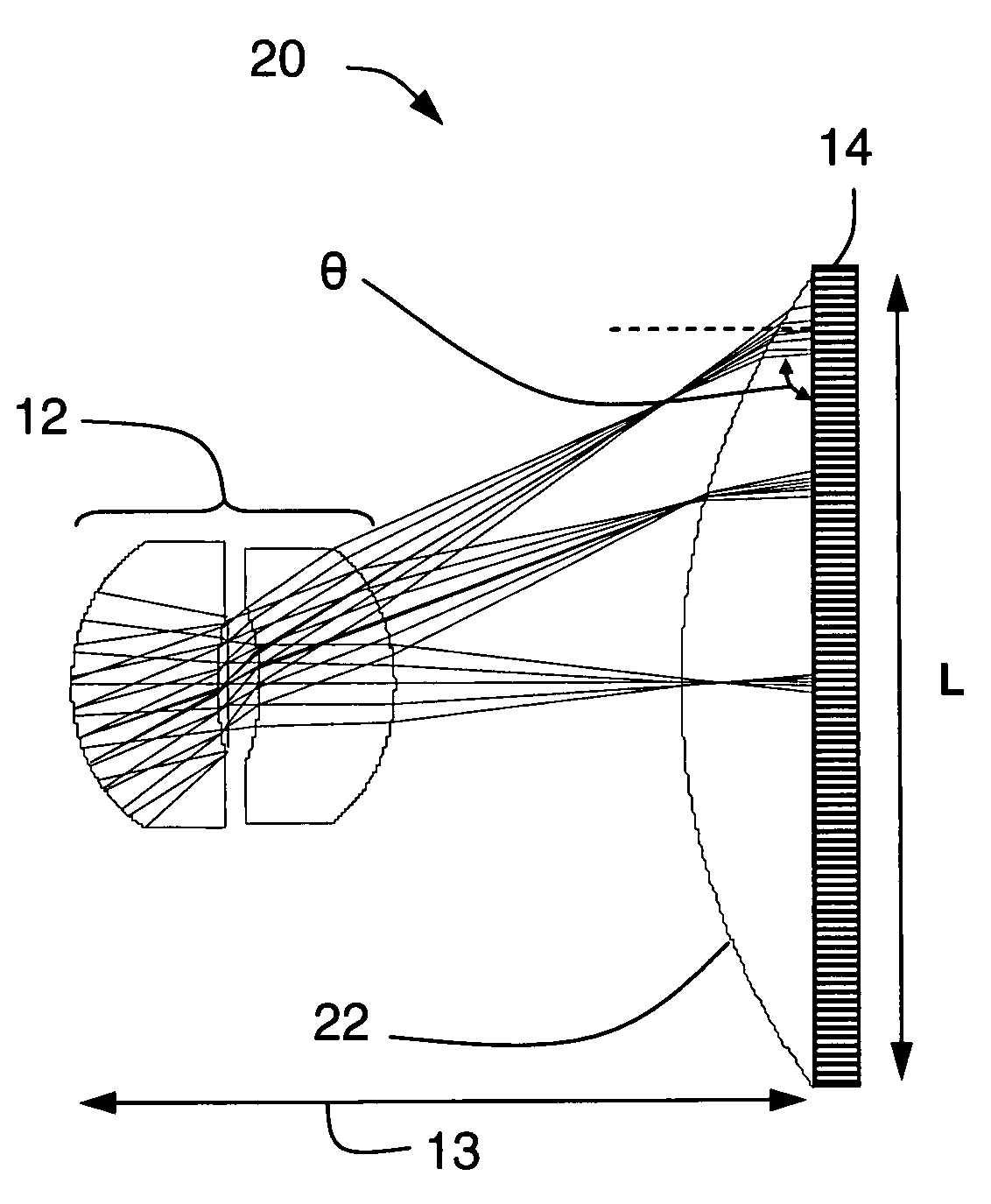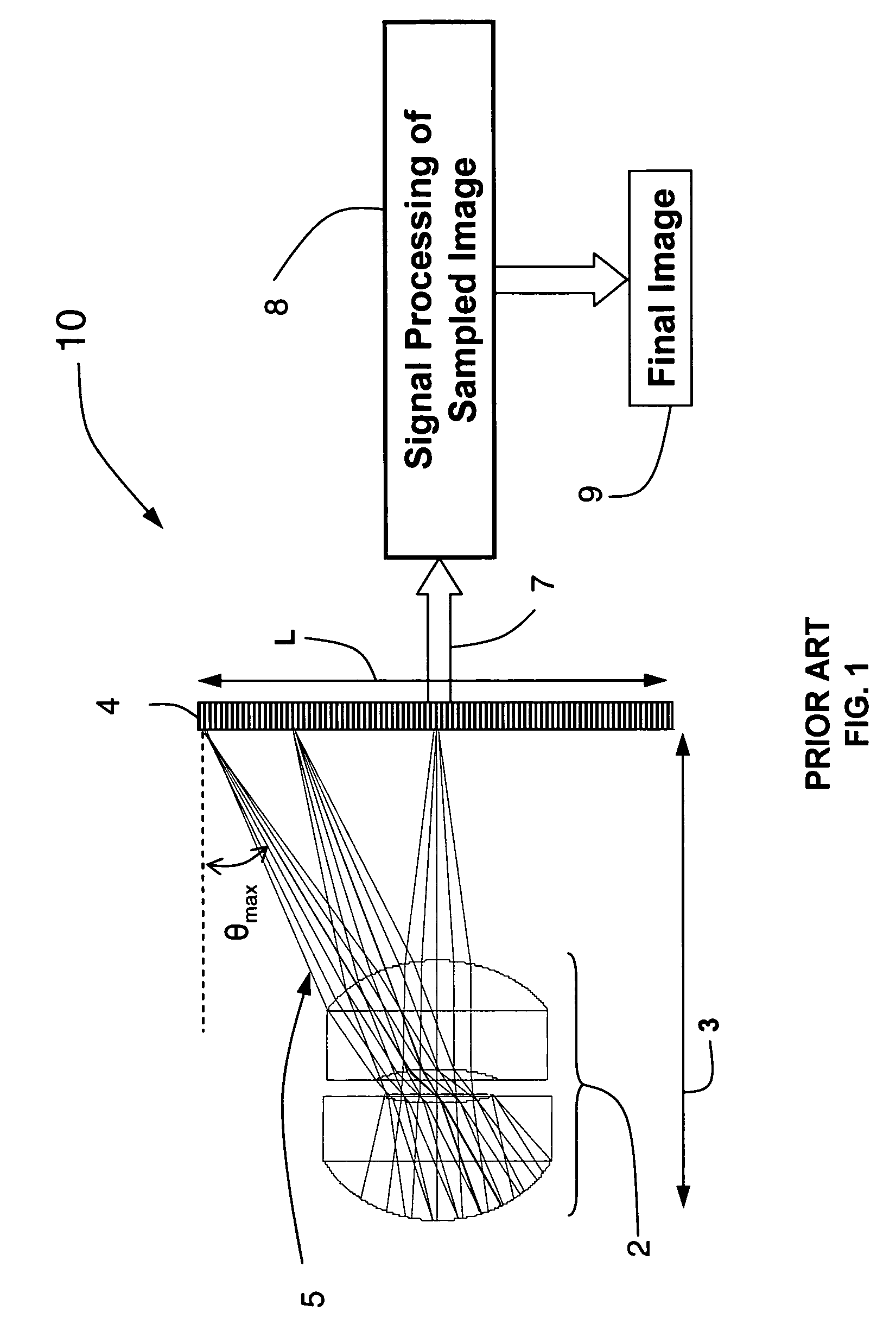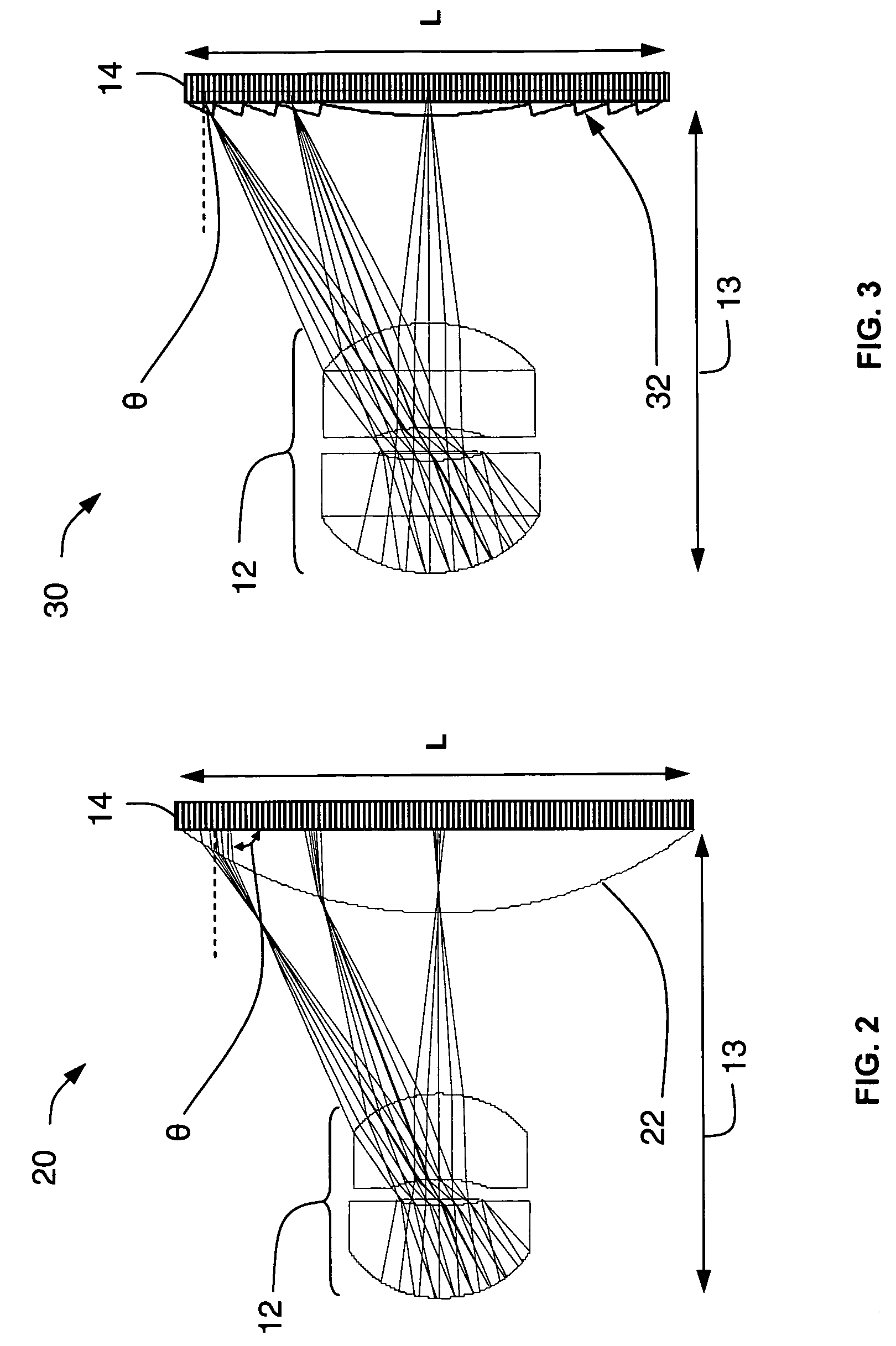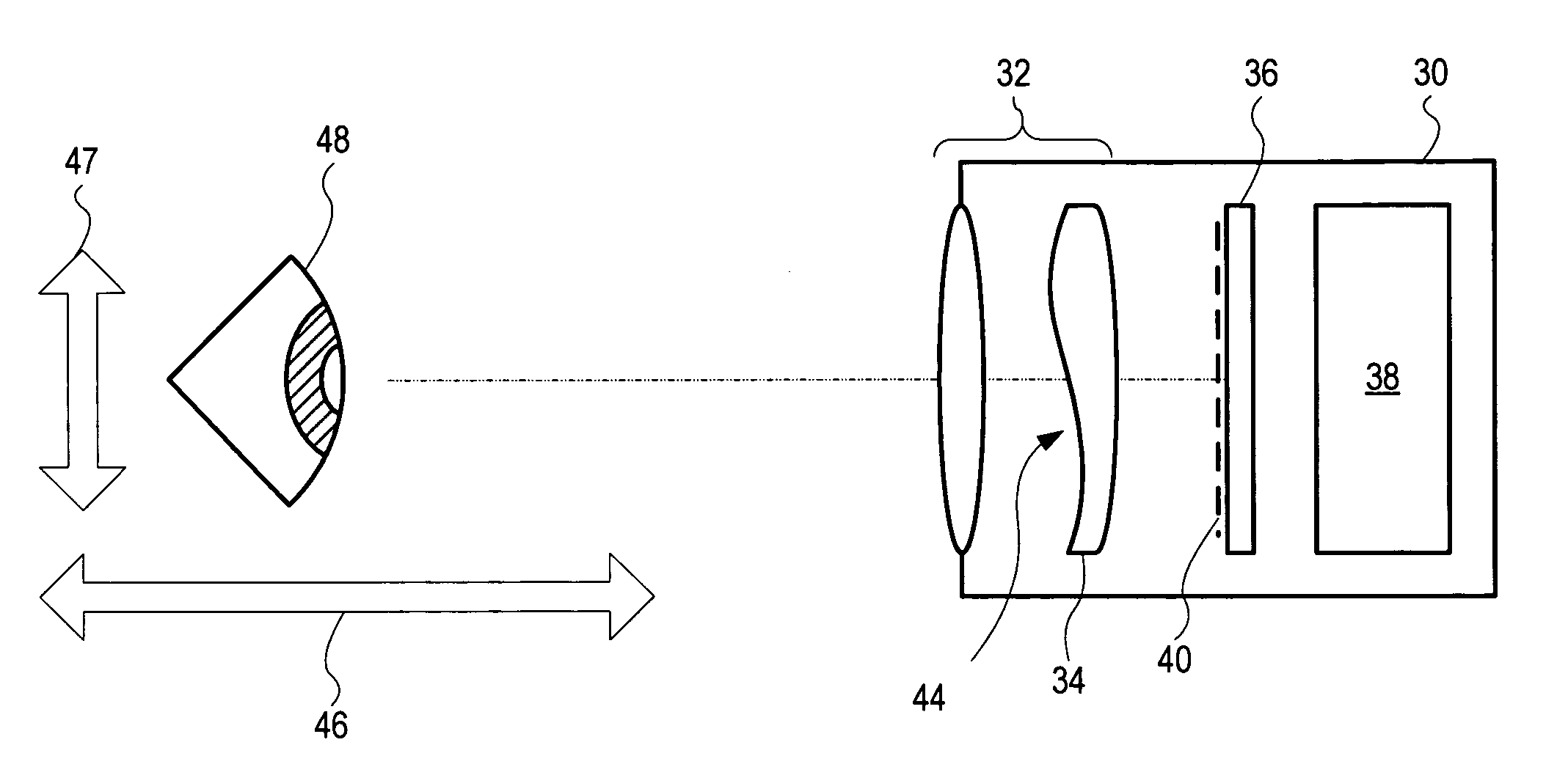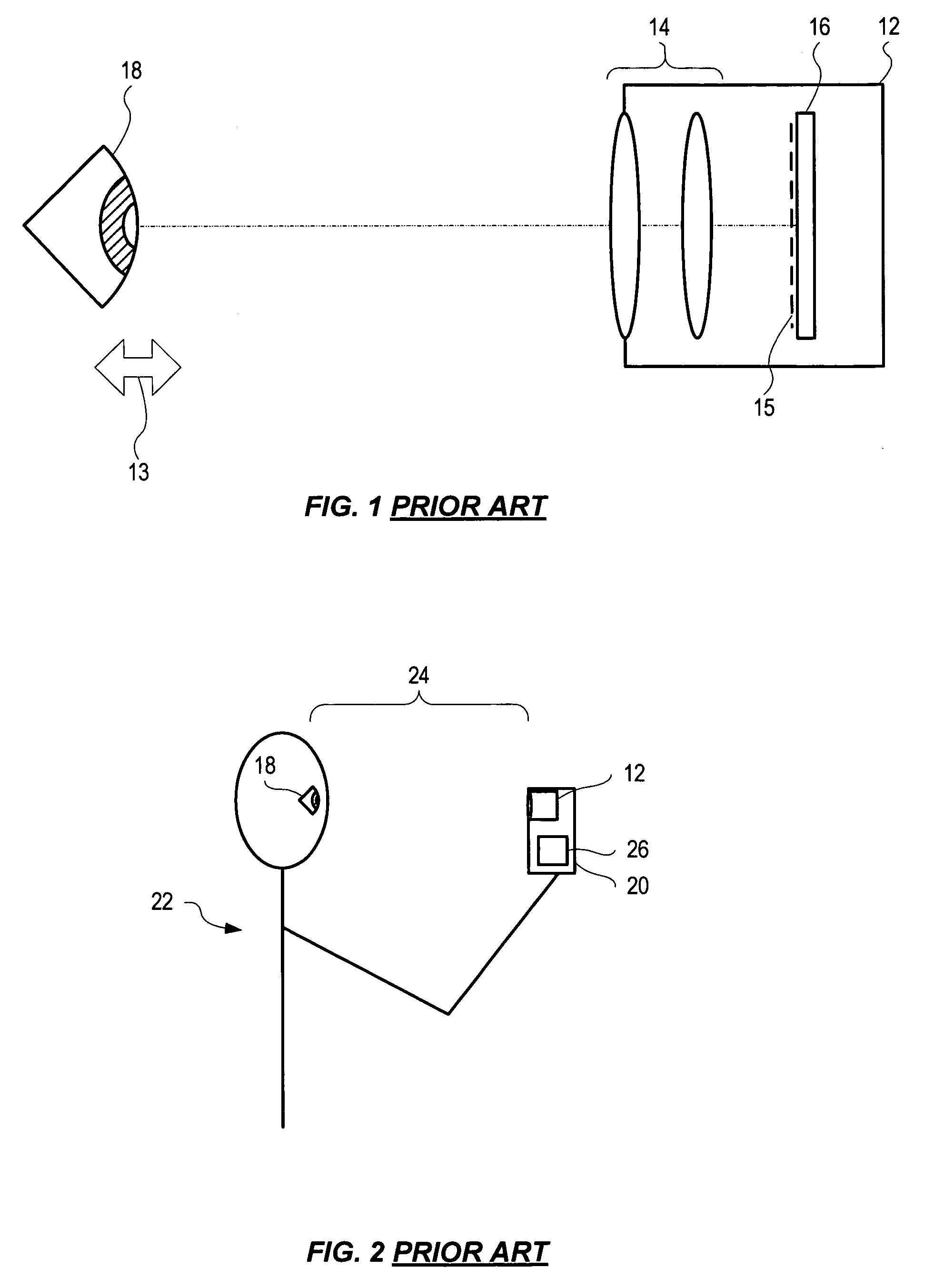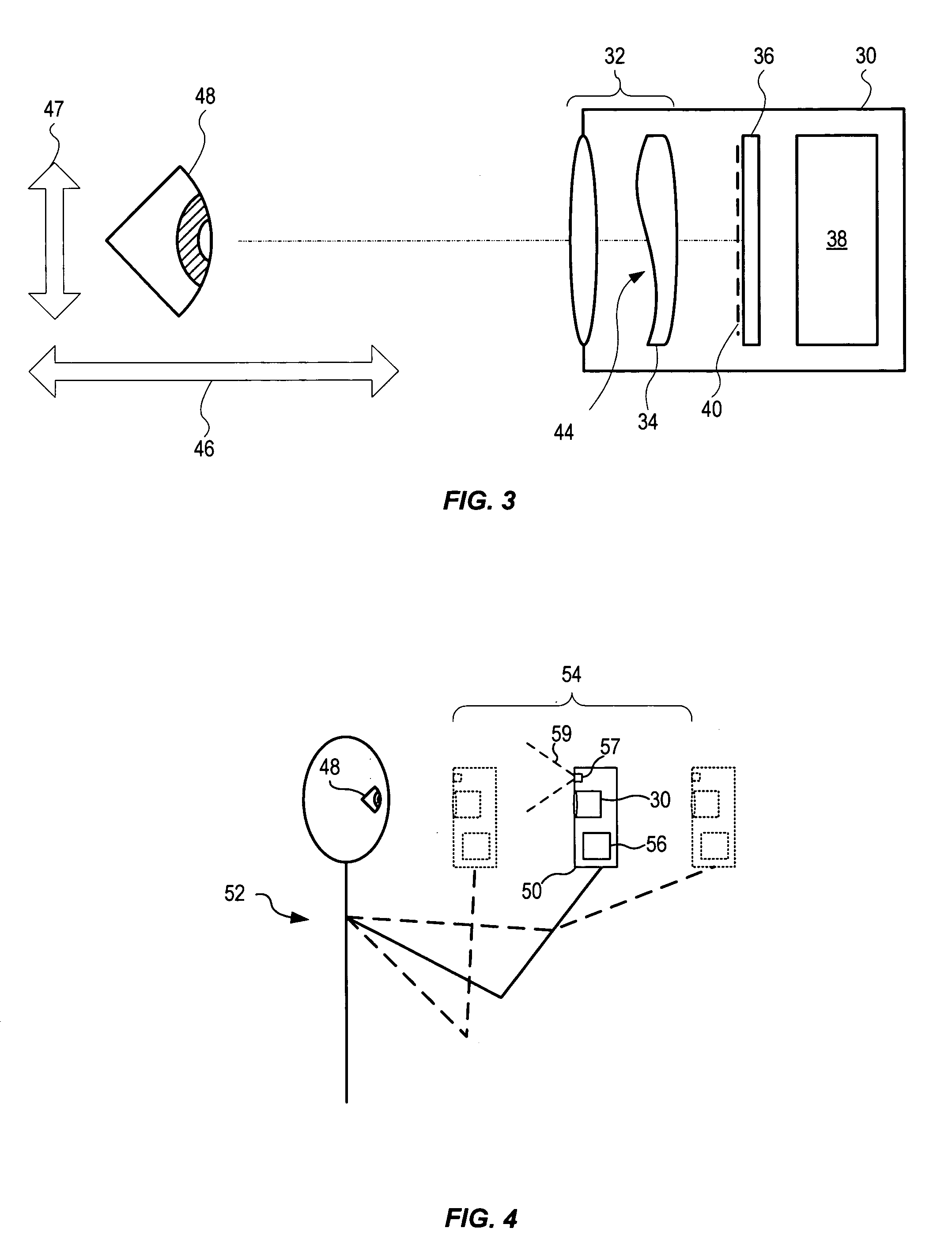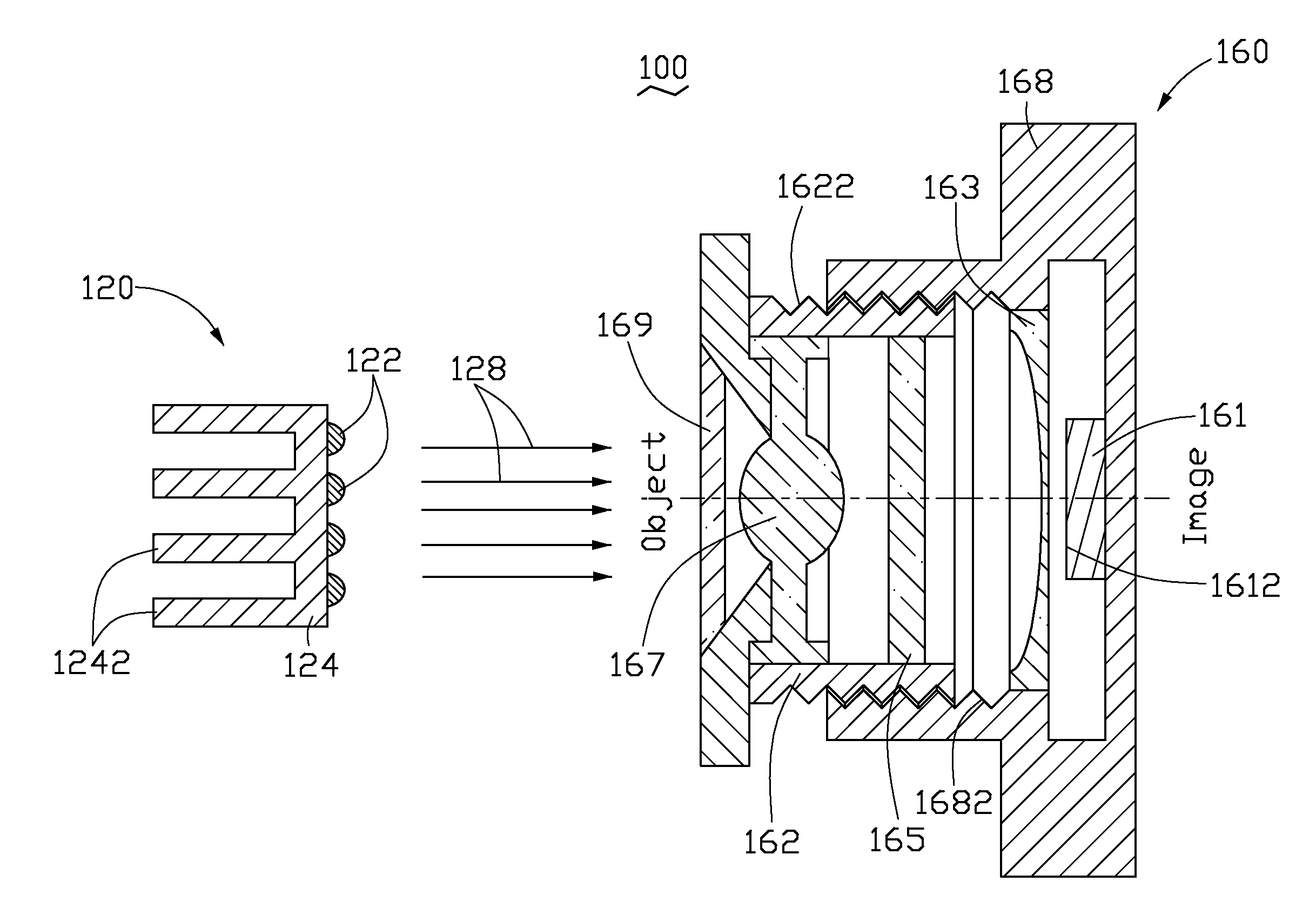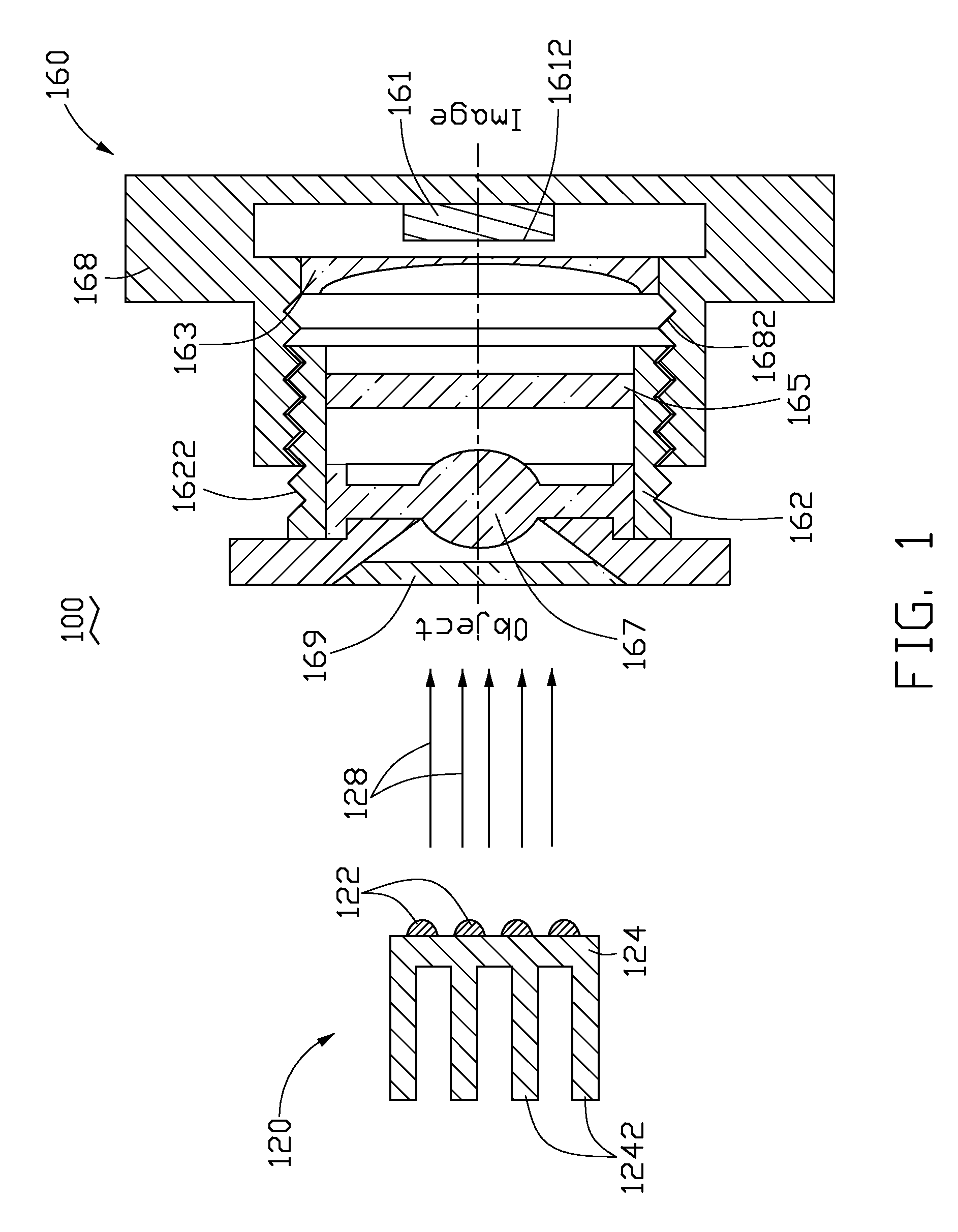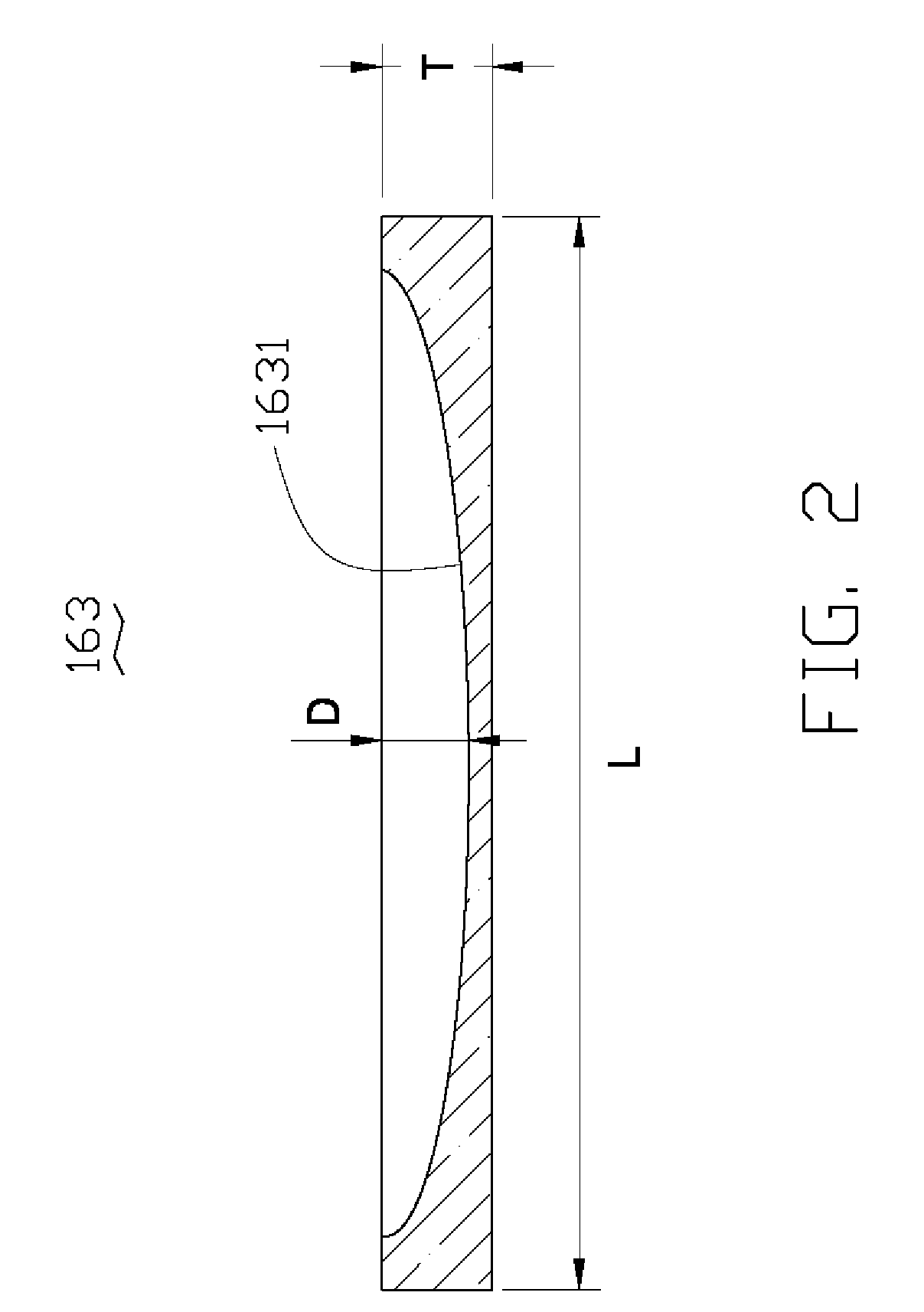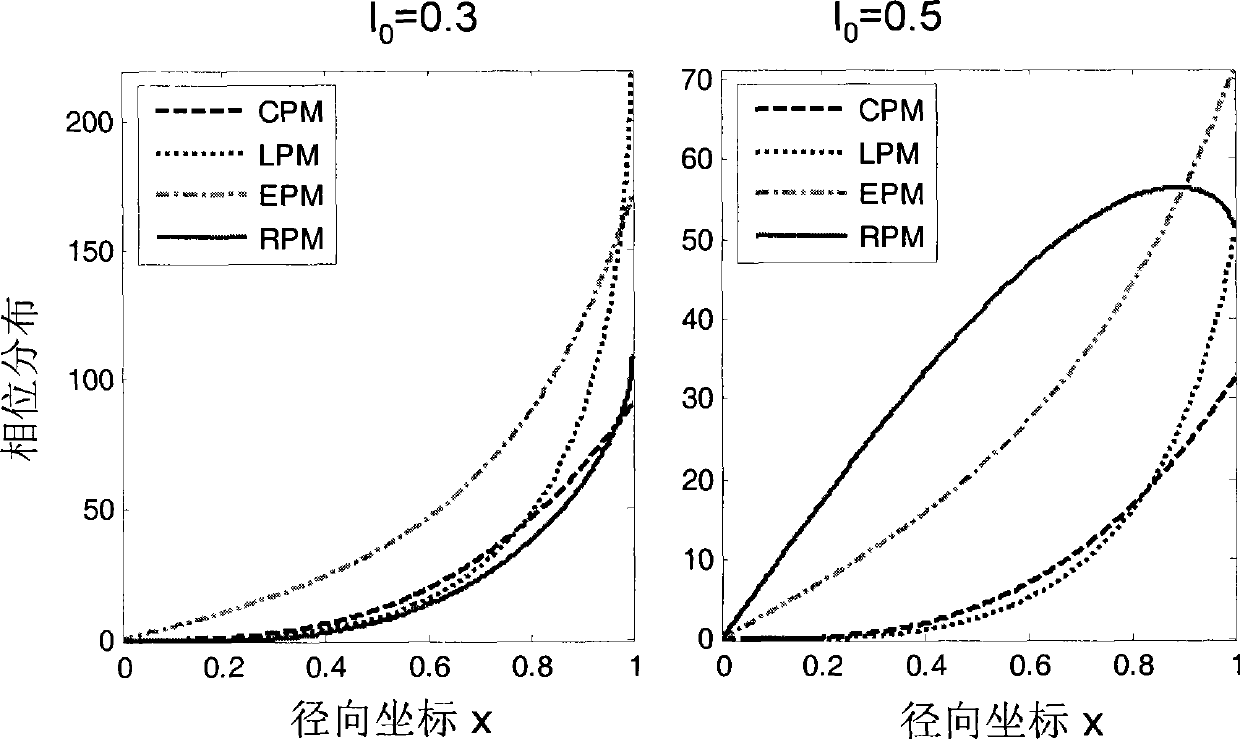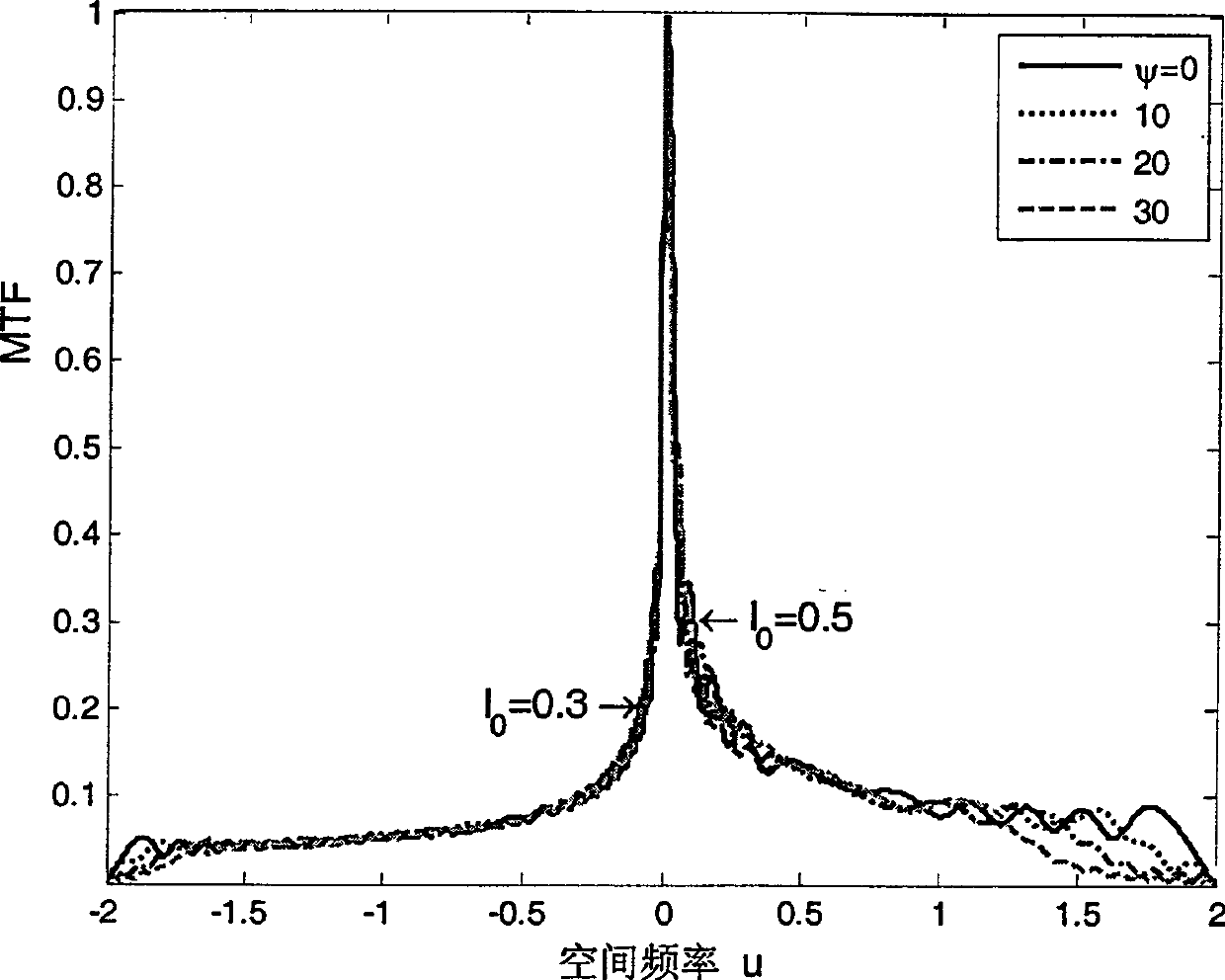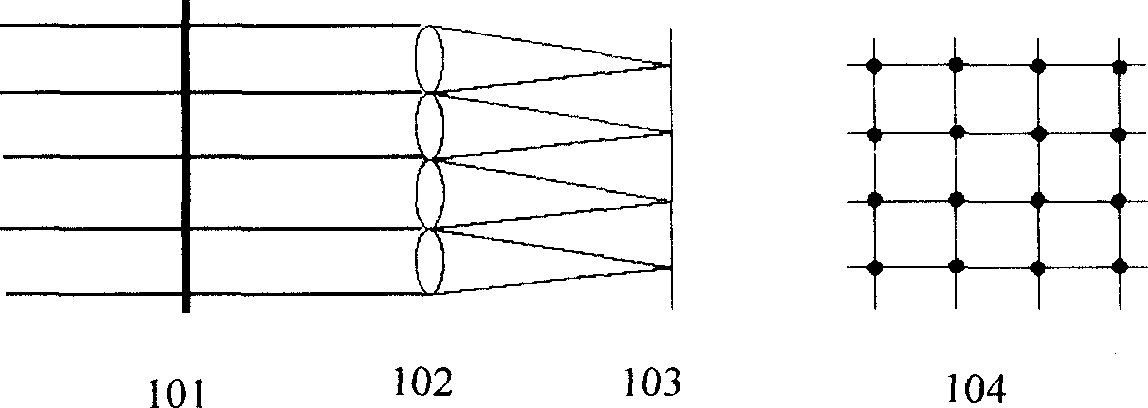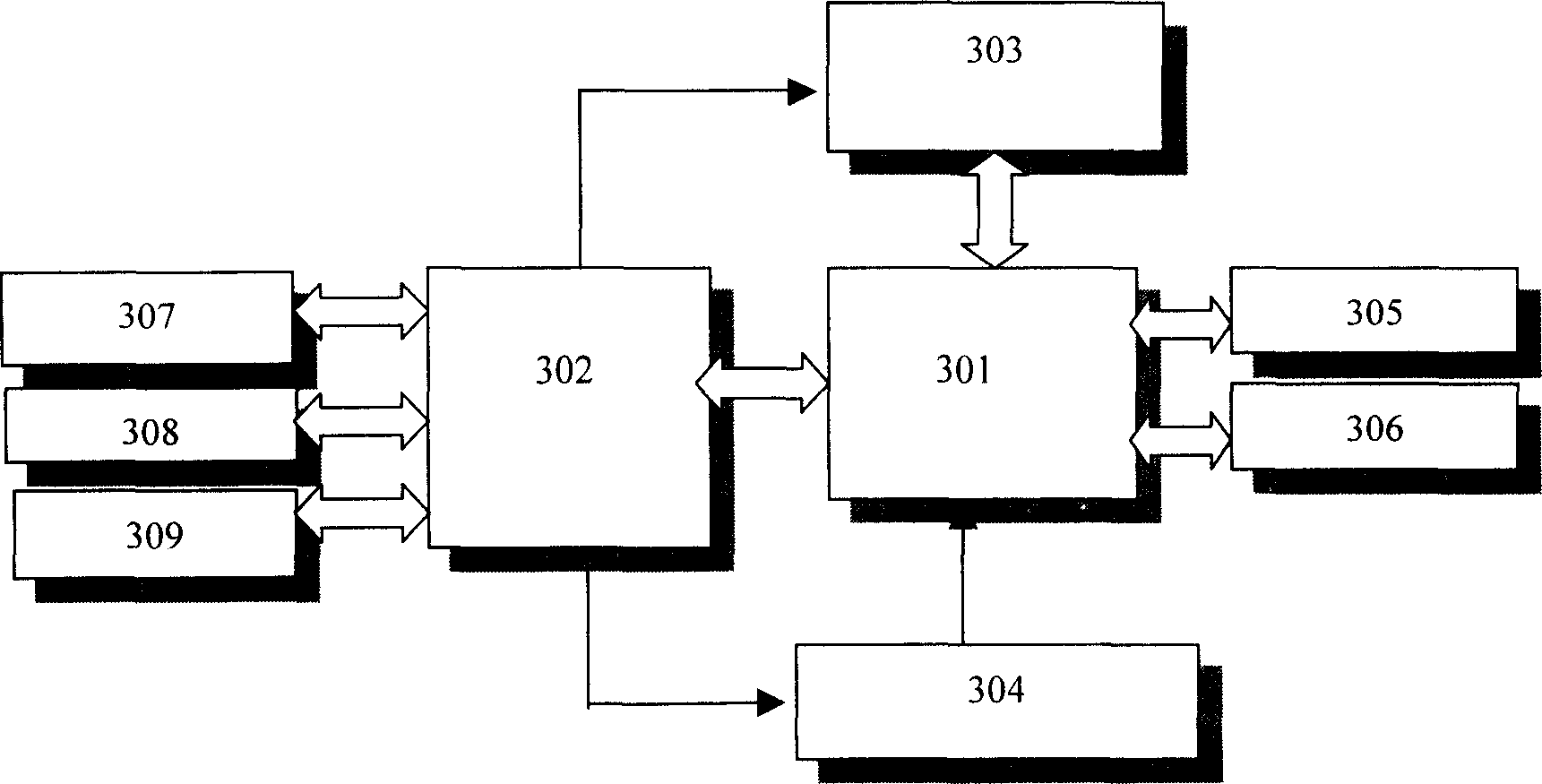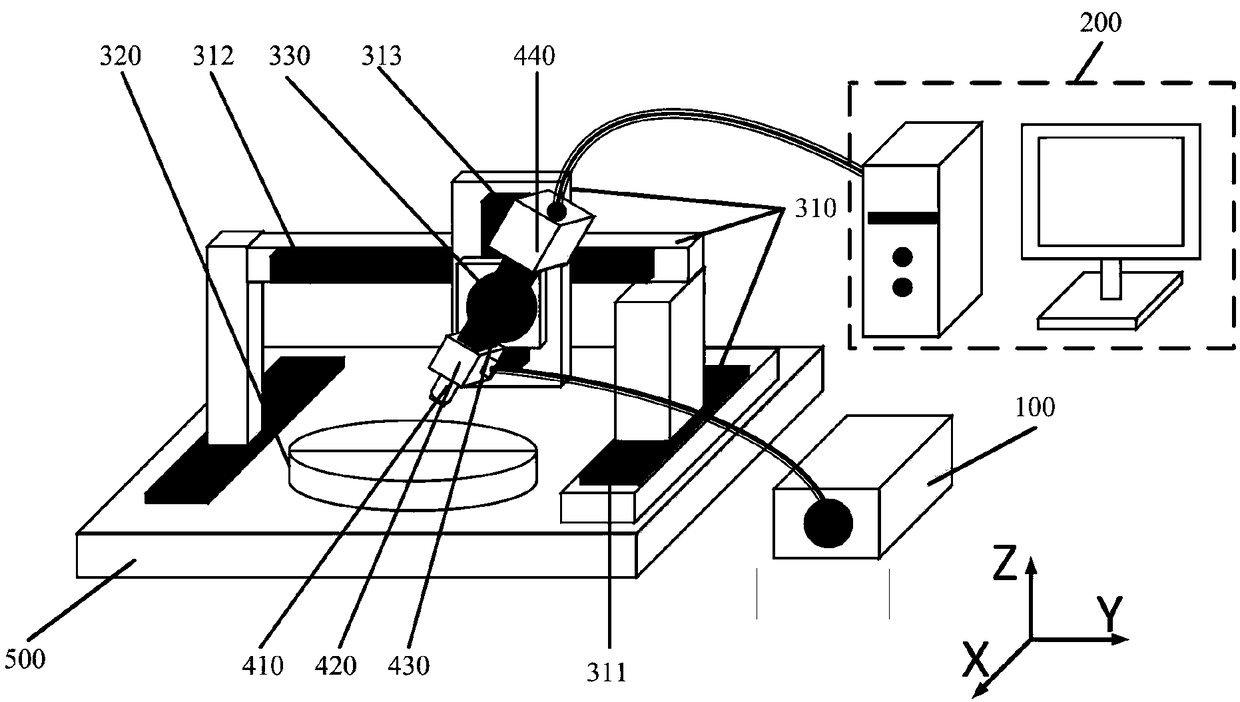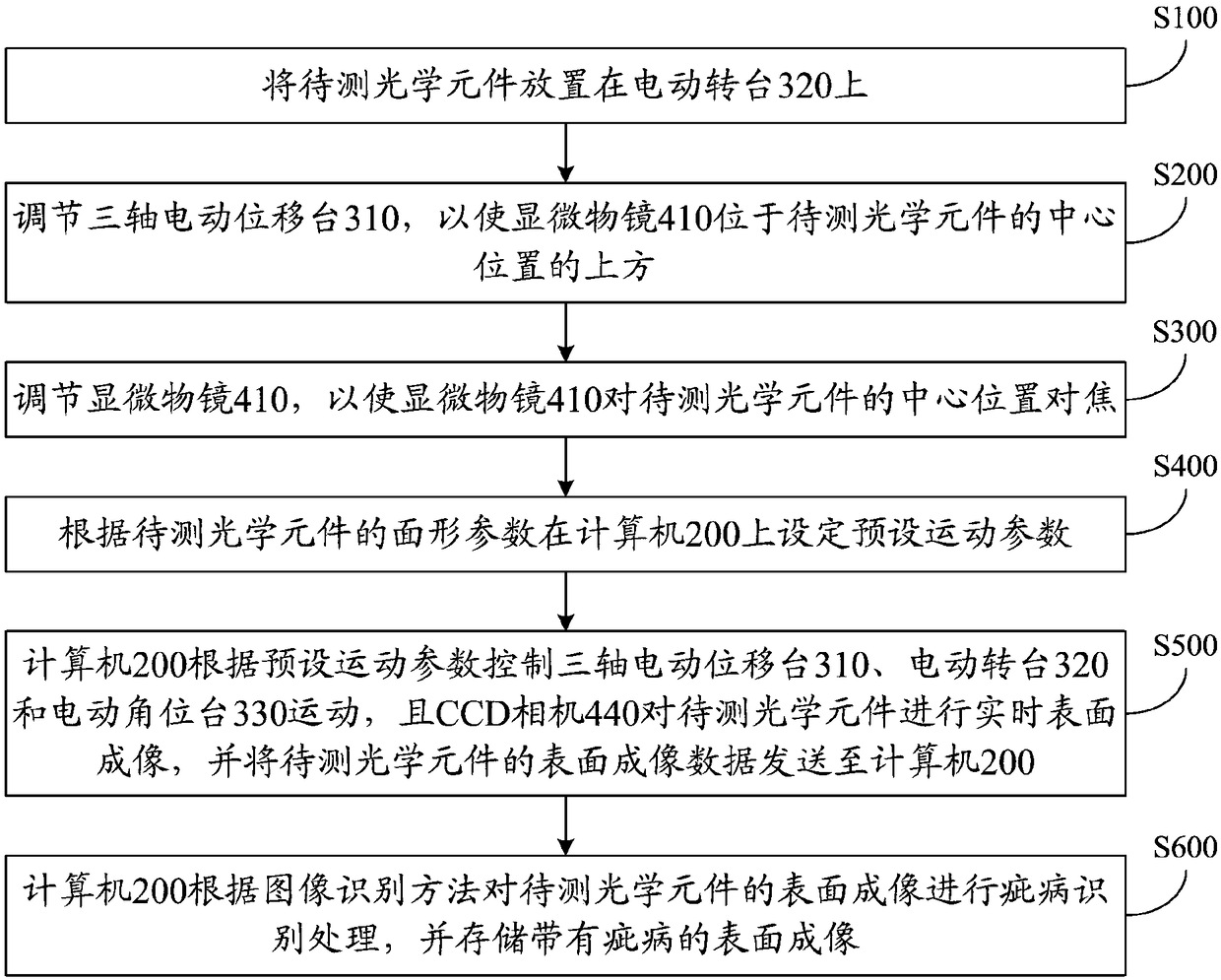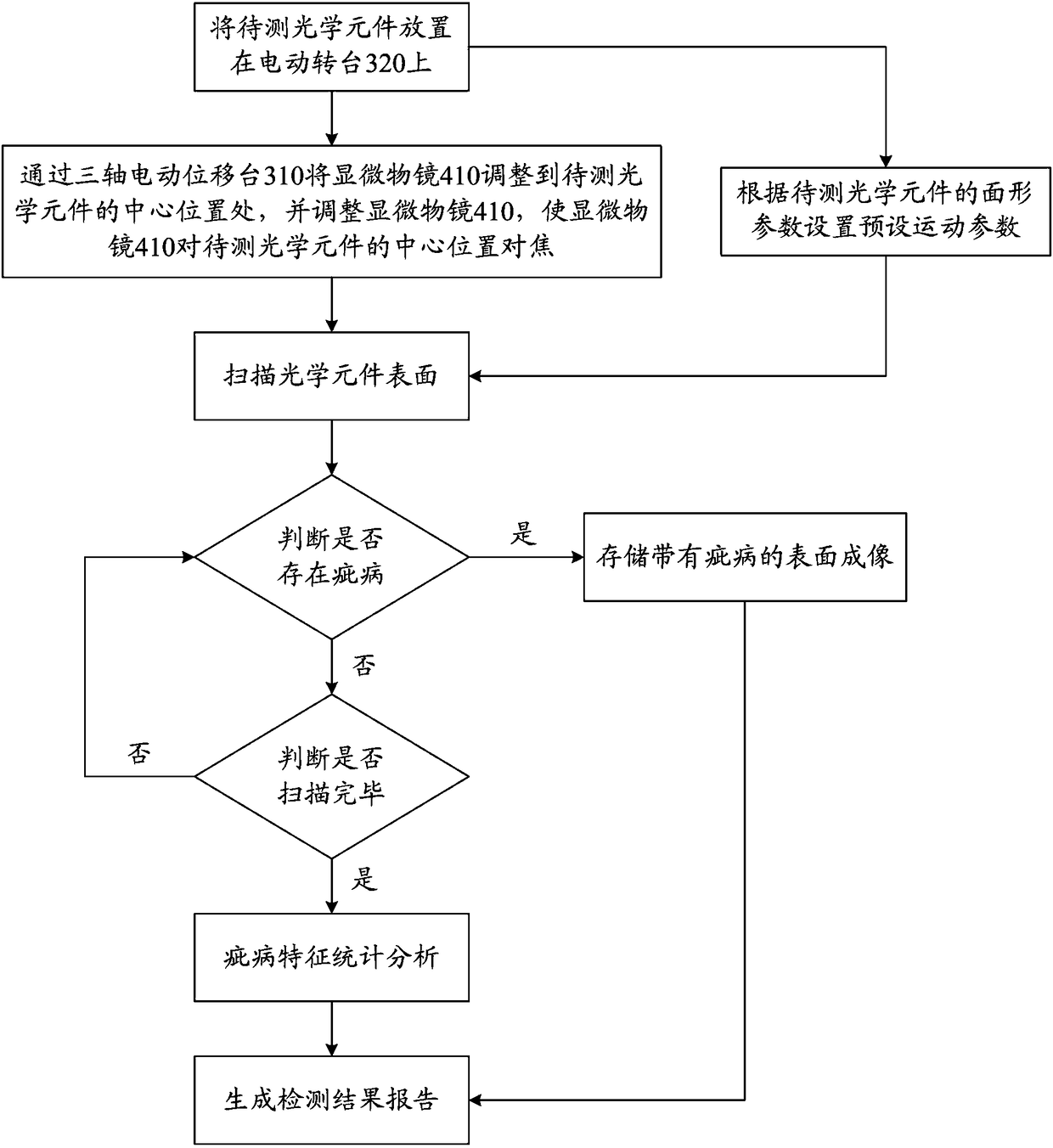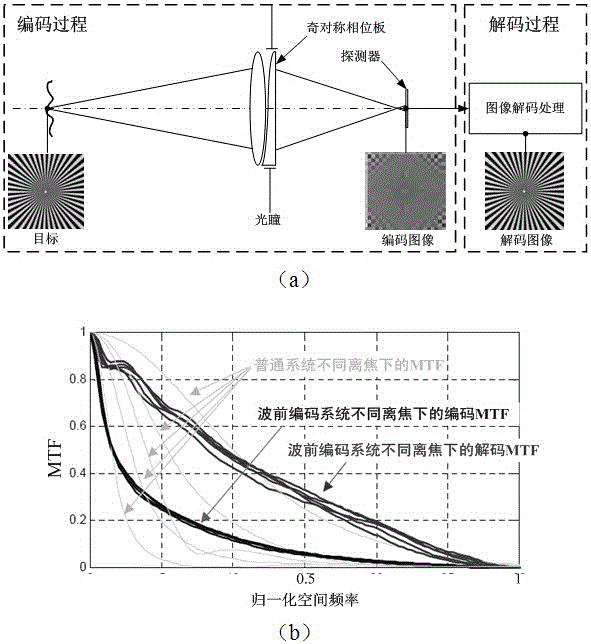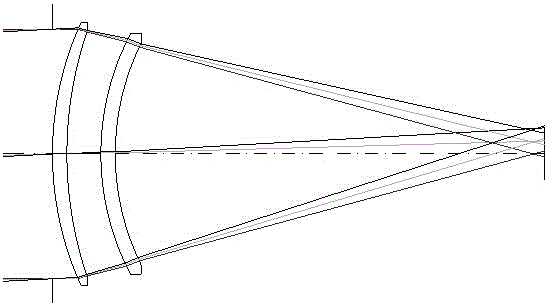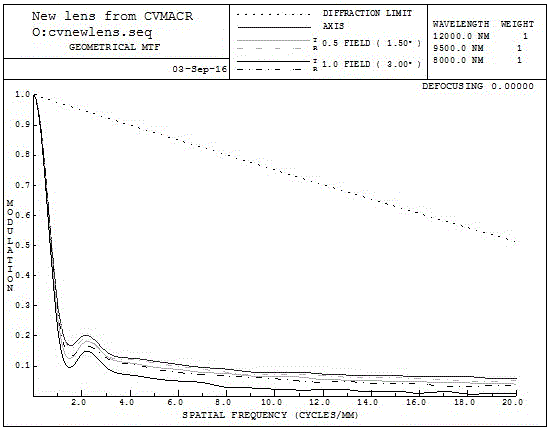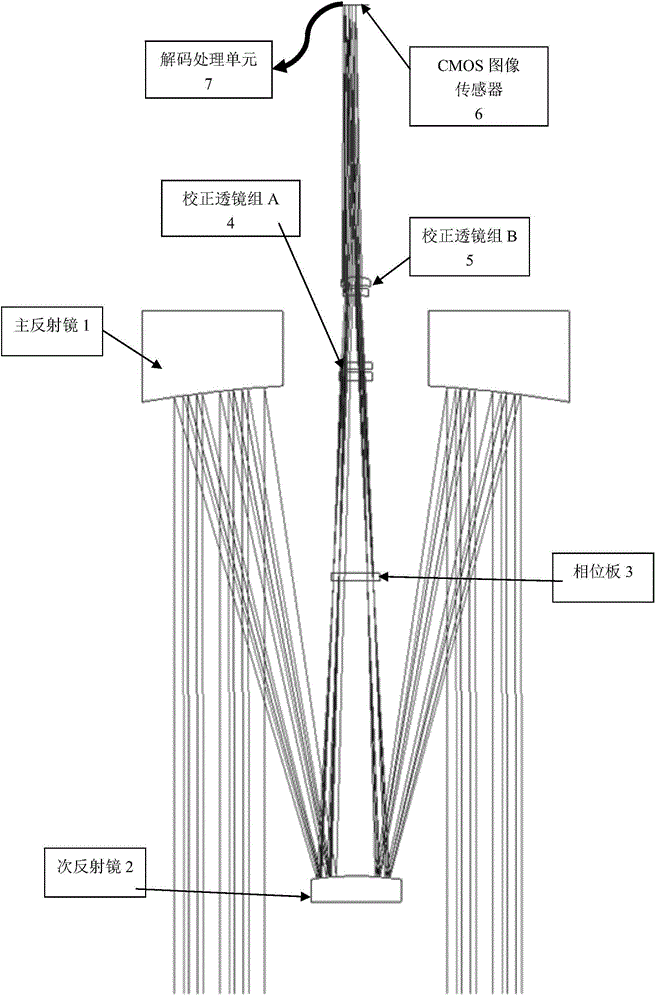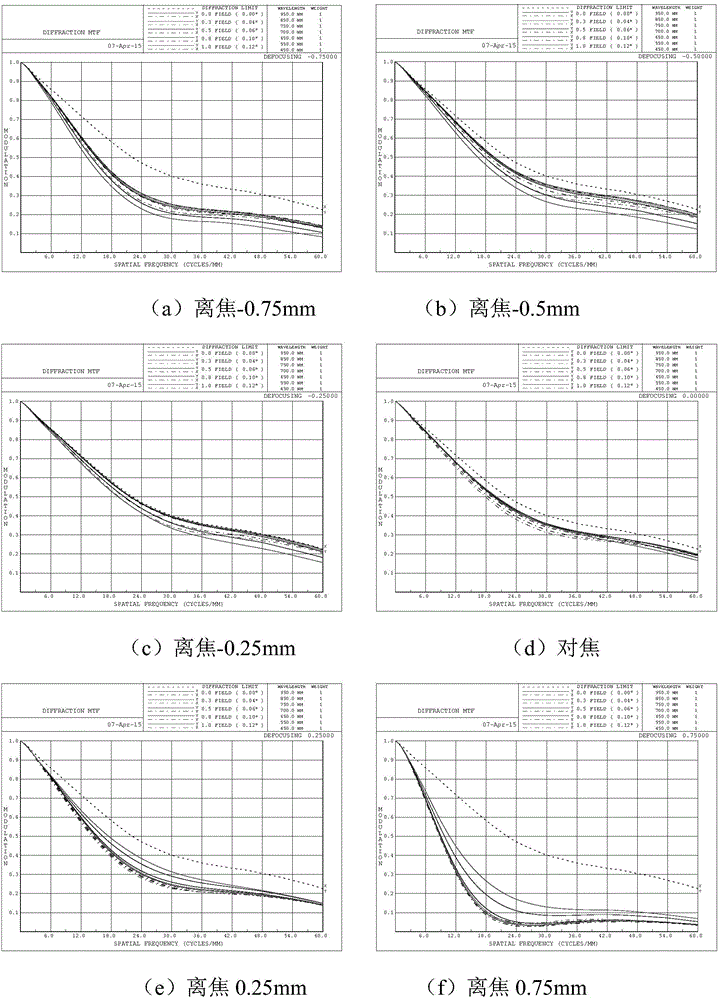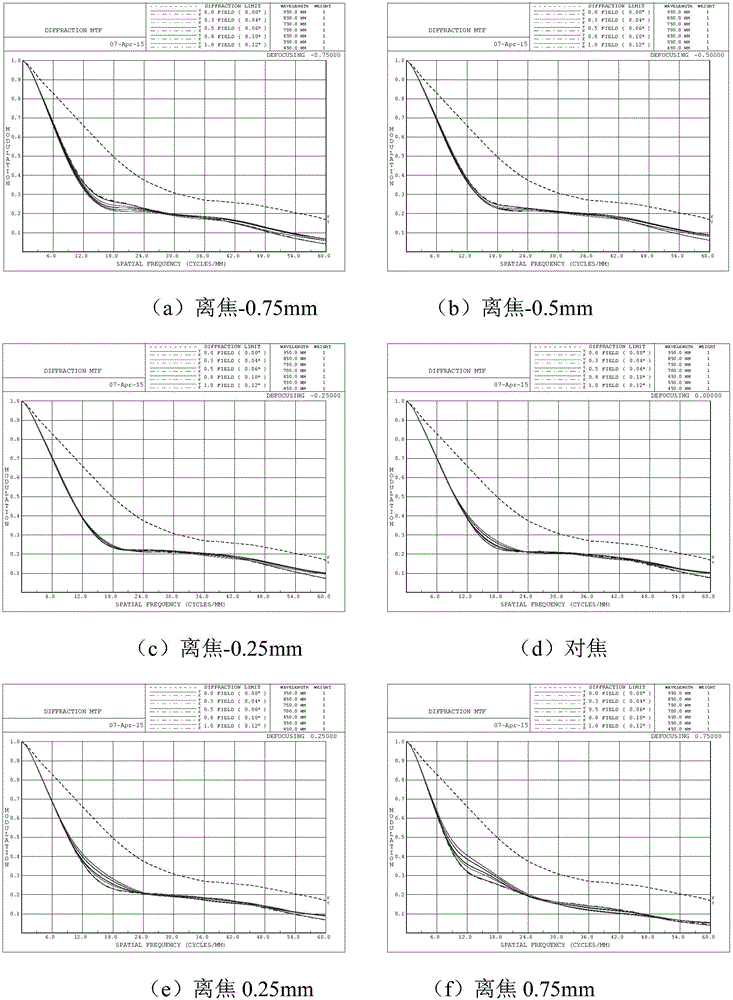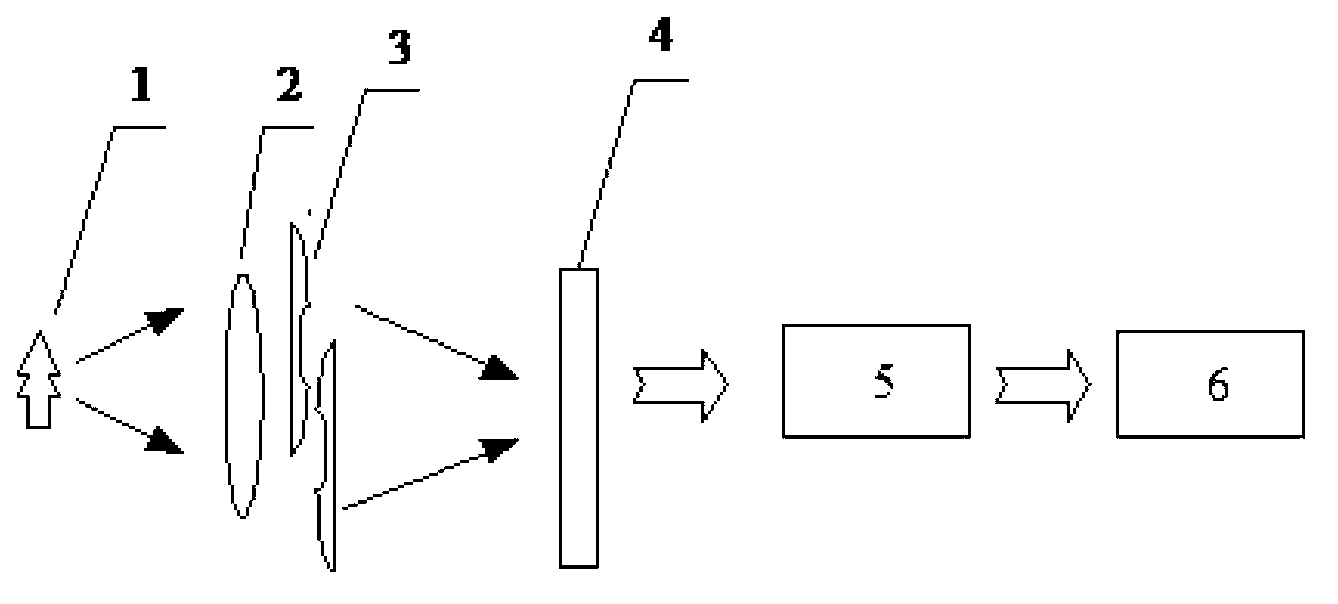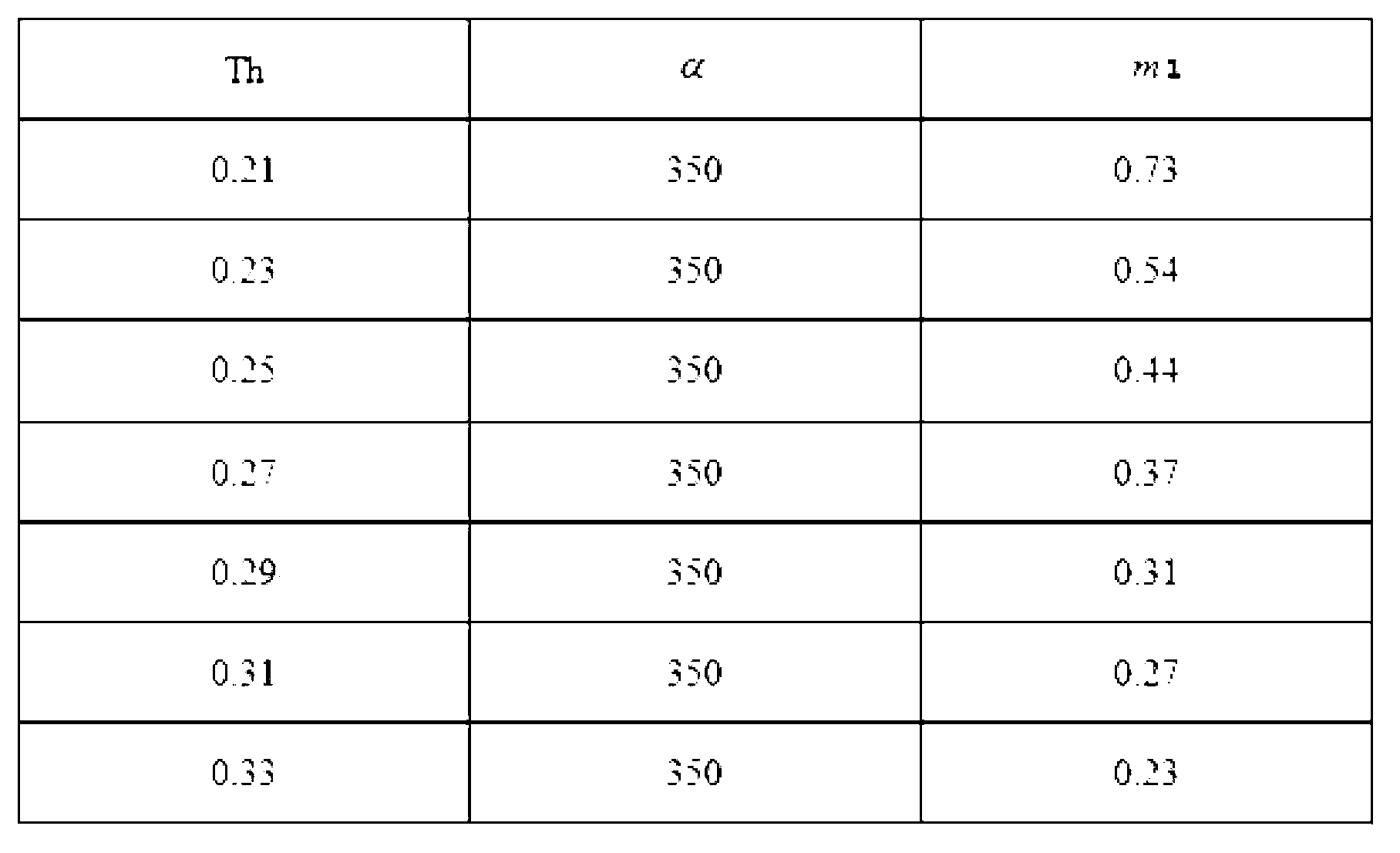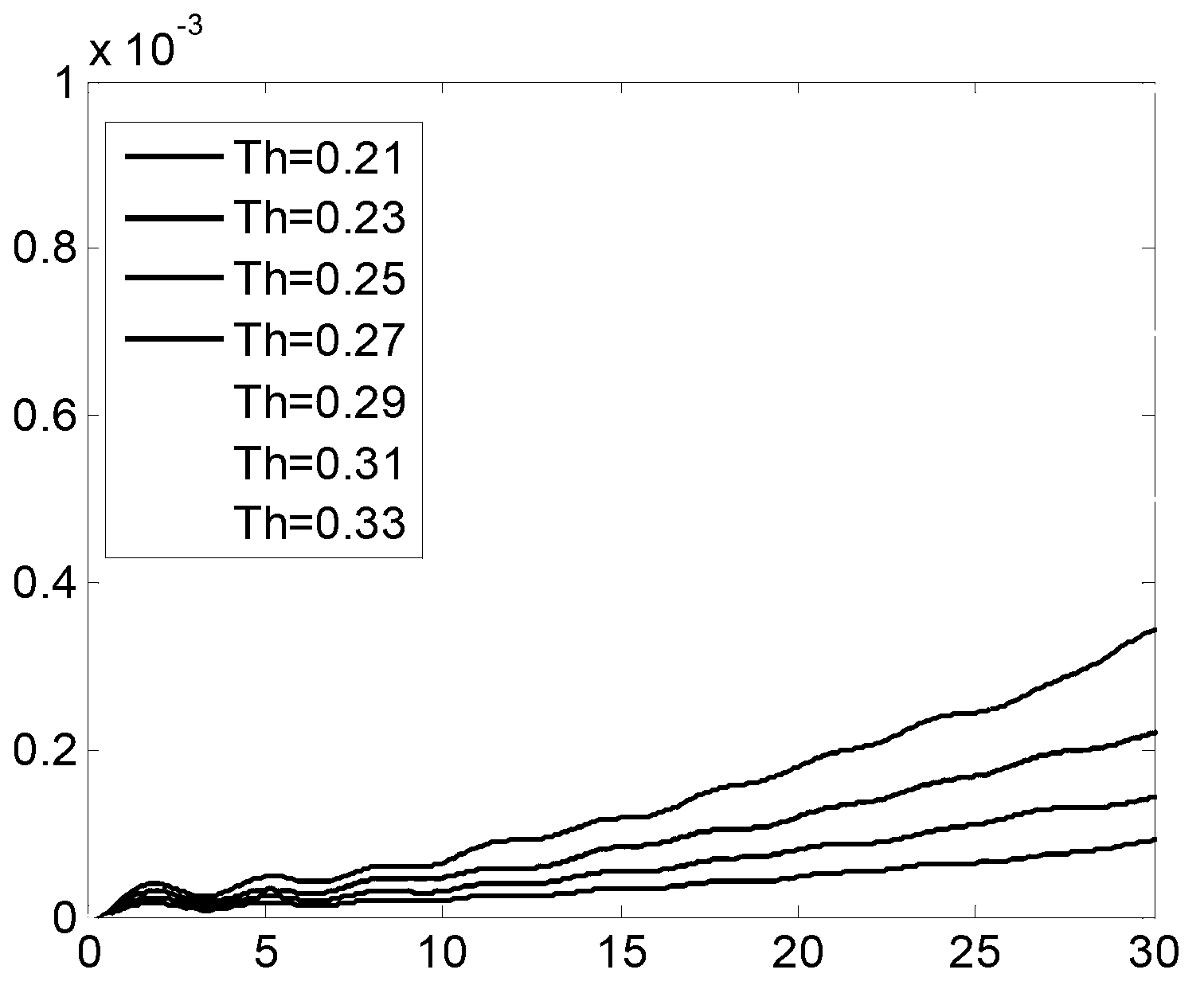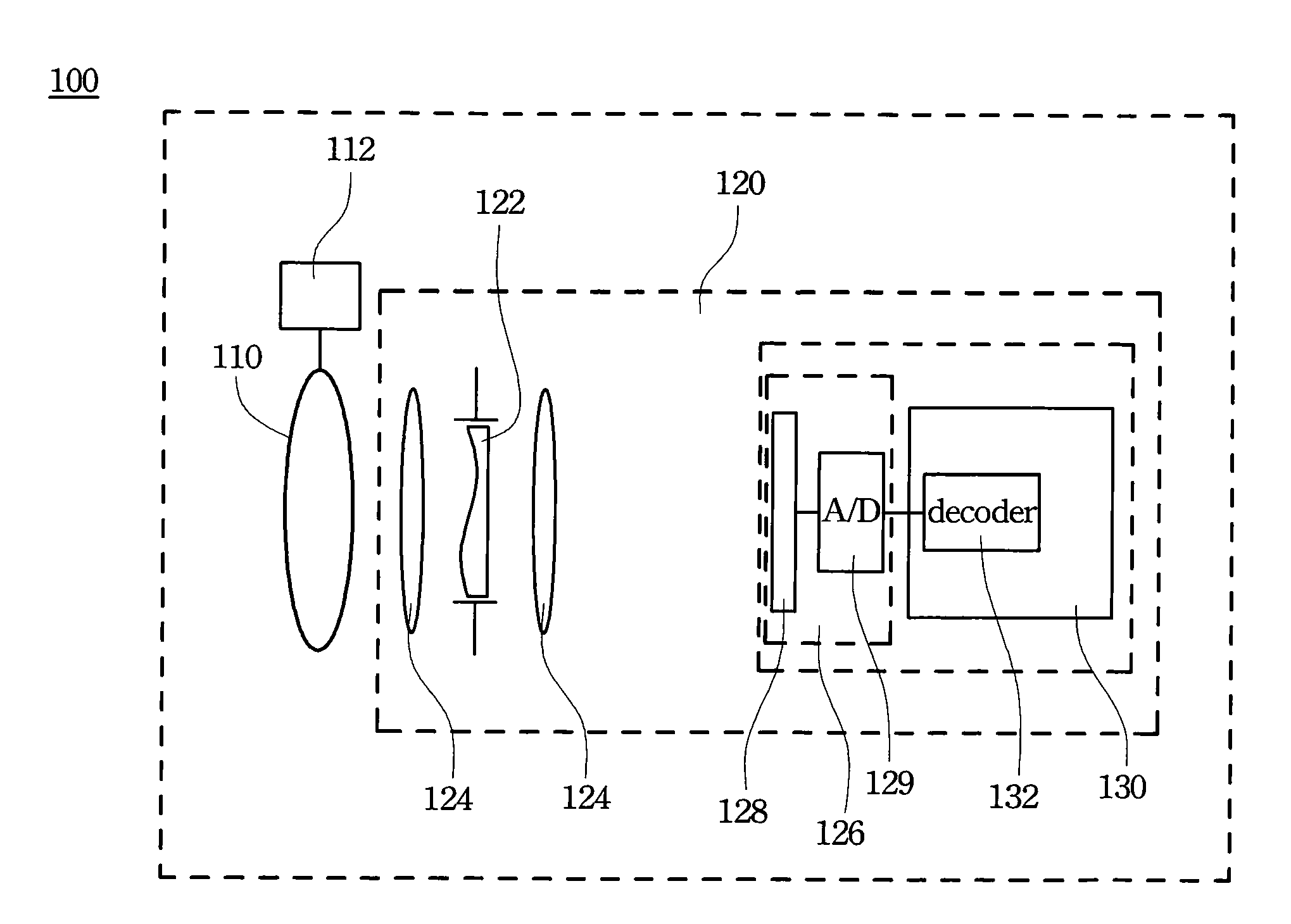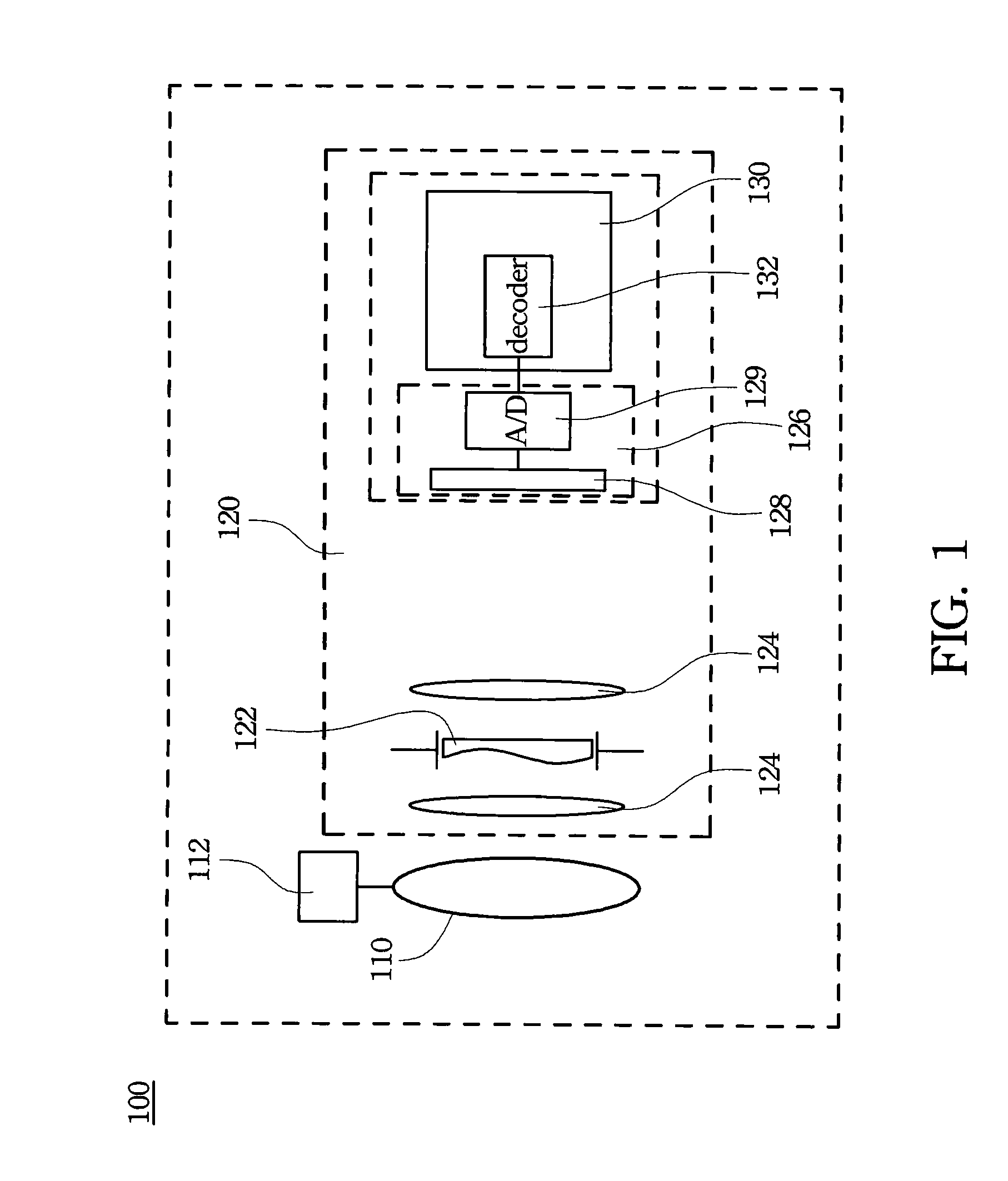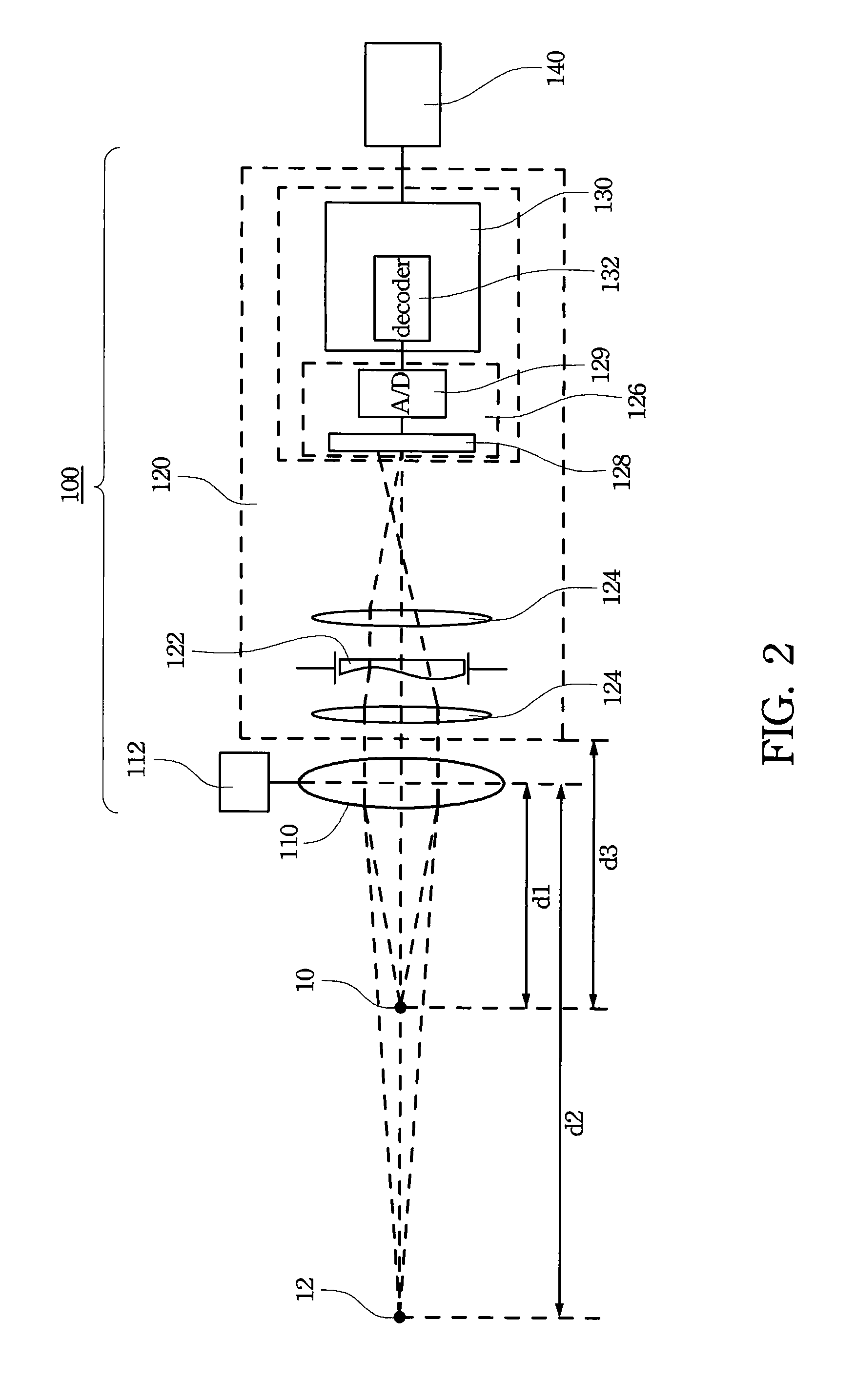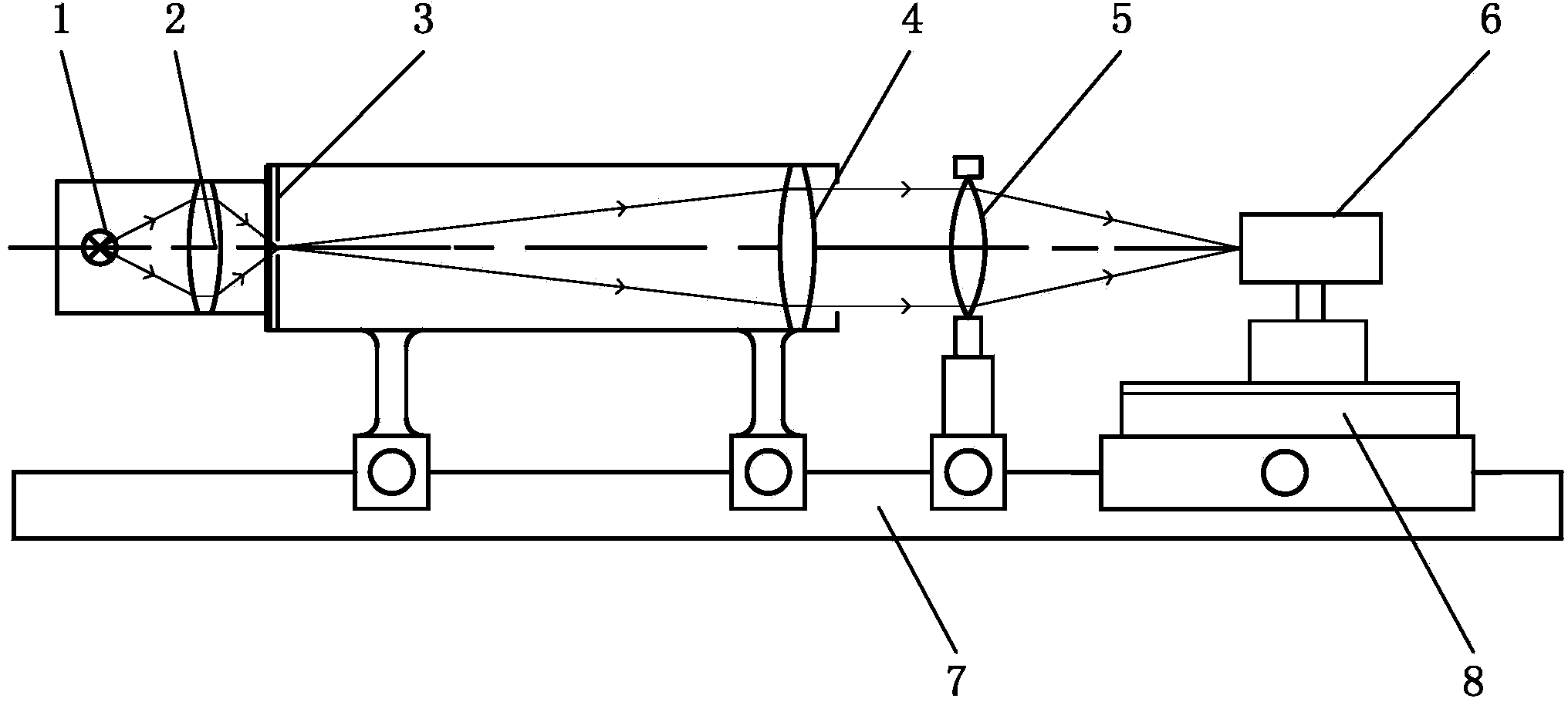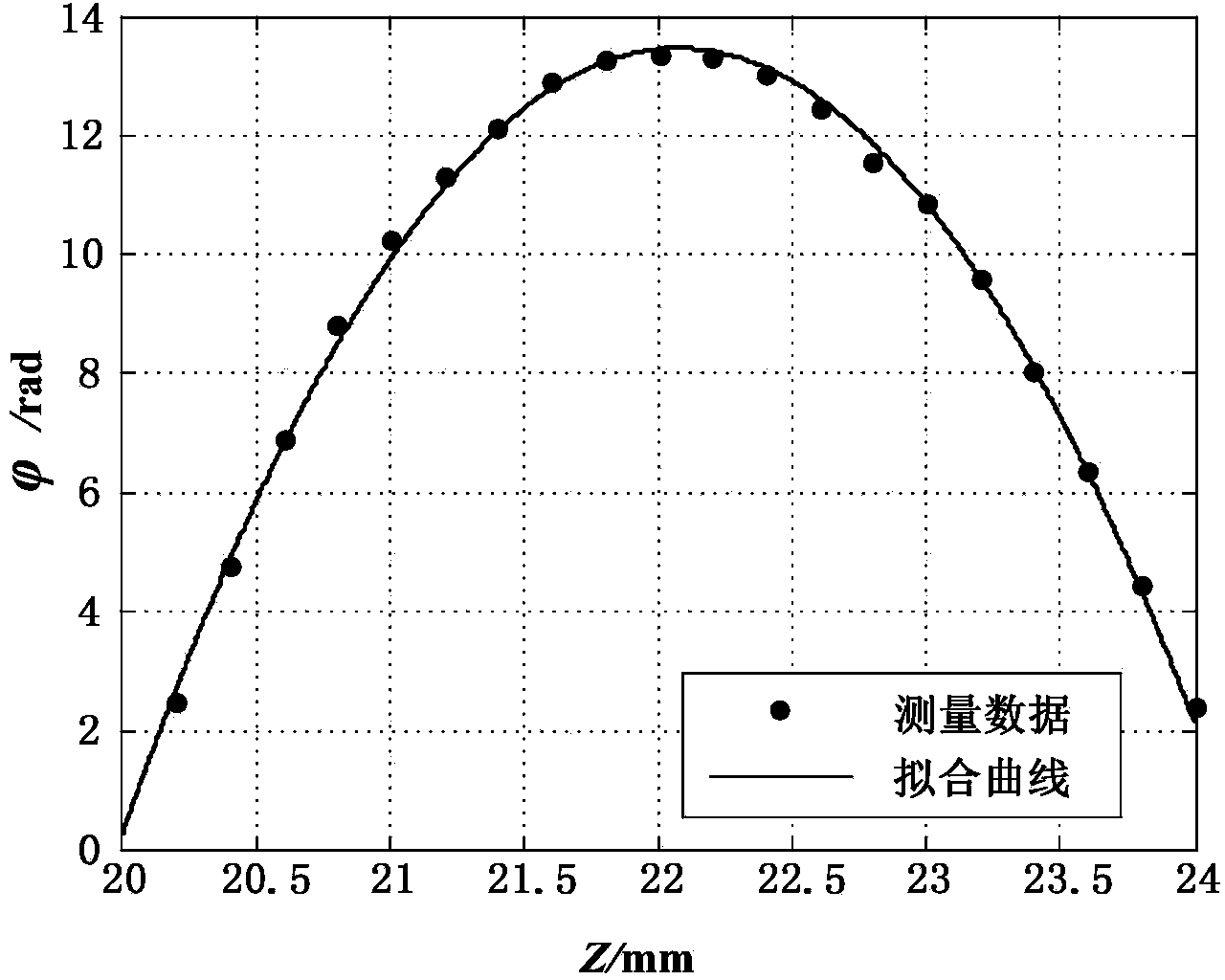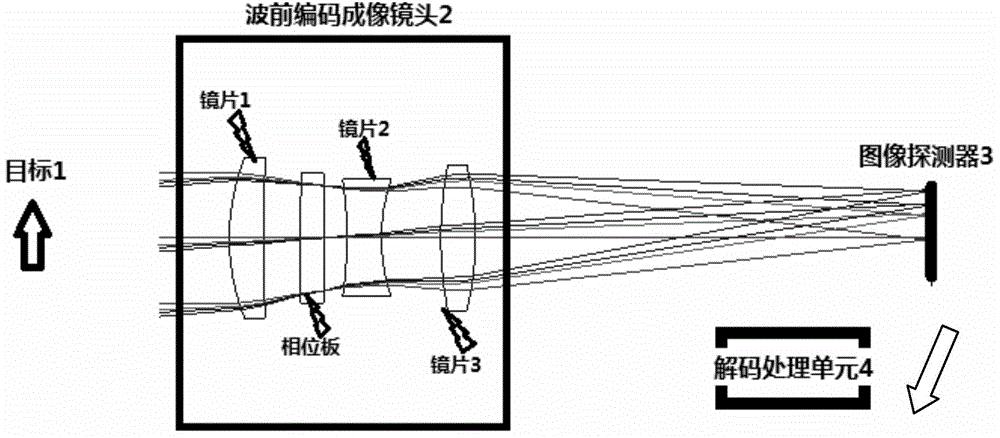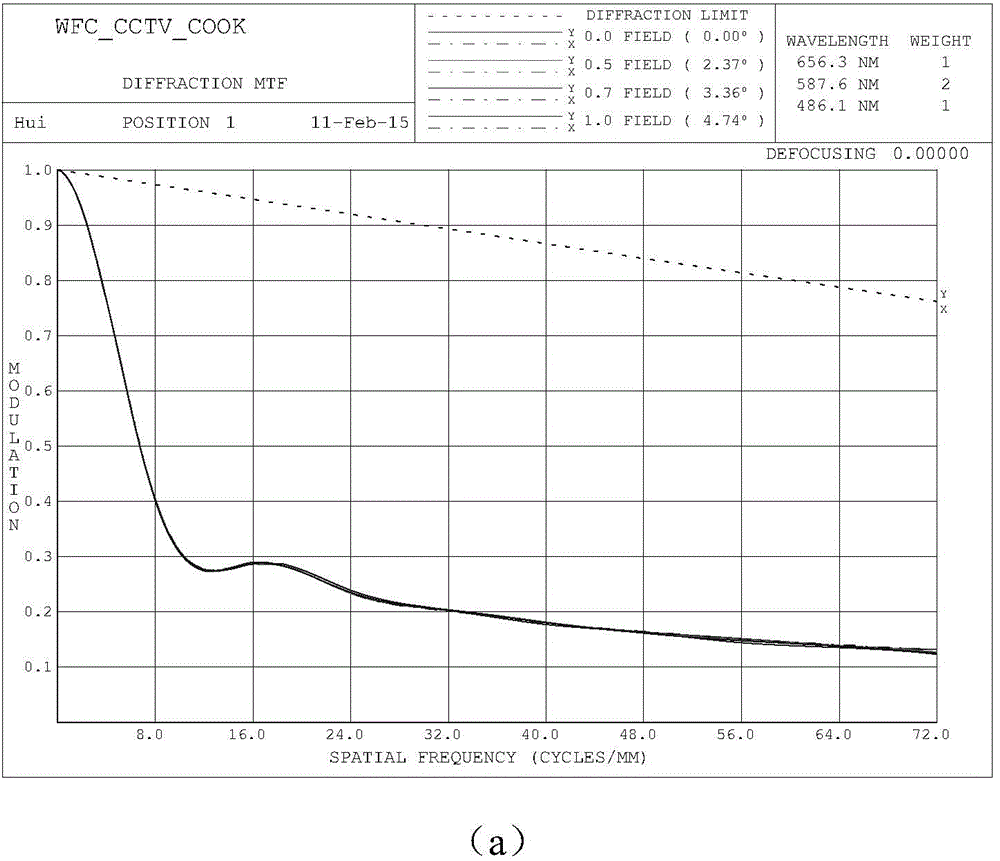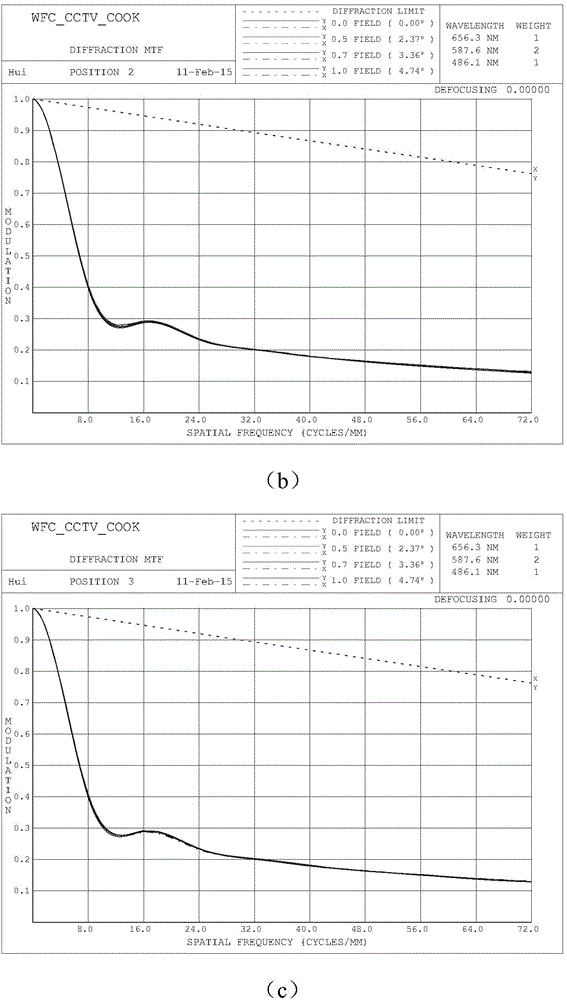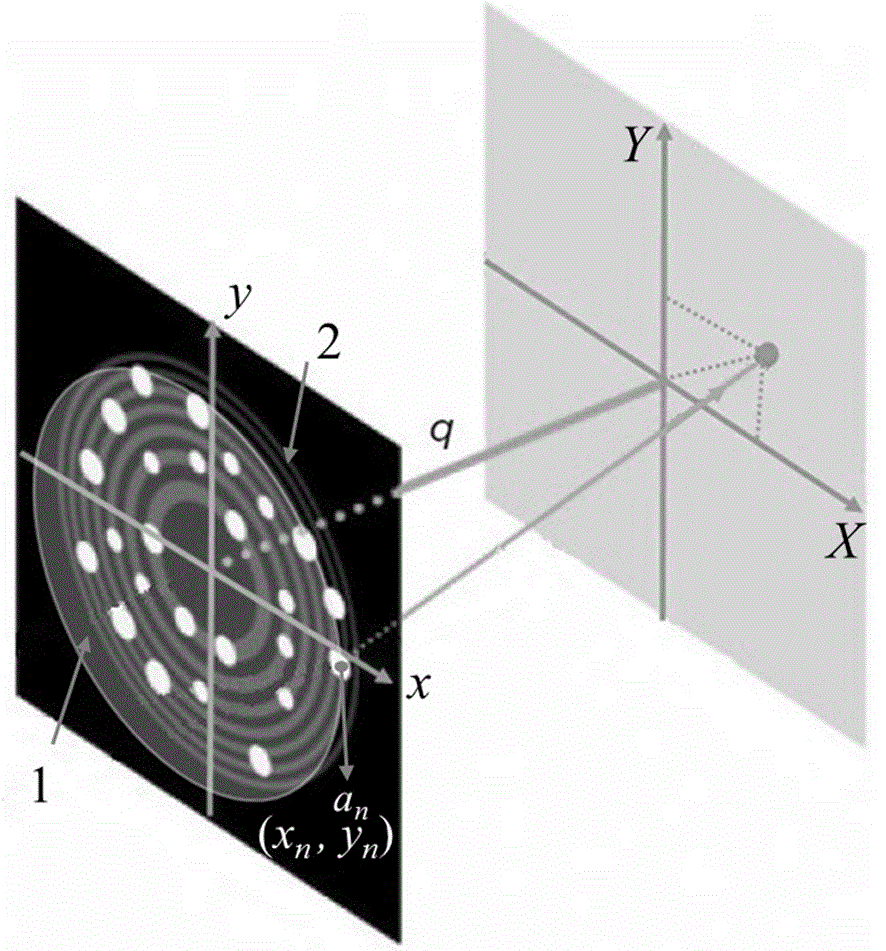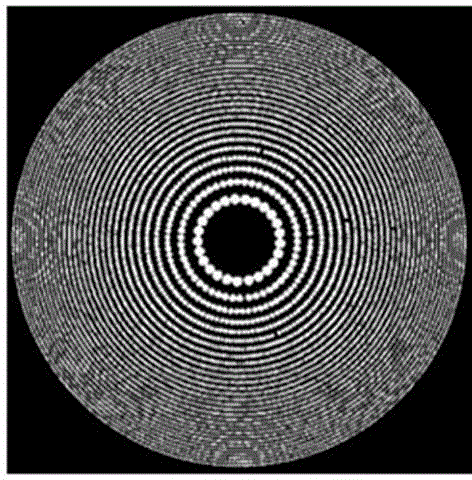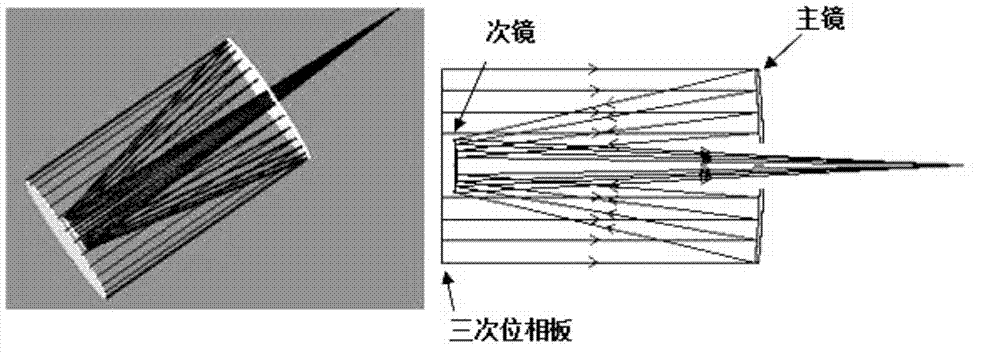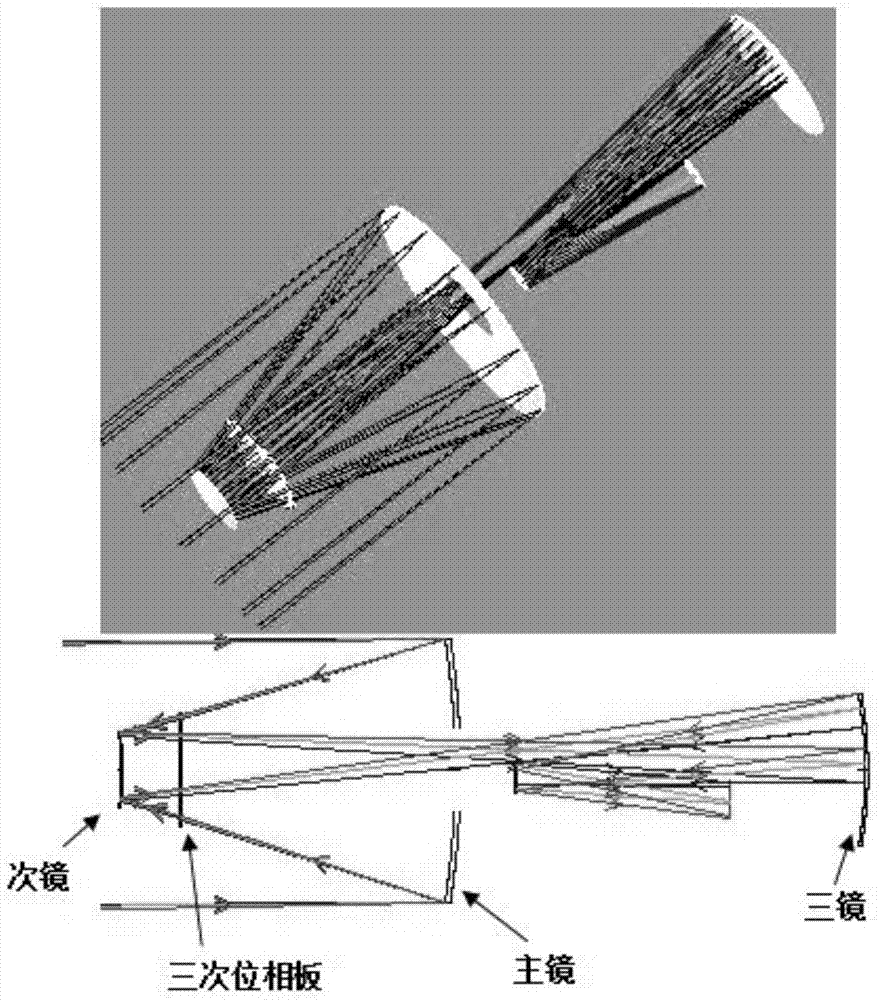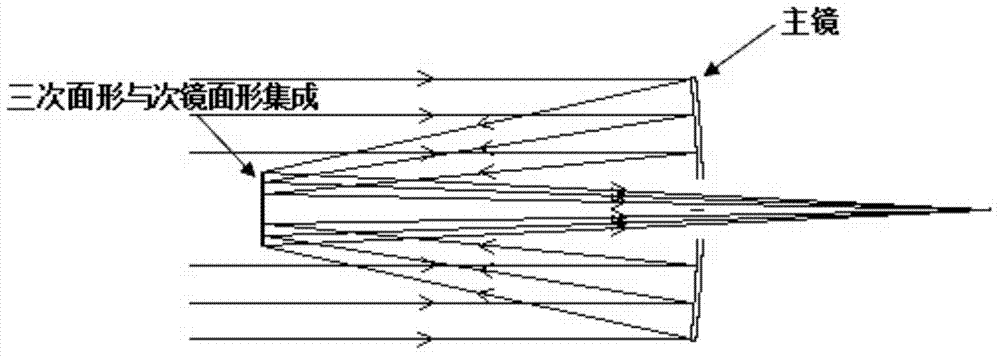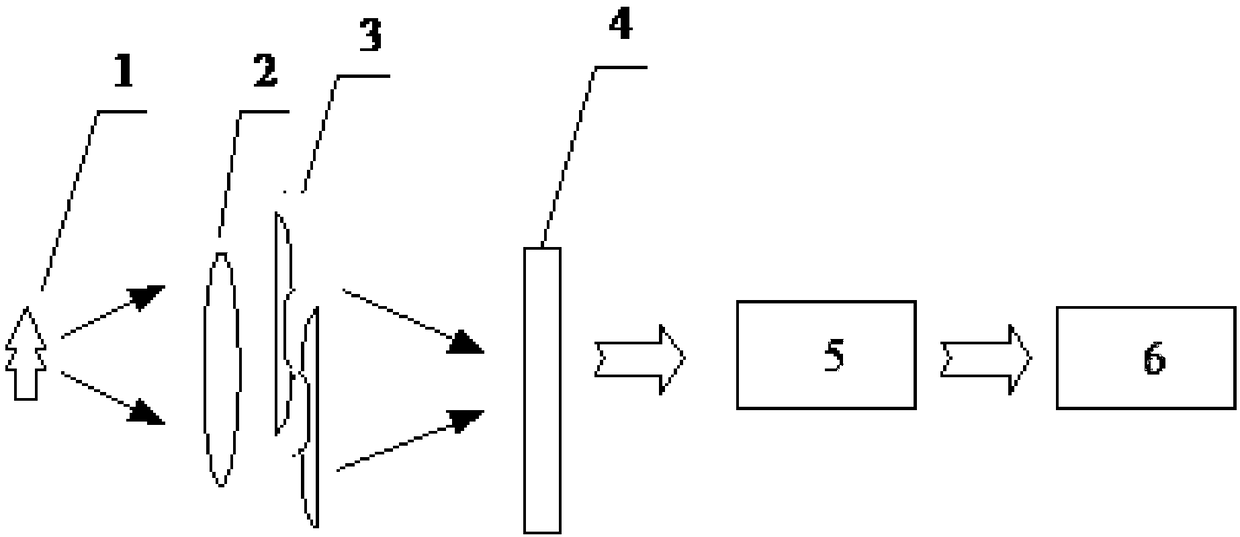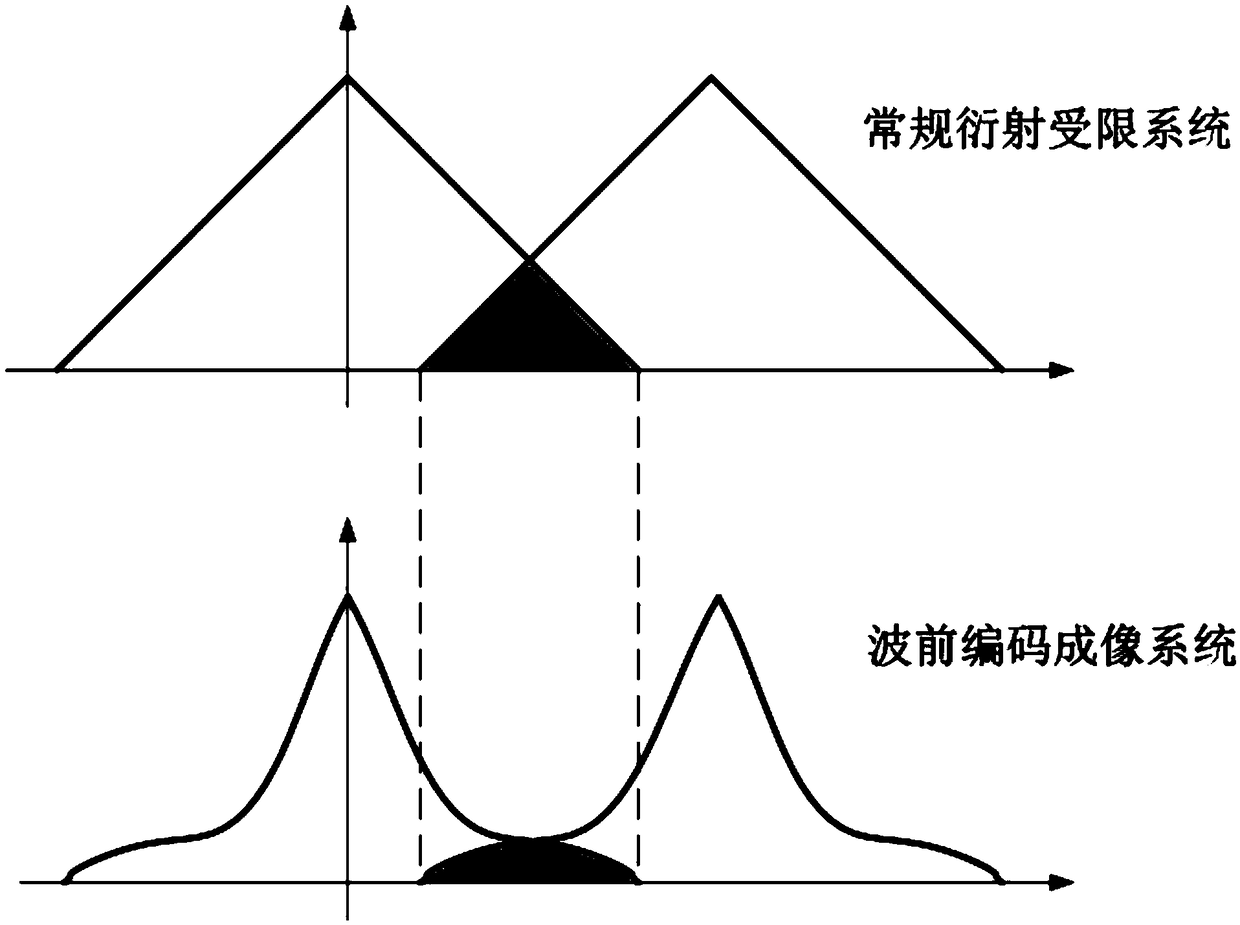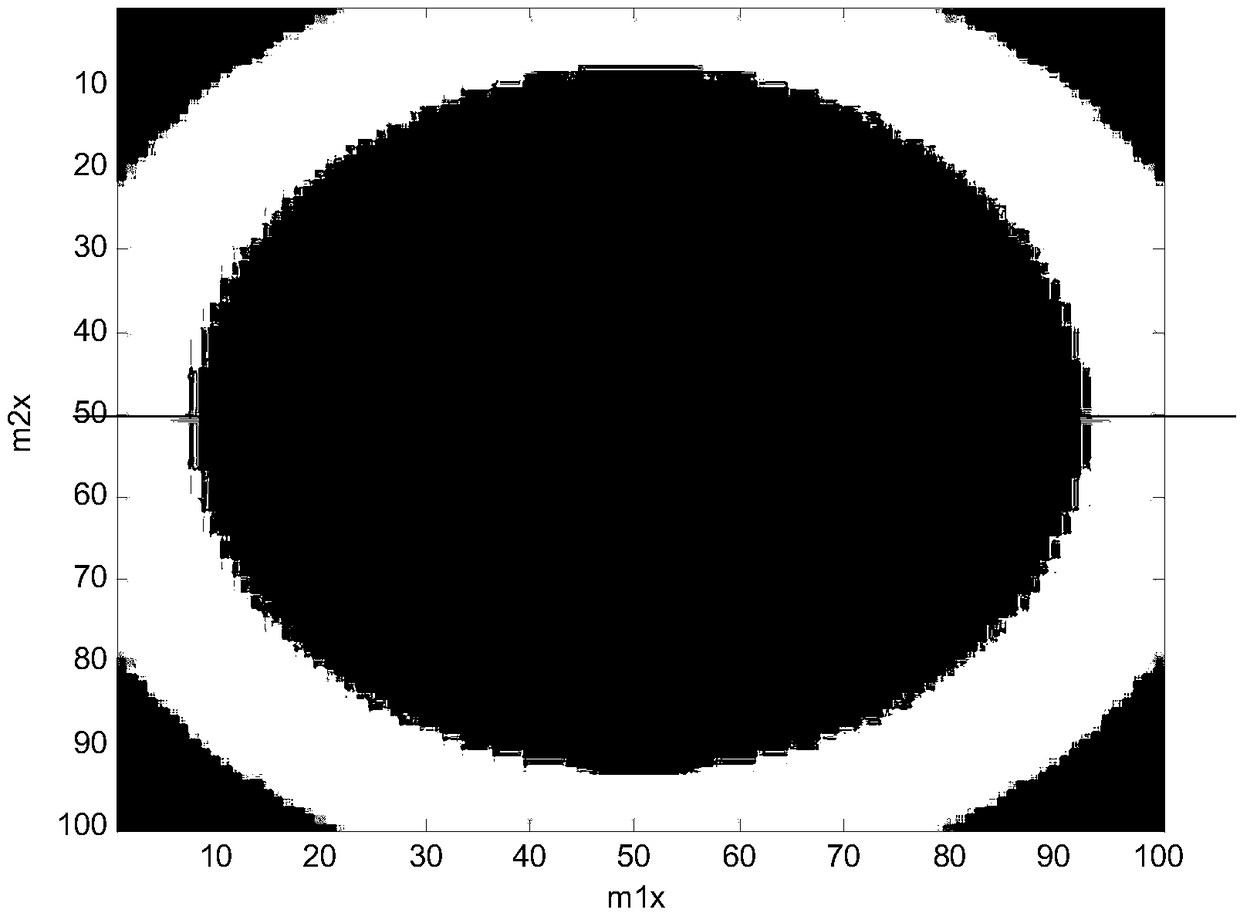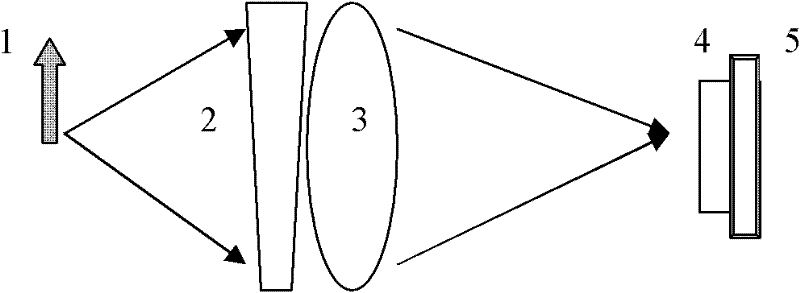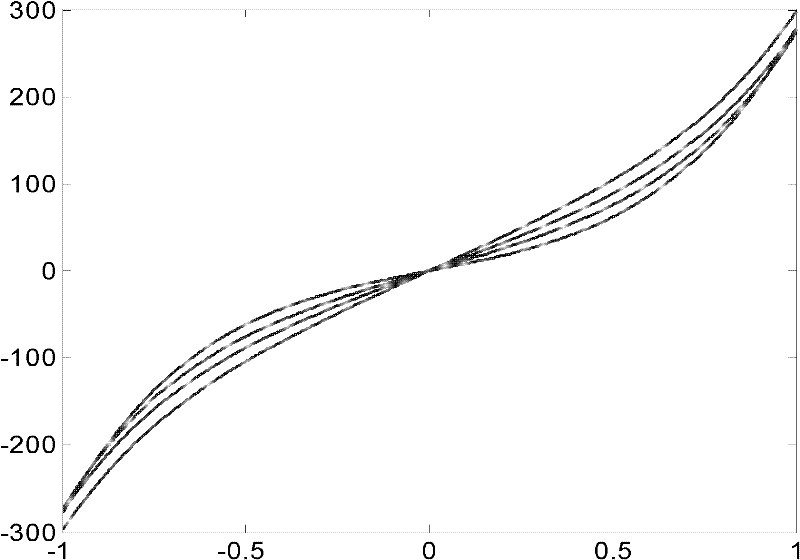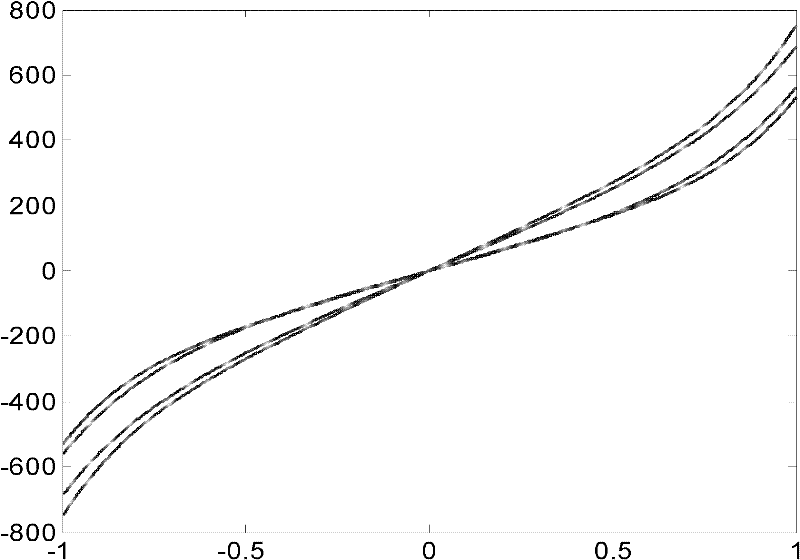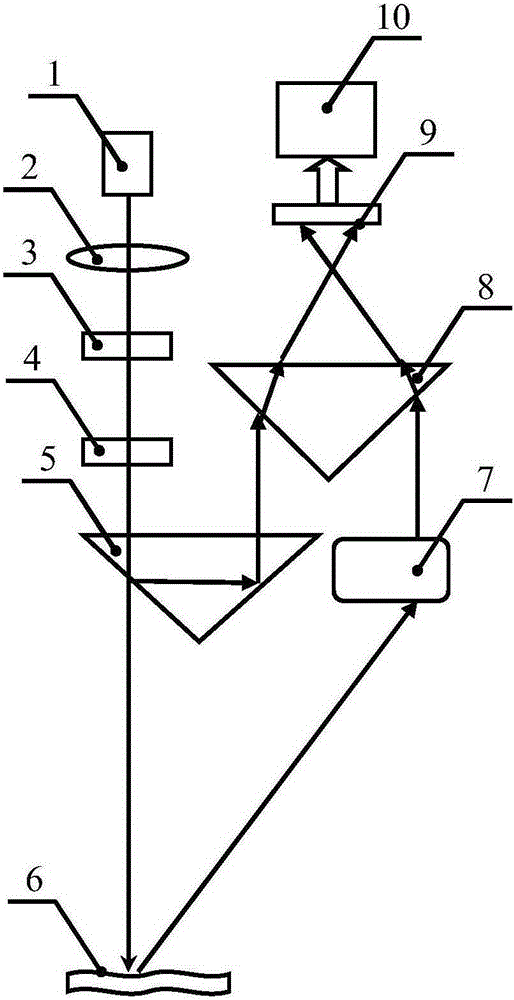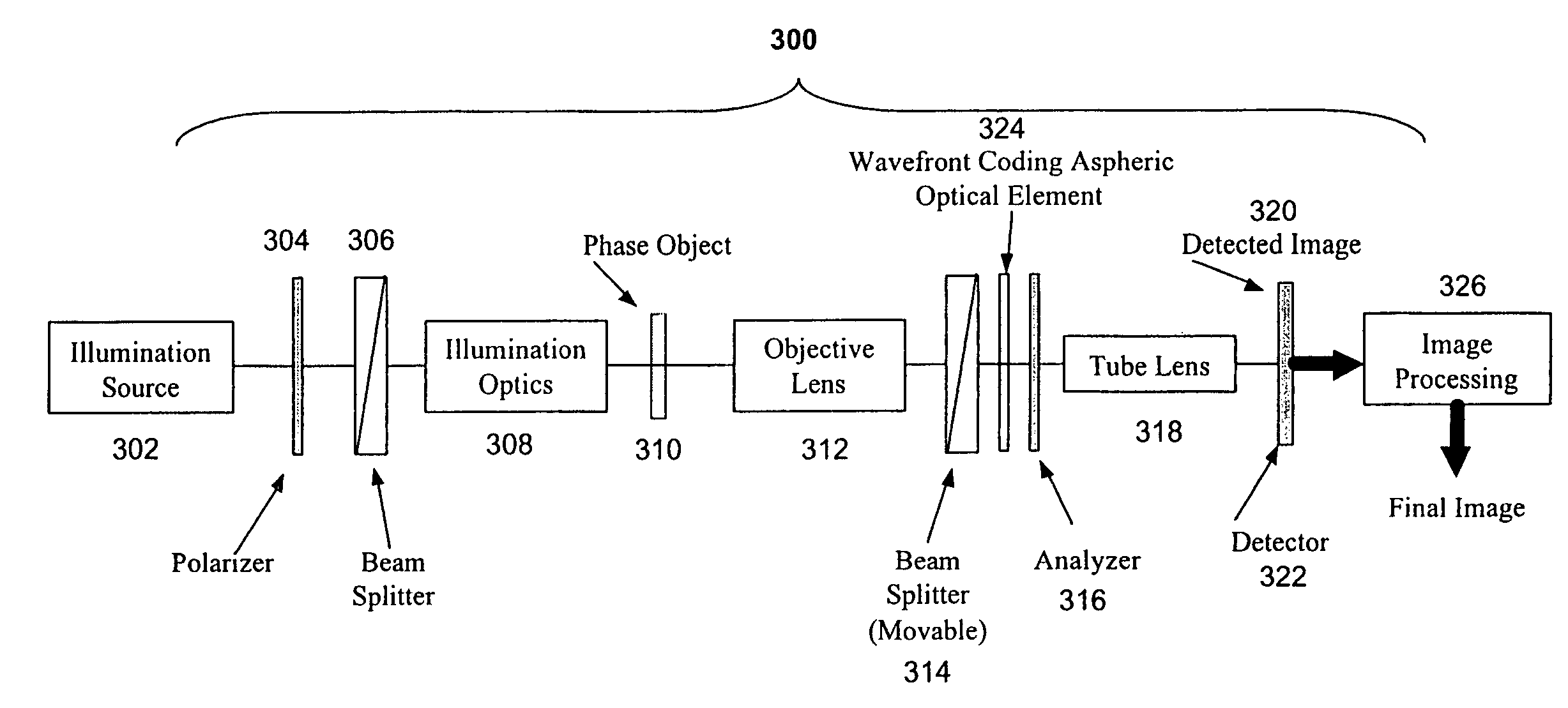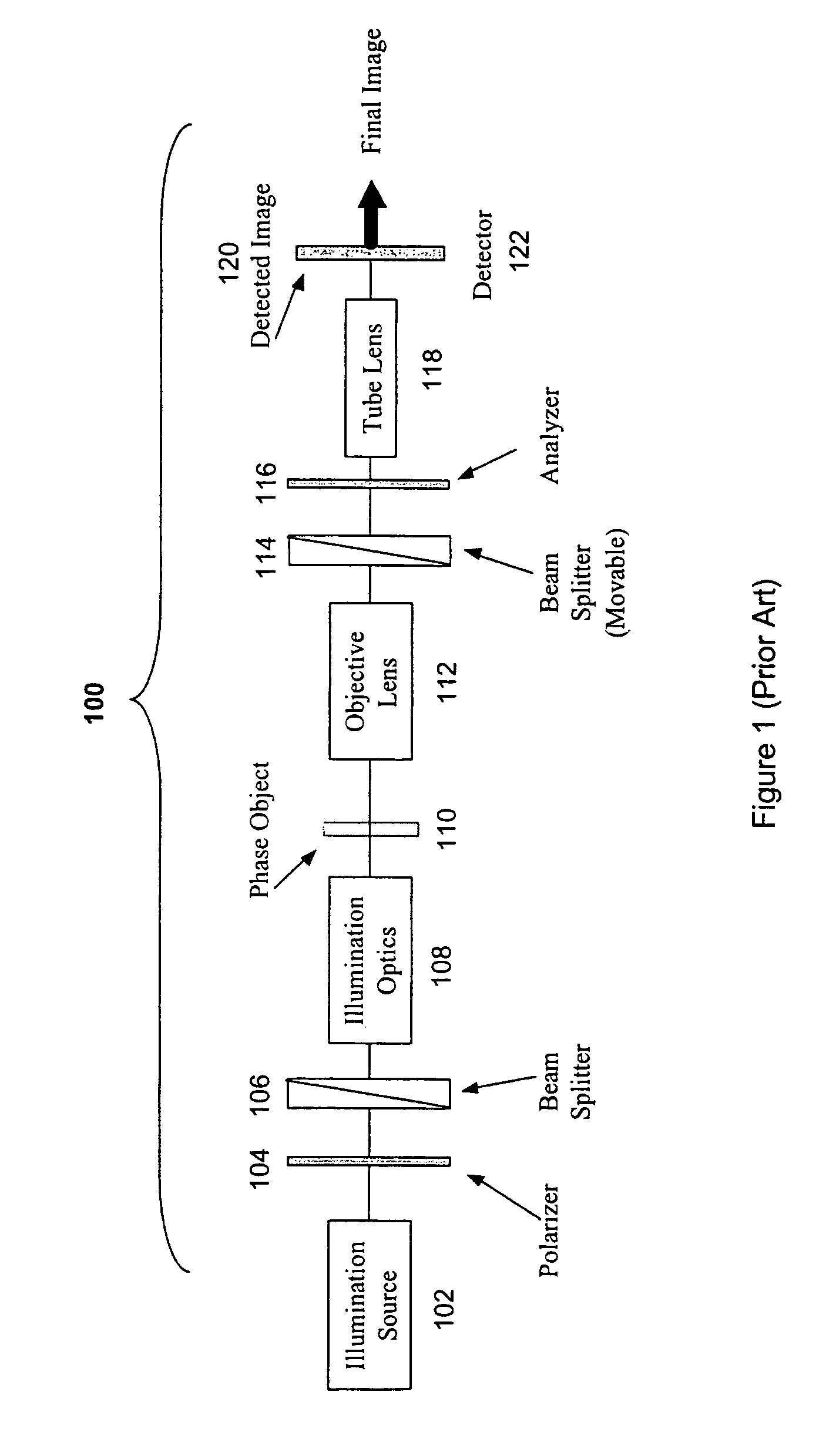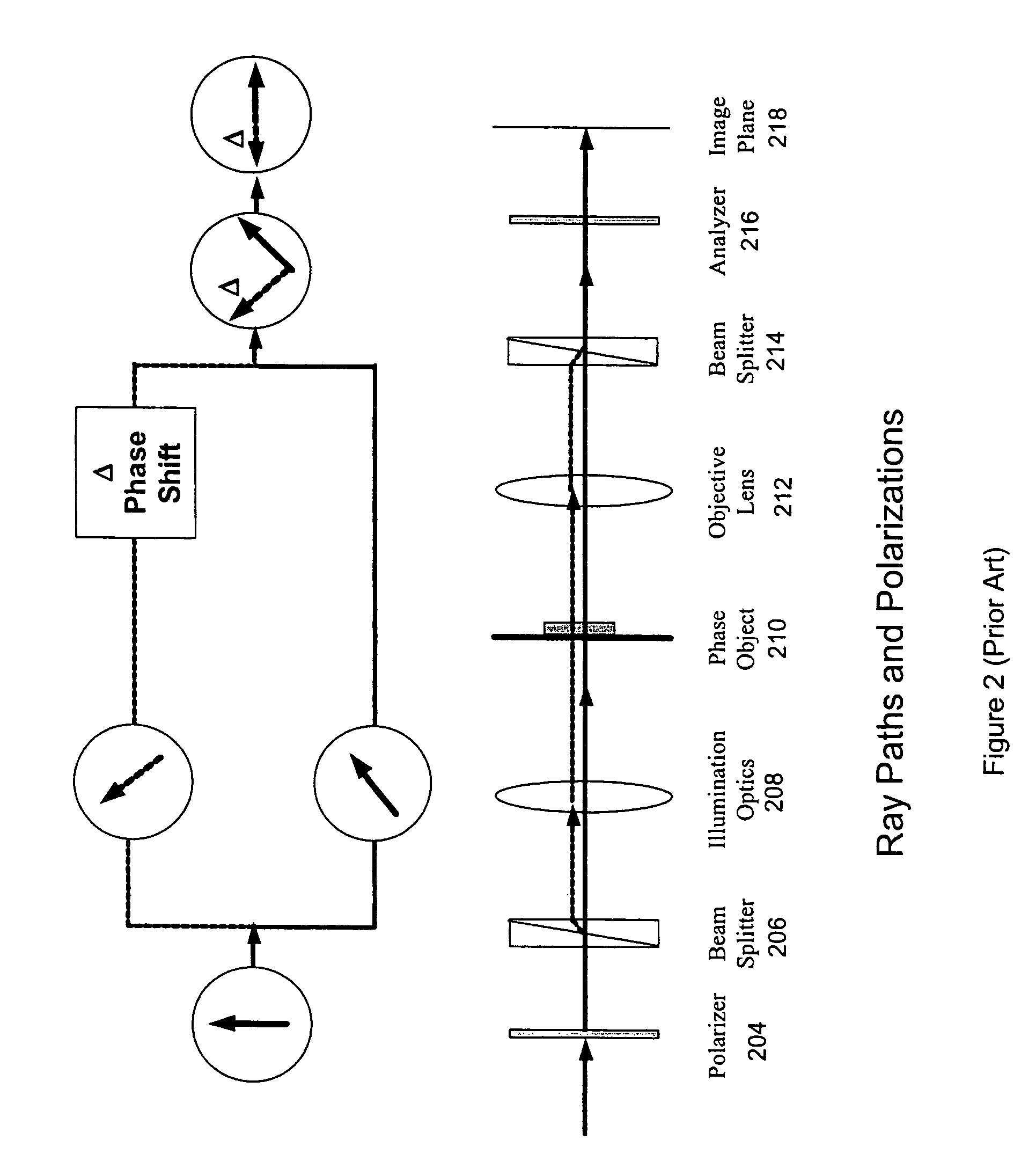Patents
Literature
99 results about "Wavefront coding" patented technology
Efficacy Topic
Property
Owner
Technical Advancement
Application Domain
Technology Topic
Technology Field Word
Patent Country/Region
Patent Type
Patent Status
Application Year
Inventor
In optics and signal processing, wavefront coding refers to the use of a phase modulating element in conjunction with deconvolution to extend the depth of field of a digital imaging system such as a video camera.
Wavefront coding optics
InactiveUS6842297B2Reduce aberrationIncrease valueBeam/ray focussing/reflecting arrangementsMaterial analysis by optical meansNegative phaseWavefront coding
Improved Wavefront Coding Optics, which apply a phase profile to the wavefront of light from an object to be imaged, retain their insensitivity to focus related aberration, while increasing the heights of the resulting MTFs and reducing the noise in the final images. Such improved Wavefront Coding Optics have the characteristic that the central portion of the applied phase profile is essentially flat (or constant), while a peripheral region of the phase profile around the central region alternately has positive and negative phase regions relative to the central region.
Owner:CDM OPTICS +1
Wavefront coding zoom lens imaging systems
InactiveUS6911638B2Quality improvementFast imagingPhotometry using reference valueBeam/ray focussing/reflecting arrangementsImaging processingOphthalmology
A wide-angle zoom lens with as few as two plastic elements codes the wavefront produced by the imaging system such that the imaging system is substantially invariant to aberrations related to misfocus. Signal processing is used to decode the wavefront to form the final image. A first type of zoom lens configuration uses as few as two lens elements. In this type, image processing may be modified to take into account the positioning of the lenses.
Owner:COLORADO UNIV OF RGT
Combined wavefront coding and amplitude contrast imaging systems
InactiveUS6873733B2Enhanced contrast imageAdd depthMaterial analysis by optical meansCharacter and pattern recognitionPhase variationSignal transfer function
The present invention provides extended depth of field or focus to conventional Amplitude Contrast imaging systems. This is accomplished by including a Wavefront Coding mask in the system to apply phase variations to the wavefront transmitted by the Phase Object being imaged. The phase variations induced by the Wavefront Coding mask code the wavefront and cause the optical transfer function to remain essentially constant within some range away from the in-focus position. This provides a coded image at the detector. Post processing decodes this coded image, resulting in an in-focus image over an increased depth of field.
Owner:UNIV OF COLORADO THE REGENTS OF +1
Use of wavefront coding to create a depth image
ActiveUS20110310226A1Well formedCharacter and pattern recognitionUsing optical meansDiffusion functionMotion capture
A 3-D depth camera system, such as in a motion capture system, tracks an object such as a human in a field of view using an illuminator, where the field of view is illuminated using multiple diffracted beams. An image sensing component obtains an image of the object using a phase mask according to a double-helix point spread function, and determines a depth of each portion of the image based on a relative rotation of dots of light of the double-helix point spread function. In another aspect, dual image sensors are used to obtain a reference image and a phase-encoded image. A relative rotation of features in the images can be correlated with a depth. Depth information can be obtained using an optical transfer function of a point spread function of the reference image.
Owner:MICROSOFT TECH LICENSING LLC
Wavefront coding interference contrast imaging systems
InactiveUS7115849B2Enhanced contrast imageAdd depthOptical measurementsPhotometry using reference valueImaging processingBeam splitter
Contrast Imaging apparatus and methods with Wavefront Coding aspheric optics and post processing increase depth of field and reduce misfocus effects in imaging Phase Objects. The general Interference Contrast imaging system is modified with a special purpose optical element and image processing of the detected image to form the final image. The Wavefront Coding optical element can be fabricated as a separate component, can be constructed as an integral component of the imaging objective, tube lens, beam splitter, polarizer or any combination of such.
Owner:UNIV OF COLORADO THE REGENTS OF
Zoom lens systems with wavefront coding
ActiveUS20070247725A1Photometry using reference valueMaterial analysis by optical meansCamera lensOptical axis
Zoom lens systems and methods for imaging incoming rays over a range of ray angles are disclosed. The incoming rays are characterized by at least phase. The zoom lens system includes an optical axis and is characterized by a plurality of modulation transfer functions (MTFs) corresponding at least to the range of ray angles. The zoom lens system includes an optical group disposed along the optical axis, including at least one variable optical element that has a variable focal length selectable between at least two distinct focal length values. The optical group also includes a wavefront coding element. The wavefront coding element alters at least the phase of the incoming rays, such that the plurality of MTFs corresponding to the range of ray angles, for each one of the two distinct focal length values, are less sensitive to misfocus-like aberrations than a corresponding system without the wavefront coding element.
Owner:OMNIVISION TECH INC
Non-linear wavefront coding systems and methods
ActiveUS7550701B2Reduce aberrationImage enhancementPhotometry using reference valueElectromagnetic radiationWavefront coding
Systems and methods reduce aberrations in a wavefront imaged by an optical system having a non-linear detector. A wavefront of electromagnetic radiation from an object imaged to the non-linear detector is encoded. Data from the non-linear detector is digitally converted to form a digital representation of the image captured by the non-linear detector. The detected image is linearized to form a linearized image. The linearized image is filtered to reverse effects of wavefront coding to form a final image.
Owner:CDM OPTICS
Infrared stereoscopic vision thermal image method and its system
InactiveCN101241173AAvoid exposureReduce complexityDirection/deviation determining electromagnetic systemsOptical elementsProcess systemsInformation processing
The present invention discloses an infrared stereoscopic thermal image method and system. The step of the method is that: wavefront coding of infrared radiation of observed target is made by infrared phase mask; blurred image after coding is gained when the infrared radiation signal is passed the infrared optical system and infrared sensor; output signal pass infrared sensor is input signal processing system as the forms of difference signal; the infrared image is reverted and calculated by information processing system and information of distance and radiant intensity of observed target is obtained and output. The system is setting infrared phase mask on the front end of infrared optic system, and infrared sensor which input image signal to information process system in difference signal type is set on the focus of infrared optic system. The present invention reduces the complexity degree, realizes micromation, has good real time exploration and safety capability and is suitable for apply of different situations.
Owner:NANJING UNIV OF SCI & TECH
Method and apparatus for signature reduction using wavefront coding
InactiveUS7576791B2Reduce reflectivityQuantity minimizationTelevision system detailsRadiation pyrometrySpecular reflectionWavefront coding
The invention applies wavefront coding to the front of an electro-optic / infrared device to minimize the amount of light which is retroreflected by systems, such as Fowarding Looking Infrared systems, back to its source. The invention (unlike conventional reduction methods) does not rely on reducing the laser power leaving the interrogated sensor, but primarily on controlling its direction. A sensor according to the present invention, which has been wavefront coded for reduction of reflected light, will also effect the direction of the scattered light, thereby significantly reducing that which returns to the zero bistatic angle position. In contrast, a limitation of conventional methods is that once specular reflections are addressed, the remaining retroreflected signal typically results from scattered light at the focal plane which is largely collected and recollimated by the system optics.
Owner:UNITED STATES OF AMERICA THE AS REPRESENTED BY THE SEC OF THE ARMY
Multi-matrix depth of field image sensor
A technique for imaging involves wavefront coded optics (112) and multiple filters. In a non-limiting embodiment, a system developed according to the technique includes wavefront coded optics and a multi-filter image processor (124). In alternative embodiments, imaging optics may come before wavefront coded optics or vice versa. In another non-limiting embodiment, a method according to the technique includes selecting a focus distance, wavefront encoding light reflected from or emitted by an object, converting the light to a spatially blurred image, and processing the spatially blurred image using a filter associated with the selected focus distance.
Owner:OMNIVISION TECH INC
Phase plate for wavefront coding imaging and bandwidth-adjustable wavefront coding system
ActiveCN102759769AInterfereReduce the impactPolarising elementsRelative displacementFrequency spectrum
The invention relates to a phase plate for wavefront coding imaging and a bandwidth-adjustable wavefront coding system. A phase distribution function of the phase plate is formed by the overlapping two 3-order power functions with relative displacement, wherein a one-dimensional function expression is: f=alpha.(x+c)<3>+alpha.(x+d)<3>. The invention provides the phase plate for the wavefront coding imaging and the bandwidth-adjustable wavefront coding system which can effectively expand the system depth of field, can change the effects of a system imaging bandwidth, can effectively reduce the influences of frequency spectrum mixing and overlapping on the imaging quality, as well as can further develop the potential application capability of a wavefront coding imaging technology.
Owner:XI'AN INST OF OPTICS & FINE MECHANICS - CHINESE ACAD OF SCI
Low height imaging system and associated methods
Owner:OMNIVISION TECH INC
Iris image capture devices and associated systems
ActiveUS7652685B2Reduce eliminateAcquiring/recognising eyesPicture signal generatorsIris imageWavefront coding
An iris image capture device includes an optical arrangement that utilizes Wavefront Coding phase modifications to produce an optical image of a user iris and a detector for detecting the optical iris image and for converting the optical iris image into an electronic data signal. The iris image capture device also includes an image processor configured for processing the electronic data signal from the detector to reverse the Wavefront Coding phase modifications and to produce an electronic iris image of the user iris.
Owner:OMNIVISION TECH INC
Ir receiver and ir transmitter/receiver module using same
An exemplary IR receiver configured for capturing IR signals is provided. The IR receiver includes an aspherical lens, an IR bandpass filter, a wavefront encoding wave-plate, and a sensor. The aspherical lens defines an optical axis and an image side. The IR bandpass filter, the wavefront encoding wave-plate, and the sensor are sequentially arranged (i.e., in that order) at the image side of the aspherical lens, along the optical axis. The sensor is configured for detecting the IR signals sequentially passing through the aspherical lens, the IR bandpass filter and the wavefront encoding wave-plate and is thereby configured for capturing the IR signals. An exemplary IR transmitter / receiver module includes an IR transmitter configured for emitting IR signals and the IR receiver, as above-mentioned.
Owner:HON HAI PRECISION IND CO LTD
Optical digital mixed imaging system and method
InactiveCN101477253AOptimal phase distribution functionLarge defocus invarianceImage enhancementOptical elementsPhotovoltaic detectorsFiltration
The invention relates to a system and a method for optical and digital mixed imaging. The system comprises an optical imaging object lens, a rational form wavefront coder, a photoelectrical detector and a digital image decoding and processing unit. The method adopts the rational form wavefront coder to code a wavefront phase of an incident light wave. Phi RPM(x) as an introduced phase distribution function is equal to sigma sign(x)an|x|(1+ sigma bm|x|), wherein x is a normalized radial coordinate; N and M are the highest power of a fraction and denominator polynomial respectively; {an} and {bm} are undetermined coefficients; and sign is a signum function. An intermediate blurred image which is not sensitive to defocusing is acquired on the photoelectrical detector after coding, and the digital image decoding and processing unit carries out deconvolution wave filtration on the intermediate blurred image to acquire the final clear image.
Owner:TSINGHUA UNIV +1
Asynmmetric ciphering and deciphering method and apparatus based on virtual wavefront coding
ActiveCN1889424AHigh transparencyAvoid distributingKey distribution for secure communicationImage data processing detailsGate arrayCiphertext
This invention discloses an asymmetrical ciphering and deciphering method based on virtual wave front coding and a device, which utilizes an optical model of wave front sensing to set up a public cryptographic key and a private key, the ciphering process is to carry out virtual optical wave front coding to the original image to be encrypted then wave front sensing and centroidal computation to get the cryptograph, the deciphering process is to utilize rule lattice and the cryptograph for wave front re-establishment to recover the original image information. A device for realizing said method includes a digital signal processor, a site programmable gate array, a video code-decode device, a PCI bys controller, an Ethernet interface controller, a synchronous burst static storage, a synchronous dynamic storage, a supply monitor circuit and a reset control circuit.
Owner:SHENZHEN ESUN DISPLAY
Surface defect detection device and detection method for high-precision optical element
InactiveCN108152299ALow costDepth of field extensionOptically investigating flaws/contaminationGoniometerImage resolution
The invention relates to a surface defect detection device and detection method for a high-precision optical element, and belongs to the technical field of optical detection. The detection device comprises a multiaxial mechanical adjustment module, a wavefront encoding microimaging module, a coaxial light source illumination module and a computer, wherein the multiaxial mechanical adjustment module comprises a triaxial motorized translation stage, a motorized turntablerotation table and a motorized goniometer tablestage; the wavefront encoding microimaging module comprises a microobjective, awavefront encoding plate, a switch lens cone and a CCD (charge-coupled device) camera. According to the surface defect detection device and method for athe high-precision optical element provided by the invention, an imaging effect of an extended depth of field is realized by using the wavefront encoding microimaging module, the depth of field of a general microimaging system is effectively expanded, the defocus caused by a mechanical adjustment error and the surfaces shapes of spherical and non-spherical optical elements is avoided, the requirements on mechanical precision and optical resolution can be lowered, and thus the cost of the surface defect detection device is reduced, and the detection efficiency of the detection device and the detection method is improved.
Owner:CHANGGUANG SATELLITE TECH CO LTD
Method for extending view field of infrared optical system on basis of wavefront coding
ActiveCN106199956AGuaranteed luminous fluxGuaranteed imaging resolutionOptical elementsImaging qualityImage resolution
The invention discloses a method for extending a view field of an infrared optical system on the basis of wavefront coding. The method comprises the following steps that an odd symmetric phase mask plate is additionally arranged at a diaphragm of the infrared optical system, wavefront of the infrared optical system is modulated, a coded image is formed on a detector, decoding processing is conducted on the coded image through a digital filter means, and a final sharp image is obtained. By introducing a wavefront coding technique, the larger focal depth purpose can be achieved on the condition that the luminous flux and the imaging resolution of the infrared optical system are guaranteed, and meanwhile astigmatism, spherical aberration, chromatic aberration and aberration brought by defocus caused by installation errors and temperature changes can be inhibited. According to the method, operation is easy, and the view field of the system can be extended and the image quality can be improved on the condition that the complexity of the infrared optical system is not increased.
Owner:HARBIN INST OF TECH
Long-focal length large-aperture large-F-number telescopic imaging system
The invention relates to a long-focal length large-aperture large-F-number telescopic imaging system. The long-focal length large-aperture large-F-number telescopic imaging system comprises a primary reflector, a secondary reflector, a phase mask for encoding, a correction lens group A, a correction lens group B, an area array CMOS image sensor and a decoding processing unit; the secondary reflector is arranged on a light path where reflection light is located, wherein the reflection light is formed after light is reflected by the primary reflector; the secondary reflector, the phase mask, the correction lens group A, the correction lens group B and the area array CMOS image sensor are sequentially arranged on the same light path; and the decoding processing unit is connected with the area array CMOS image sensor. According to the long-focal length large-aperture large-F-number telescopic imaging system provided by the invention, a wave-front coding technology is introduced to the design of the long-focal length large-aperture large-F-number telescopic imaging system; controllable modulation transfer function (MTF) reduction can be realized artificially through utilizing an encoding technology; and therefore, effects of subsequent MTF compensation (MTFC) technologies can be more stable and reliable.
Owner:XI'AN INST OF OPTICS & FINE MECHANICS - CHINESE ACAD OF SCI
Detachable and reconfigurable phase mask and wave-front coding and imaging system
ActiveCN103235411AReduce the effect of spectral aliasingReduce distractionsOptical elementsRelative displacementComputational physics
The invention relates to a detachable and reconfigurable phase mask and a wave-front coding and imaging system on the basis of the phase mask. Two cosine functions with relative displacement are superimposed to form a phase mask function corresponding to the detachable and reconfigurable phase mask, a one-dimensional function expression of the detachable and reconfigurable phase mask is shown, an alpha, an m<1> and an m<2> in the one-dimensional function expression are parameters of a phase distribution function, an x is a normalized coordinate, a value of the x is larger than or equal to -1 and is smaller than or equal to 1, and a value of the offset m<1> and a value of the offset m<2> are respectively larger than or equal to -1 and are smaller than or equal to 1. The detachable and reconfigurable phase mask and the wave-front coding and imaging system on the basis of the phase mask have the advantages that the depth of the focus of the system can be effectively expanded by the detachable and reconfigurable phase mask, and both the out-of-focus sensitivity and the bandwidth of the wave-front coding and imaging system can be adjusted.
Owner:XI'AN INST OF OPTICS & FINE MECHANICS - CHINESE ACAD OF SCI
Document camera
InactiveUS20100271534A1Add depthBreak the limitationsTelevision system detailsColor television detailsImage conversionTime signal
A document camera includes a liquid lens and an extended depth of field (referred to as EDoF) module. The liquid lens adjusts its diopter value in accordance with a voltage value provided by a control circuit, and is used to form an image with a longer image distance from an object with a shorter image distance. The object and the image both are located at the same side of the liquid lens. The EDoF module is located behind the liquid lens to process an image by using a wavefront coding technique, and comprises a wavefront encoder used for performing wavefront coding onto the image; a signal processor for converting the image which has been wavefront-coded into digital signals; and a digital image processor for converting the digital signals into image signals.
Owner:AVER INFORMATION INC
Wave front coding imaging system focus plane position test method and device
InactiveCN104330245ASimple test operationEasy to buildTesting optical propertiesCamera lensGray level
The invention discloses a wave front coding imaging system focus plane position test method. The wave front coding imaging system focus plane position test method includes following steps: firstly, shining monochromatic light which passes through start point holes on a camera lens which is to be tested and comprises a wave front coding phase plate; obtaining a star point image formed by the camera lens; then, confirming a pixel point of the maximum gray level in the star point image, intercepting all pixel points on a row where the pixel point of the maximum gray level is located, obtaining a one dimension point spread function, performing Fourier transformation on the point spread function, and obtaining a one dimension optical transfer function; finally, adjusting measurement positions of a camera which obtains the star point image, repeating the above steps so as to obtain optical transfer functions corresponding to different defocus positions, and calculating phase values of all the optical transfer functions at set spatial frequency; using all the phase values to perform data fitting so as to obtain a fitting curve, and using the highest point in the fitting curve as the position of a focus plane.
Owner:DALIAN MARITIME UNIVERSITY
Surface shape detection device and detection method
The invention discloses a surface shape detection device and a detection method. The surface shape detection device comprises a laser light source assembly, a wavefront encoder, a light splitter, a lens, an array detector and a control module. The surface shape detection method comprises the following steps: light emitted by the laser light source assembly irradiates the wavefront encoder; the emergent light obtained after modulation of the wavefront encoder passes through the light splitter and the lens and is imaged to one surface of a region to be detected; the light reflected by the surface passes through the lens and the light splitter and enters the array detector; the control module controls the wavefront encoder to generate sequentially-moving light spots on the surface of the region to be detected; the array detector records and keeps the image of the light spot of each sampling point, and converts the received light into electrical signals; and the control module carries out corresponding processing on the electrical signals and obtains inclination angle of the surface of an object to be detected. The method and system can realize switching between a high-precision small-range mode and a low-precision large-range mode, can measure two-dimensional bodies and are suitable for online detecting optical elements arranged on a synchrotron radiation beam line.
Owner:INST OF HIGH ENERGY PHYSICS CHINESE ACADEMY OF SCI
Wavefront coding imaging system and super-resolution processing method
ActiveCN104834089AIncrease the number of effective pixelsEliminate destructionOptical elementsCamera lensSingle image
Provided are a wavefront coding imaging system and a super-resolution processing method based on single image amplification. The wavefront coding imaging system comprises a wavefront coding imaging lens, 1 / 3 inch image detector, and a decoding processing unit. The wavefront coding imaging lens comprises a first lens, a phase mask plate, a second lens, and a third lens. The first lens, the phase mask plate, the second lens, and the third lens, the 1 / 3 inch image detector, and the decoding processing unit are arranged on a same optical path in sequence. The curvature radius, X-direction light-passing semi-aperture, Y-direction light-passing semi-aperture of the front surfaces and rear surfaces of the first lens, the phase mask plate, the second lens, and the third lens are different from parameters in the prior art. The invention provides the wavefront coding imaging system which can realize super-large focal depth clear imaging on the premise of not changing hardware conditions of an image sensor, and can obtain super-resolution reconstructed images corresponding to a detector with smaller physical pixel size, and provides a super-resolution processing method based on single image amplification.
Owner:XI'AN INST OF OPTICS & FINE MECHANICS - CHINESE ACAD OF SCI
Broadband photon sieve based on wavefront coding technology
The invention discloses a broadband photon sieve based on wavefront coding technology. The photon sieve is characterized in that a phase coding plate is included, one surface of the phase coding plate is a phase coding surface, the other surface is a planar surface, a photon sieve clings to the planar surface, the phase coding surface is one selected from a triple coding surface, a logarithm coding surface and a sine coding surface, and the photon sieve carries out diffractive imaging via light of the phase coding surface. The wavefront coding technology is introduced into the photon sieve field innovatively, the phase coding plate is arranged in front of the photon sieve, wavefront coding is carried out on light entering the photon sieve, the sensitivity of the photon sieve to the wavelength is reduced, and the broadband is expanded.
Owner:SUZHOU UNIV
Reflecting mirror wavefront coding imaging system
The invention discloses a reflecting mirror wavefront coding imaging system, which at least comprises a primary mirror and a secondary mirror, wherein the surface shape of any lens in the primary or secondary mirror integrates a specific phase-coding surface shape. The reflecting mirror wavefront coding imaging system is used for realizing the wavefront coding imaging of an object without an additional phase plate for coding light waves, so that a conventional optical wavefront coding system is greatly simplified, the size and the weight of the whole system are reduced, and difficulty in the alignment of the system is reduced.
Owner:SUZHOU UNIV
A sub-pixel super-resolution imaging system and method based on translationally adjustable wavefront coding
ActiveCN109360139AAchieve resolutionReduce the amplitudeImage enhancementImage acquisitionImaging qualityDiffusion function
The invention relates to a sub-pixel super-resolution imaging system and method based on translational adjustable wavefront coding. The system comprises an imaging lens, a composite phase mask, an image detector and an image processing unit arranged in sequence along an optical axis transmission direction. A composite phase mask is formed by superposing two identical phase components along the optical axis, and the two identical phase components can be translated independently in the x-direction and y-direction. Where x and y belong to [-1, 1] represent normalized aperture coordinate; Two identical phase components are two classical cubic phase components or two generalized cubic phase components. The invention not only reduces the aliasing of the original image data for sub-pixel super-resolution reconstruction, At that same time, the point spread function (PSF) require for the restoration of the original image can be effectively matched with the equivalent sample interval of the high-resolution mesh, and the high-quality super-resolution restoration image quality can be obtain while the super-depth-of-field effect of the wavefront coding is taken into account.
Owner:XI'AN INST OF OPTICS & FINE MECHANICS - CHINESE ACAD OF SCI +1
Phase plate for wave-front coding imaging technology
InactiveCN102243329AReduce sensitivityWill not cause lossPolarising elementsDigital filterSurface type
The invention relates to a phase plate for a wave-front coding imaging system. A surface type phase distribution function of the phase plate is formed by overlapping a three-order power function with a sine function or overlapping an exponential function with the sine function or overlapping a logarithmic function with the sine function. Corresponding one-dimensional phase distribution functions of the phase plate are shown as follows: f1(x)=alpha*x<3>+beta*sin(omega*x), f2(x)=rho*x*exp(alpha*x<2>)+beta*sin(omega*x), and f3(x)=sgn(x)*{rho*x<2>*[1n(an absolute value of x)+alpha]}+beta*sin(omega*x), wherein in the formulae, alpha, beta, omega and rho are parameters of the phase distribution functions of the phase plate; sgn is a symbolic function, when x is more than 0, the value of the symbolic function is positive 1, and when x is less than 0, the value of the symbolic function is negative 1; and x is a normalized coordinate which is at a value interval between negative 1 and positive 1. The phase plate for the wave-front coding imaging technology has the advantage that: the non-sensibility of a wave-front coding imaging system on defocusing can be further improved, so for each phase plate, intermediate fuzzy images at all defocusing positions can be effectively restored by using only one digital filter.
Owner:XI'AN INST OF OPTICS & FINE MECHANICS - CHINESE ACAD OF SCI
Vibration detection method based on laser wavefront coding technique
ActiveCN105258783AImprove anti-interference abilityReflect the principle of speckleSubsonic/sonic/ultrasonic wave measurementUsing wave/particle radiation meansVibration detectionOptical polarization
The invention relates to a vibration detection method based on the laser wavefront coding technique. In the prior art, the high-performance and non-destructive telemetry of the vibration information cannot be realized. According to the technical scheme of the invention, the method is designed based on the phase-interference behavior and the laser wavefront coding principle of a laser astigmatism field, wherein the dynamic wavefront polarization and the phase encoding are conducted. After the coding process, the light beam of a light field is separated into a feedback reference beam and a forward test beam. The test beam is projected onto a to-be-detected vibration object. An information beam is formed in the part of the light field that is provided with speckle spots by means of an out-of-focus imaging component. Through the overlapping and intersecting process of the information beam and the reference beam, an interference field is formed. A photoelectric sensor is arranged in an interference region, so that the photoelectric conversion of the interference information is realized. A vibration analyzing unit is used for analyzing the vibration information of a detection region through processing the above information. The method has the advantages of high sensitivity, high reliability, non-contact detection, non-destructive telemetry, strong anti-interference capability, flexible frequency characteristics, large amount of information, easy system construction, wide application range, easy function expansion, convenient integration, flexible construction and the like.
Owner:上海微鸢电子科技有限公司
Wavefront coding interference contrast imaging systems
InactiveUS7732750B2Enhance the imageAdd depthOptical measurementsPhotometry using reference valuePhase shiftedOphthalmology
An interference contrast imaging system images phase objects. The system includes an illumination source, illumination optics, polarizing optics for splitting the illumination into orthogonal polarizations and for recombining the polarizations, objective optics that form an image at a detector, a wavefront coding element and a post processor for processing the image by removing a phase shift imparted by the wavefront coding element. The wavefront coding element has an aperture, is between the phase object and the detector, and provides an altered optical transfer function of the imaging system by imparting the phase shift to the illumination transmitted through the wavefront coding element. The altered optical transfer function is insensitive to an object distance between the phase object and the objective optics over a greater range of object distances than would be provided by an optical transfer function of a corresponding interference contrast imaging system without the wavefront coding element.
Owner:UNIV OF COLORADO THE REGENTS OF
Features
- R&D
- Intellectual Property
- Life Sciences
- Materials
- Tech Scout
Why Patsnap Eureka
- Unparalleled Data Quality
- Higher Quality Content
- 60% Fewer Hallucinations
Social media
Patsnap Eureka Blog
Learn More Browse by: Latest US Patents, China's latest patents, Technical Efficacy Thesaurus, Application Domain, Technology Topic, Popular Technical Reports.
© 2025 PatSnap. All rights reserved.Legal|Privacy policy|Modern Slavery Act Transparency Statement|Sitemap|About US| Contact US: help@patsnap.com
